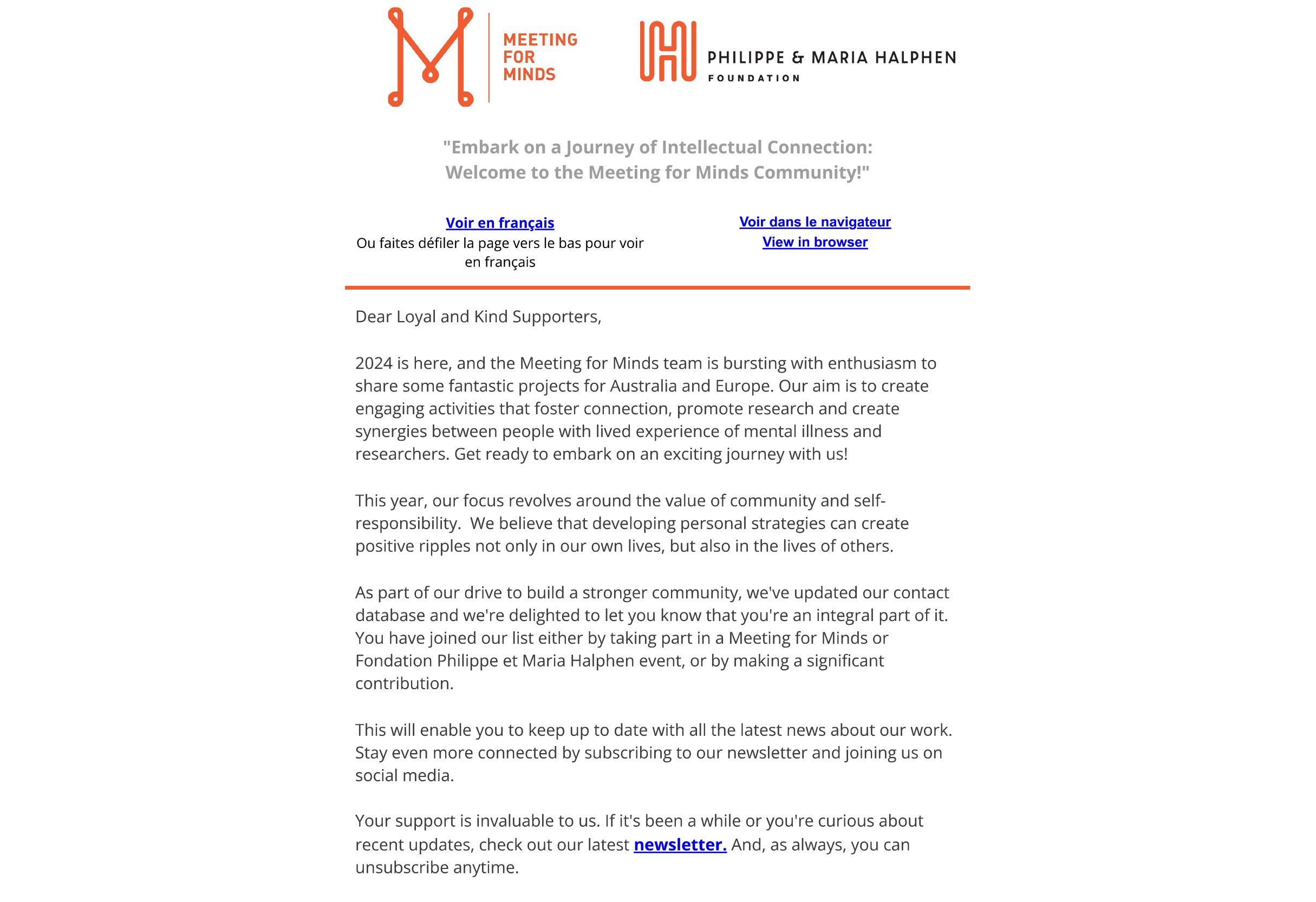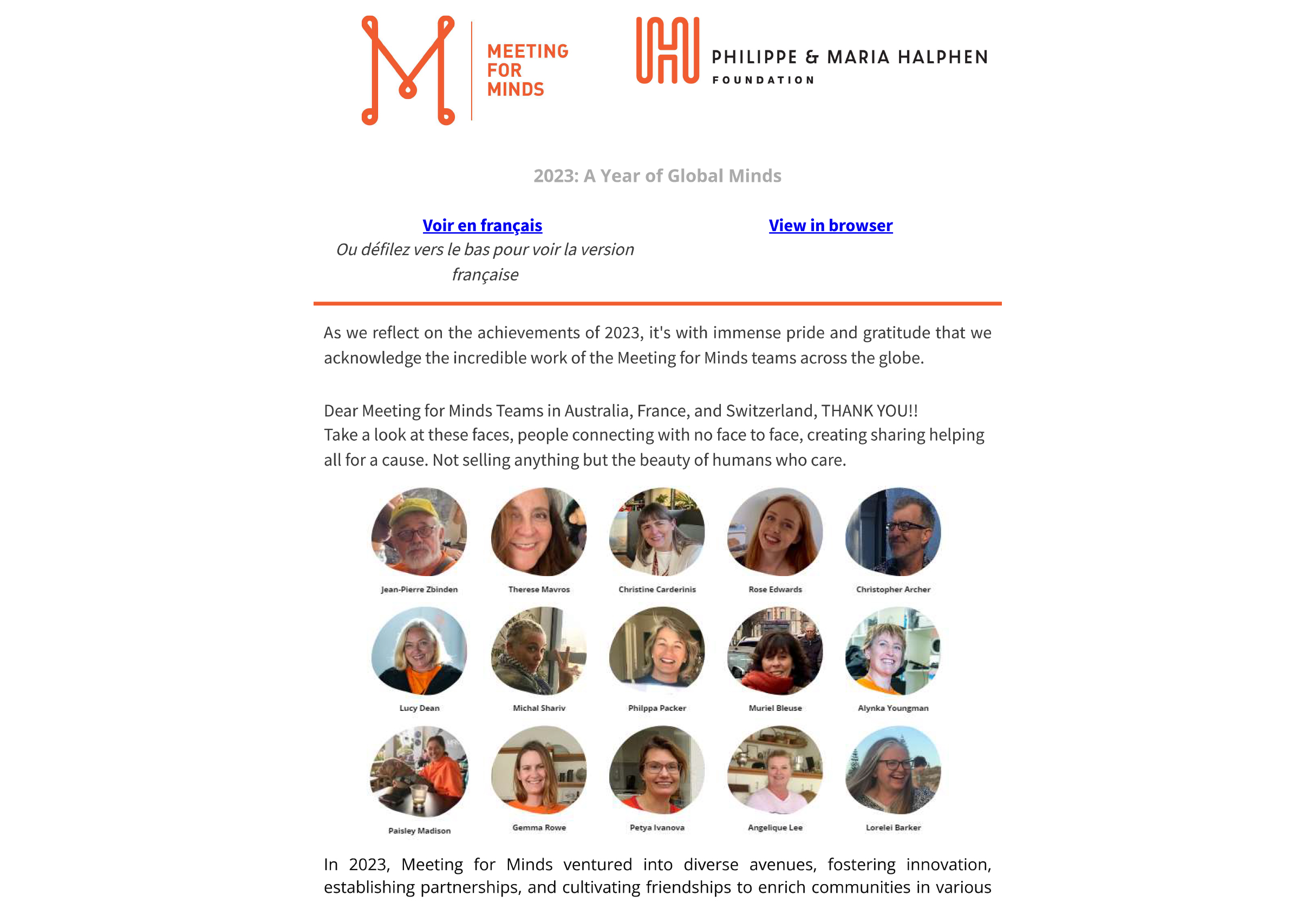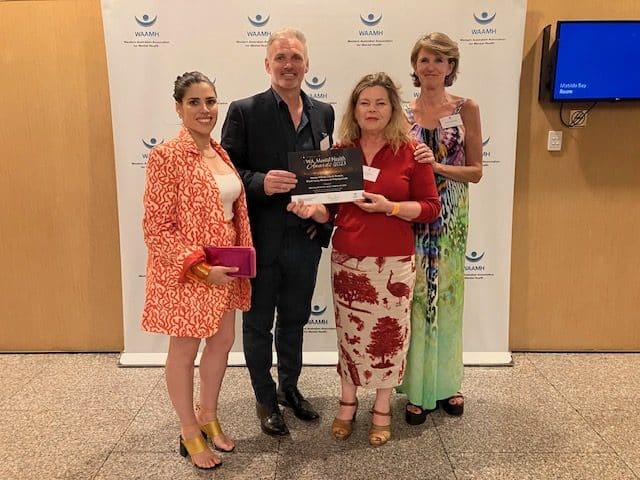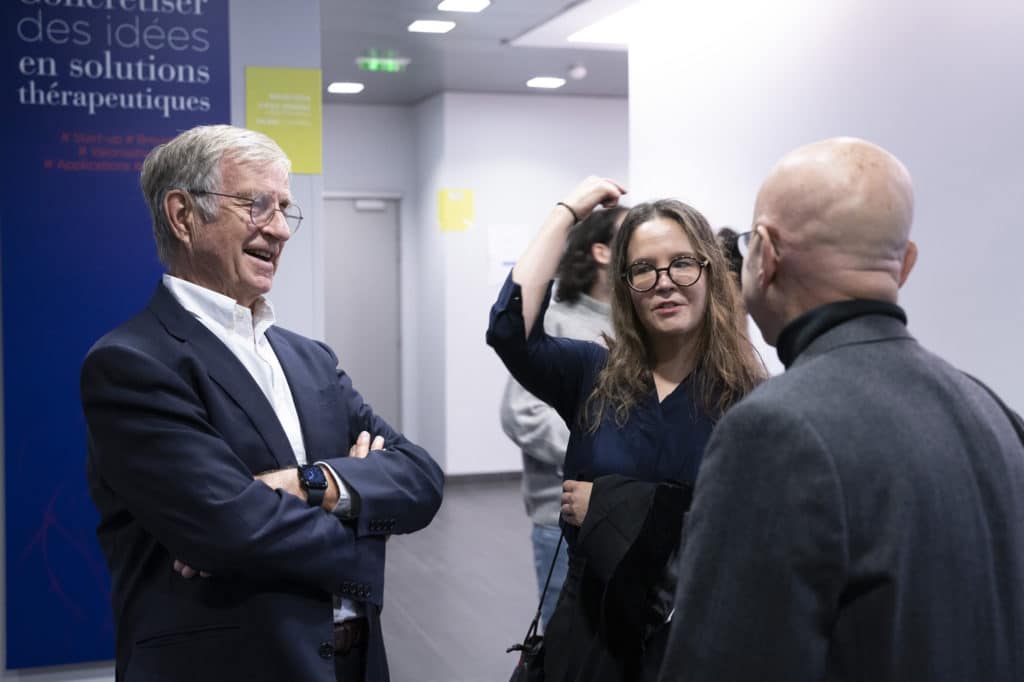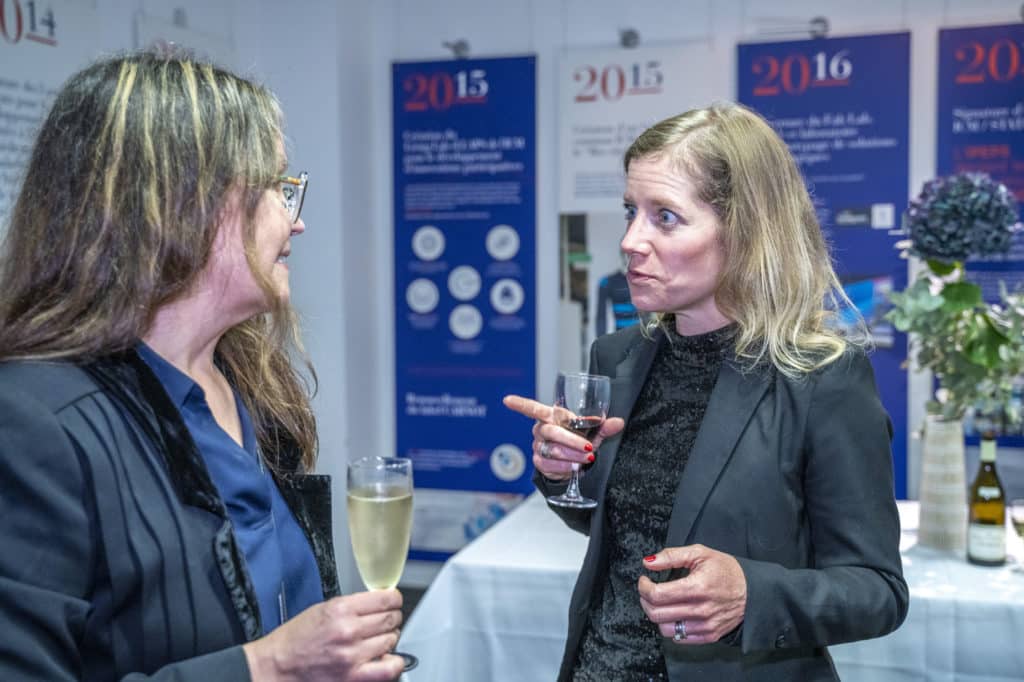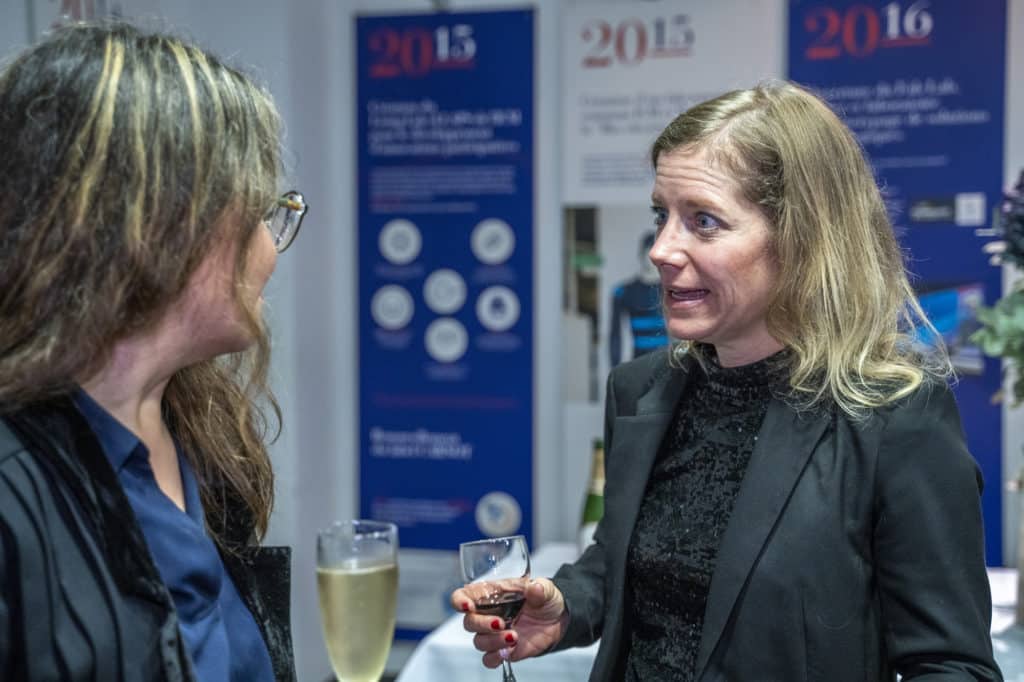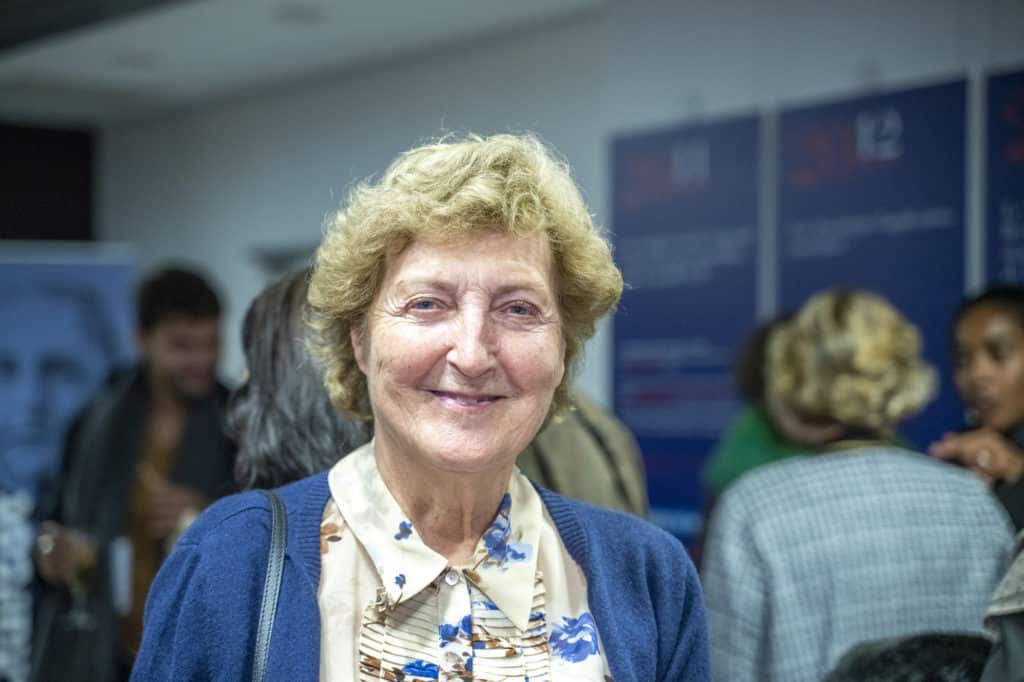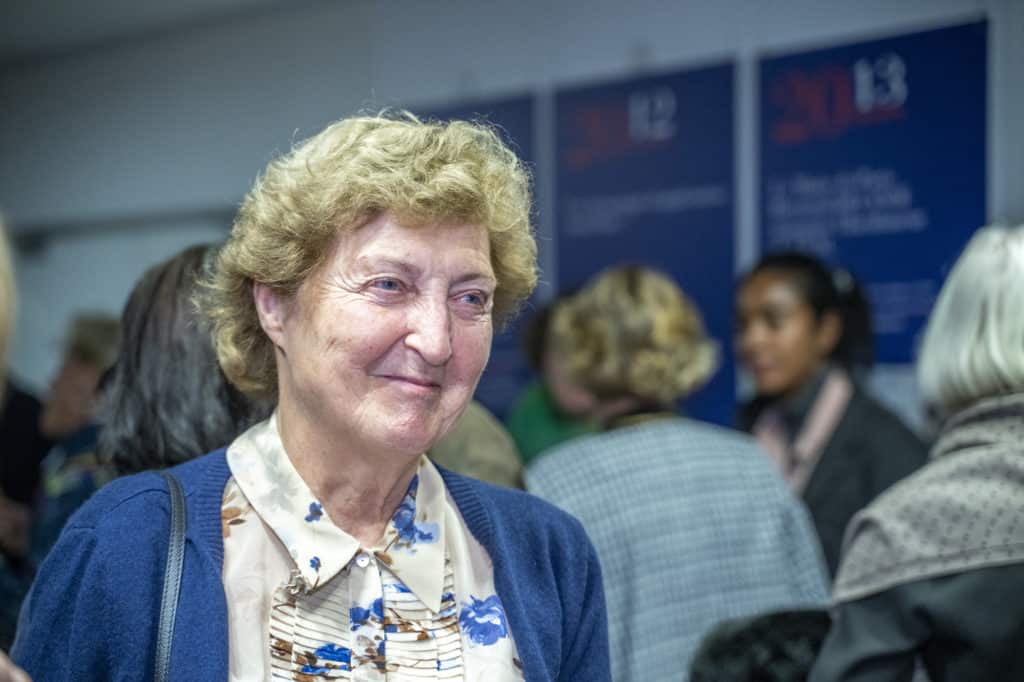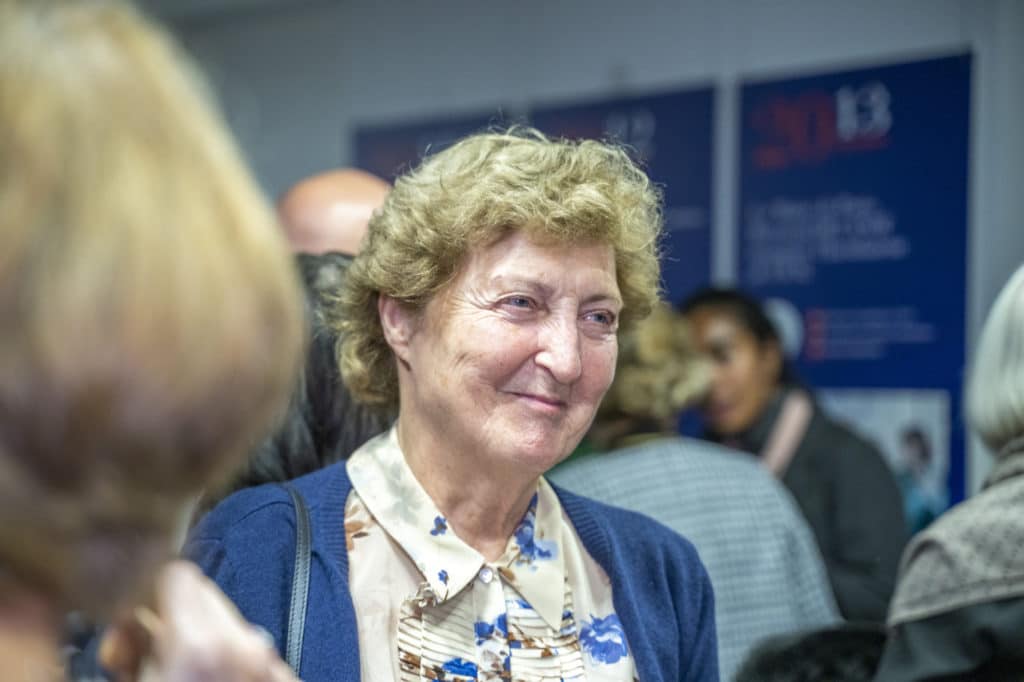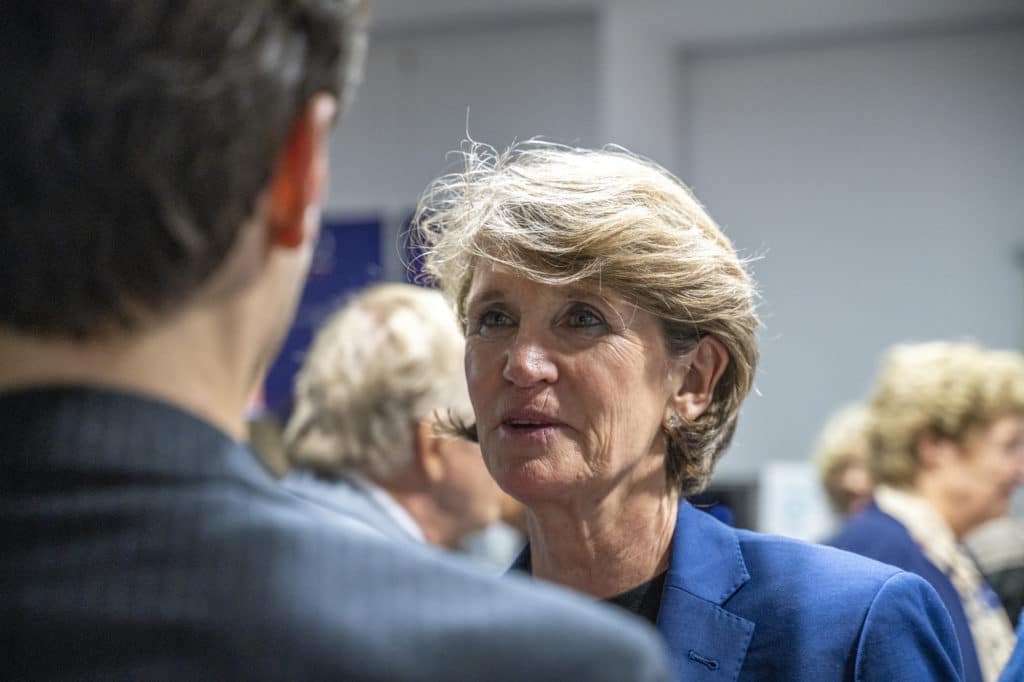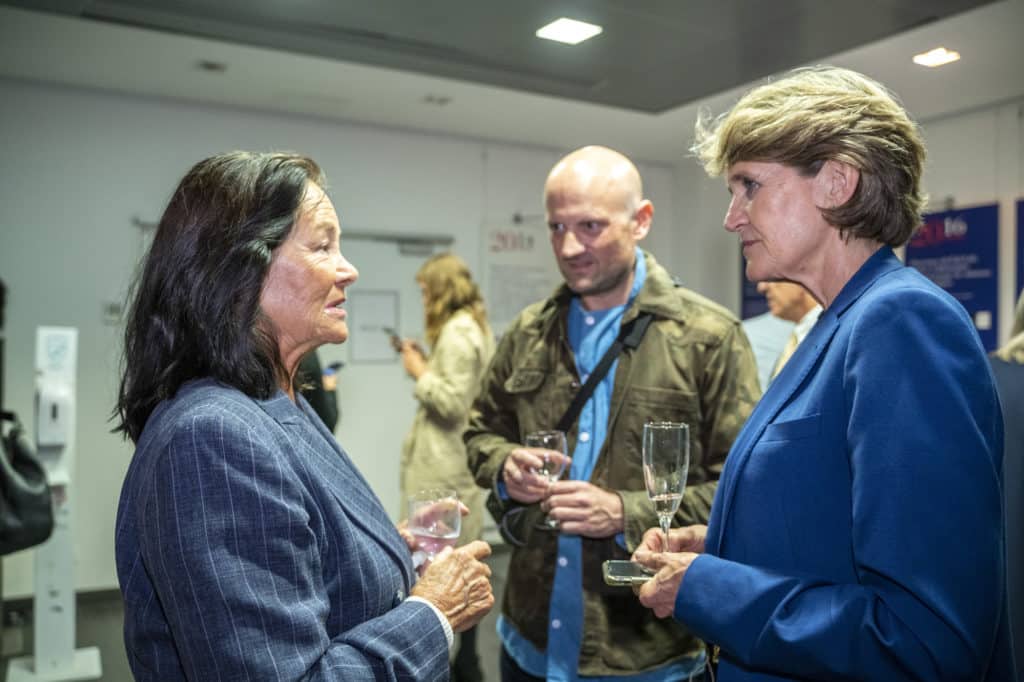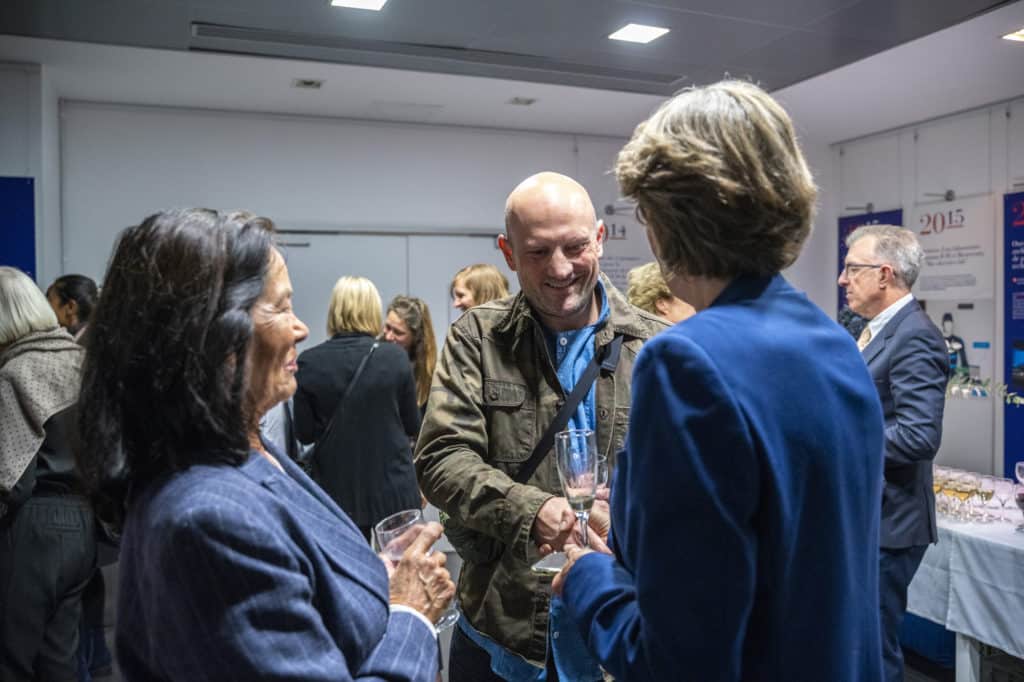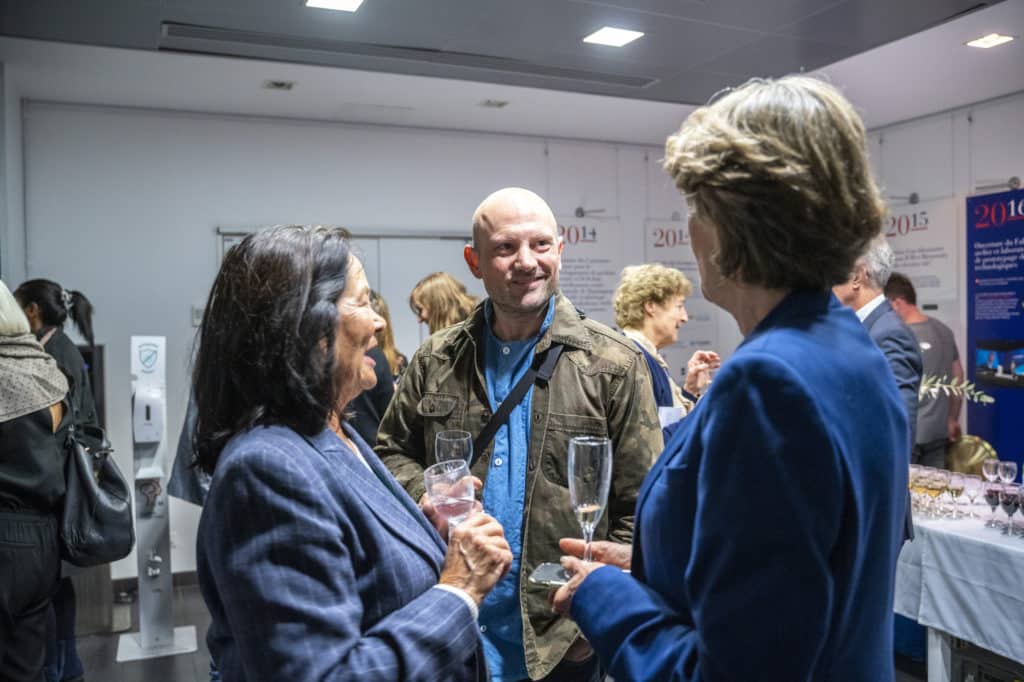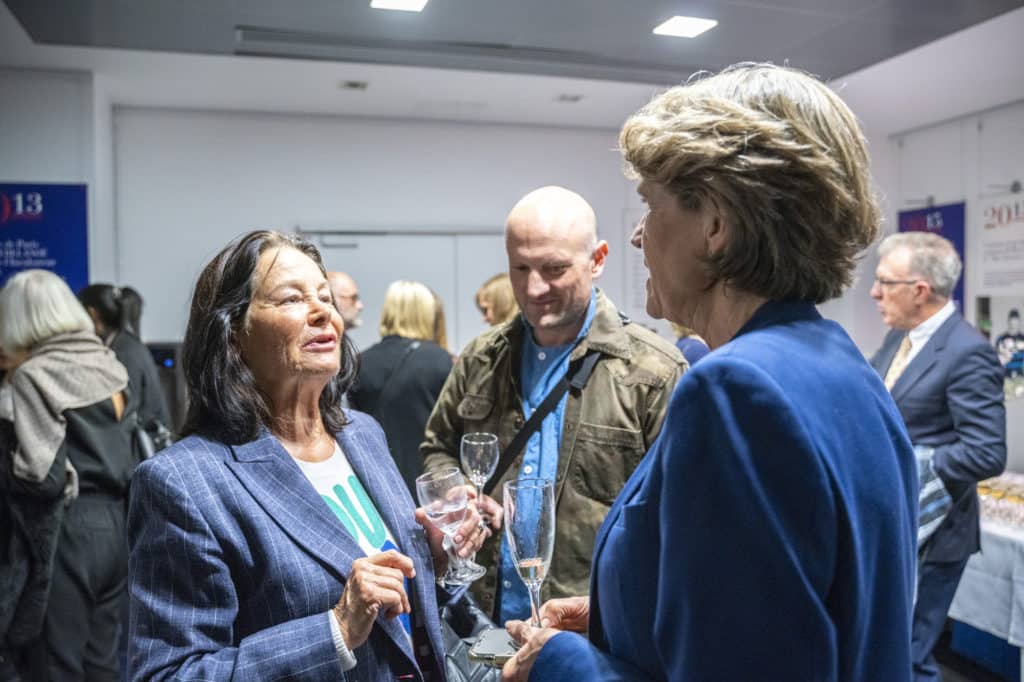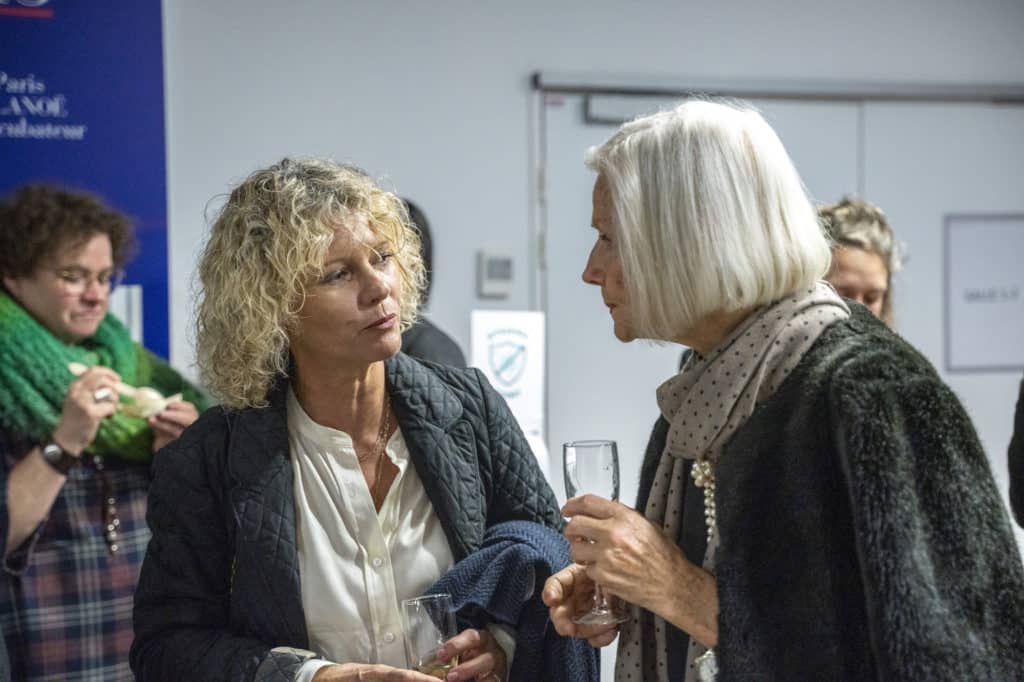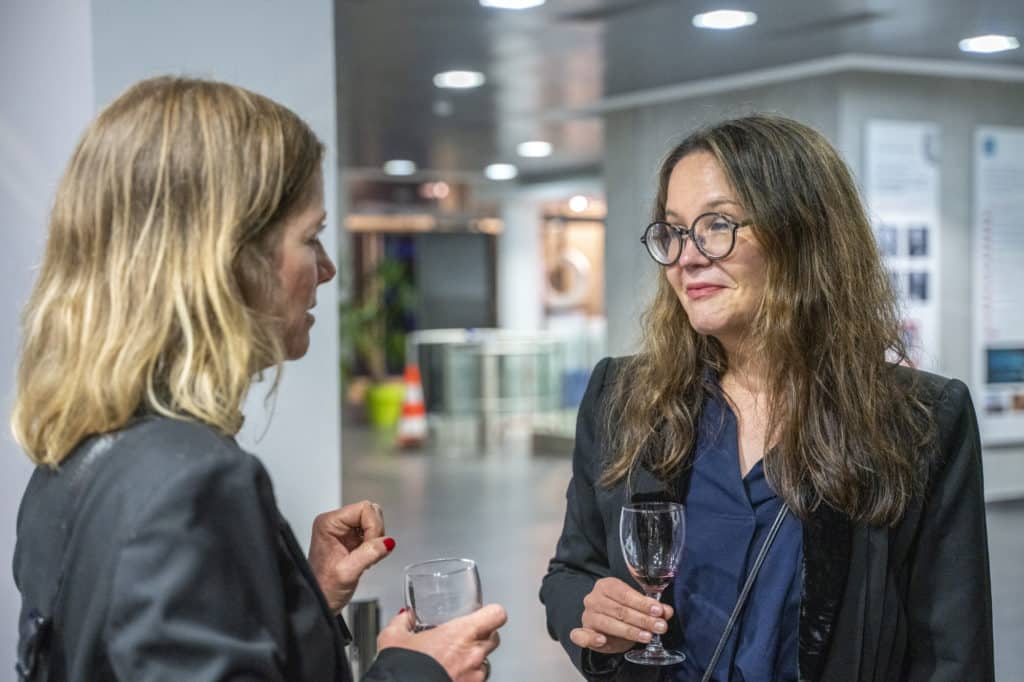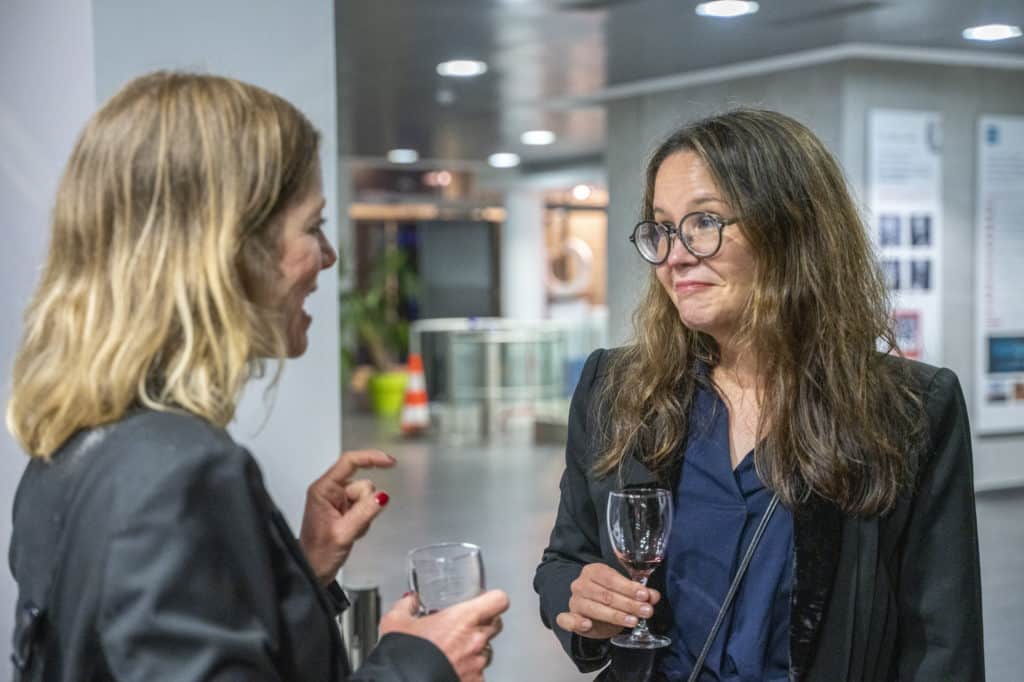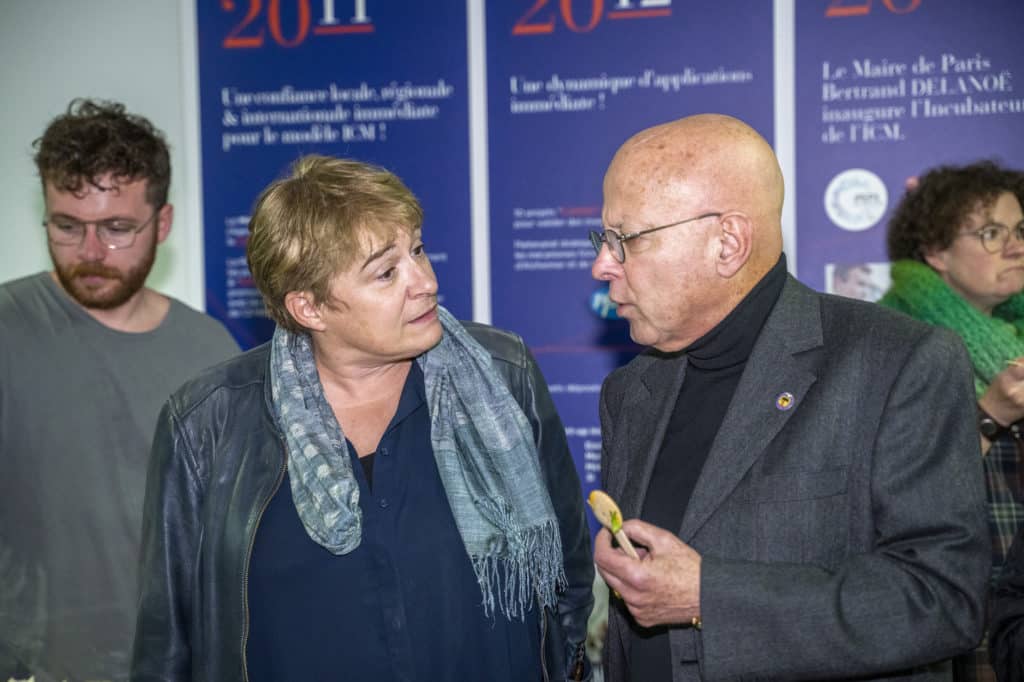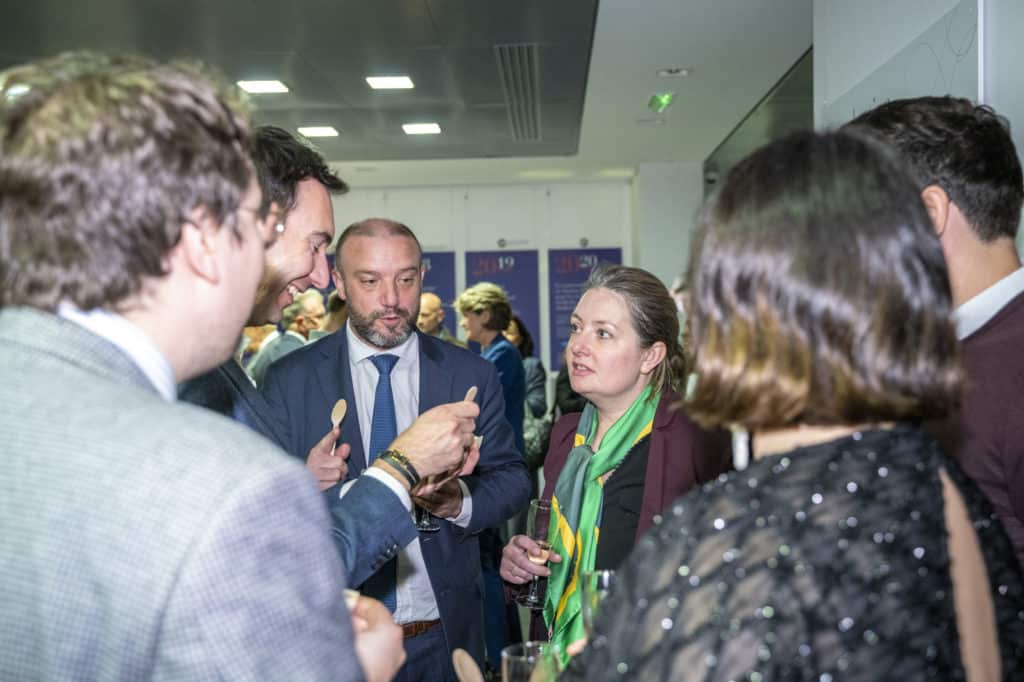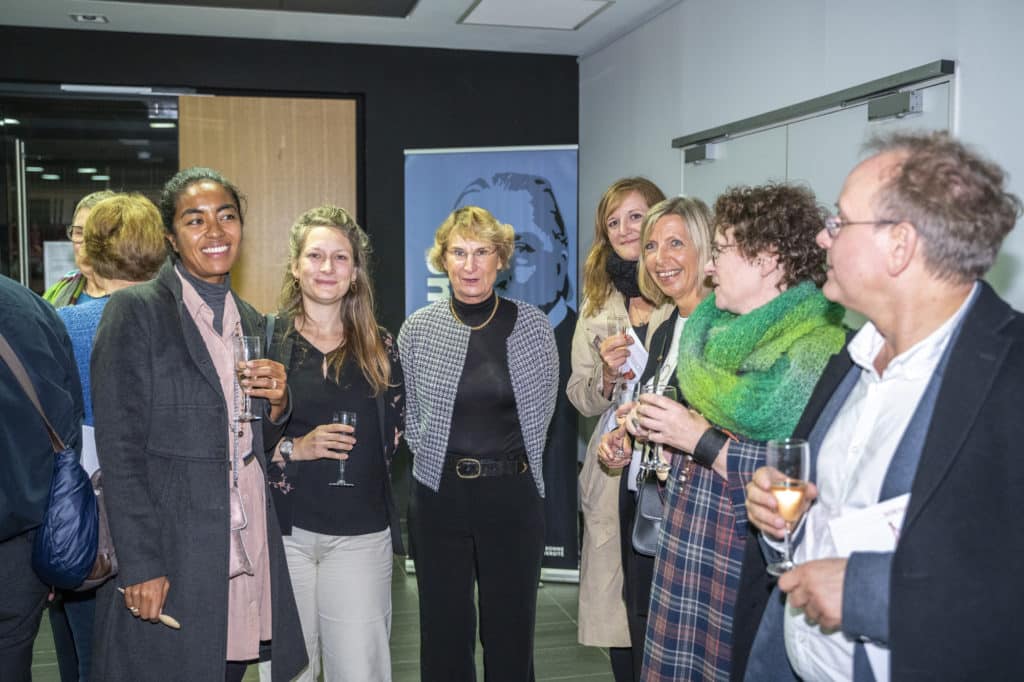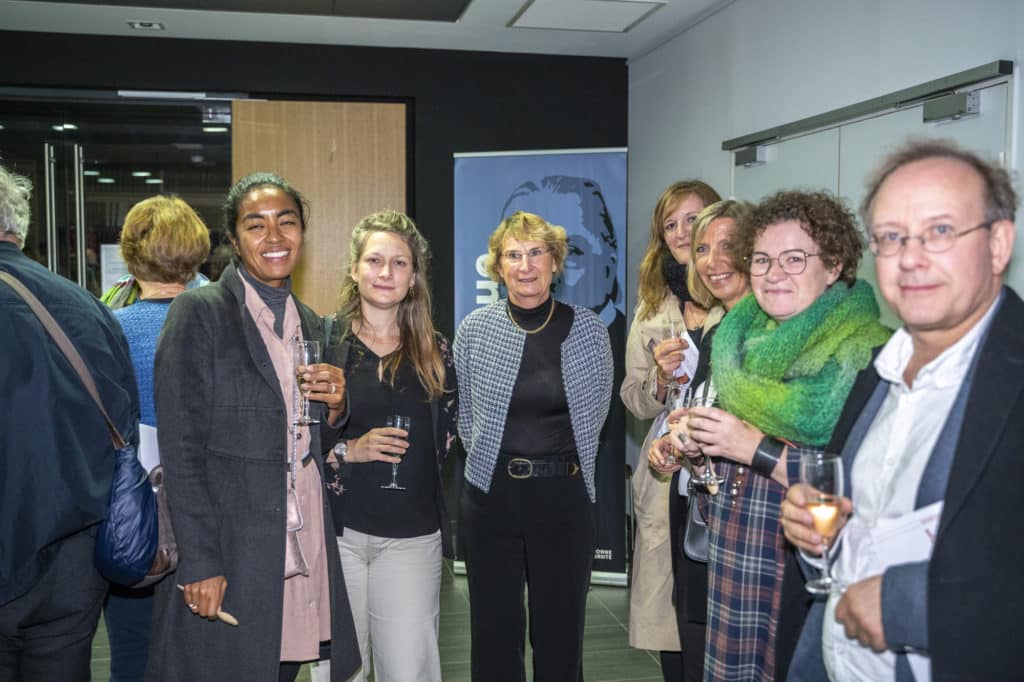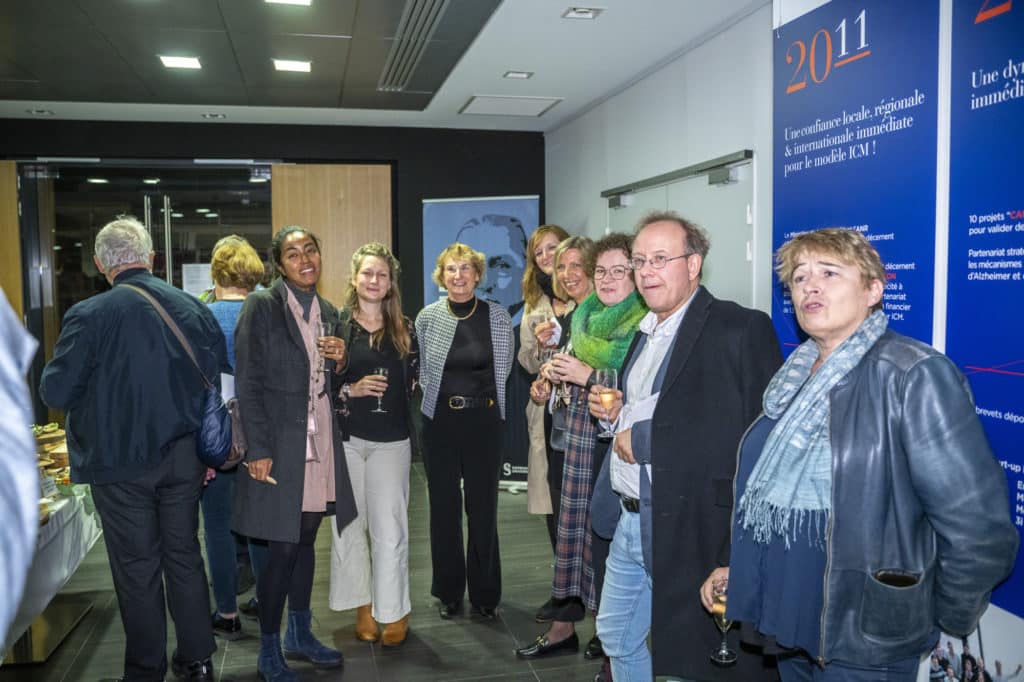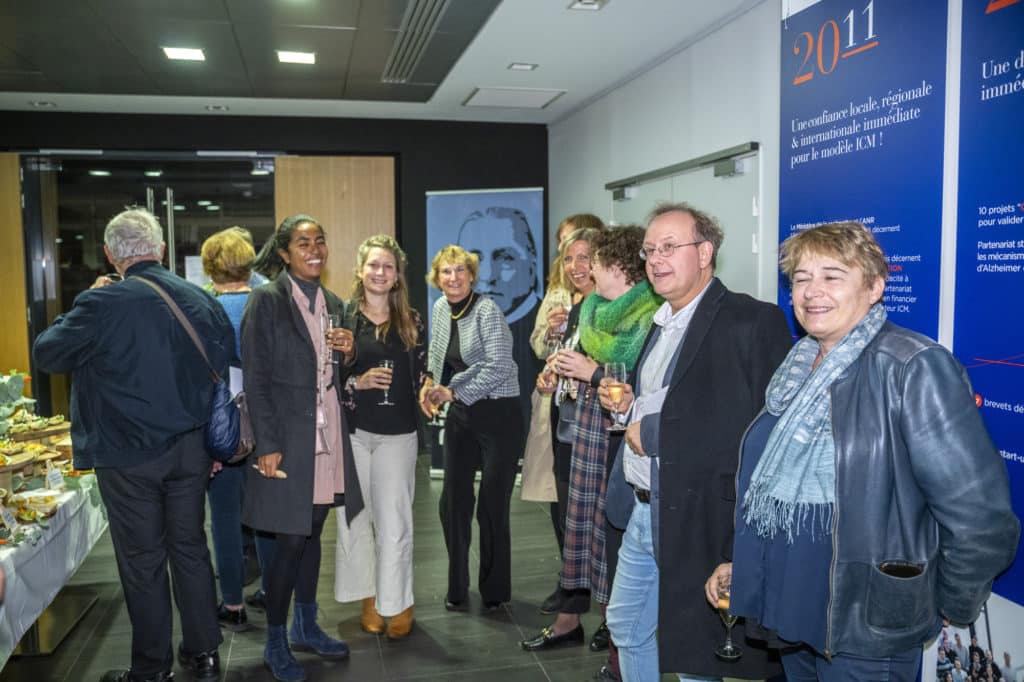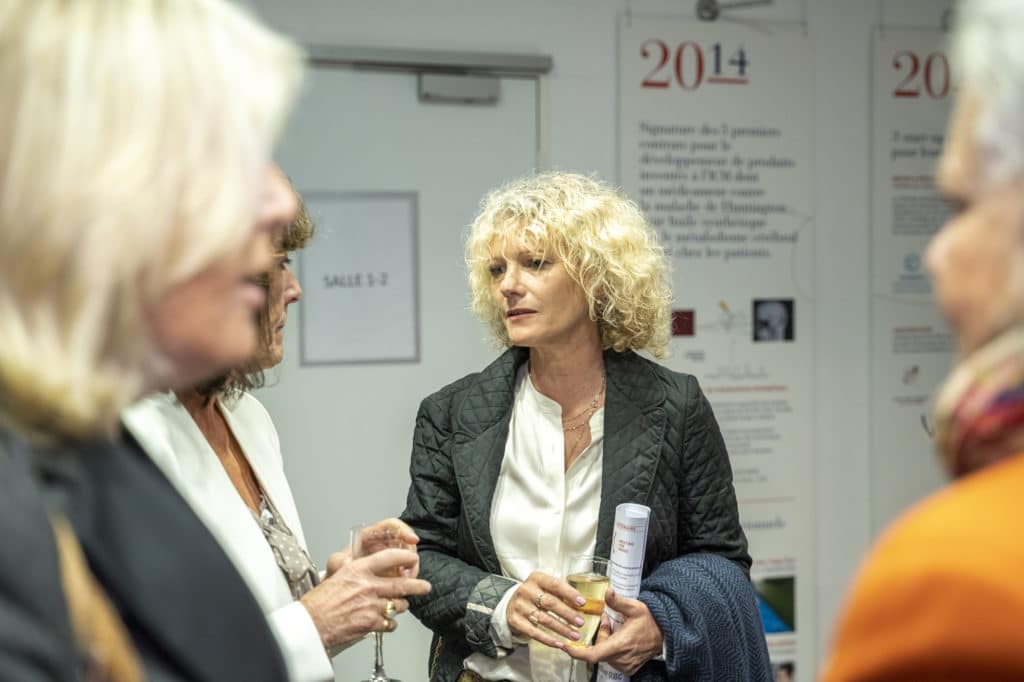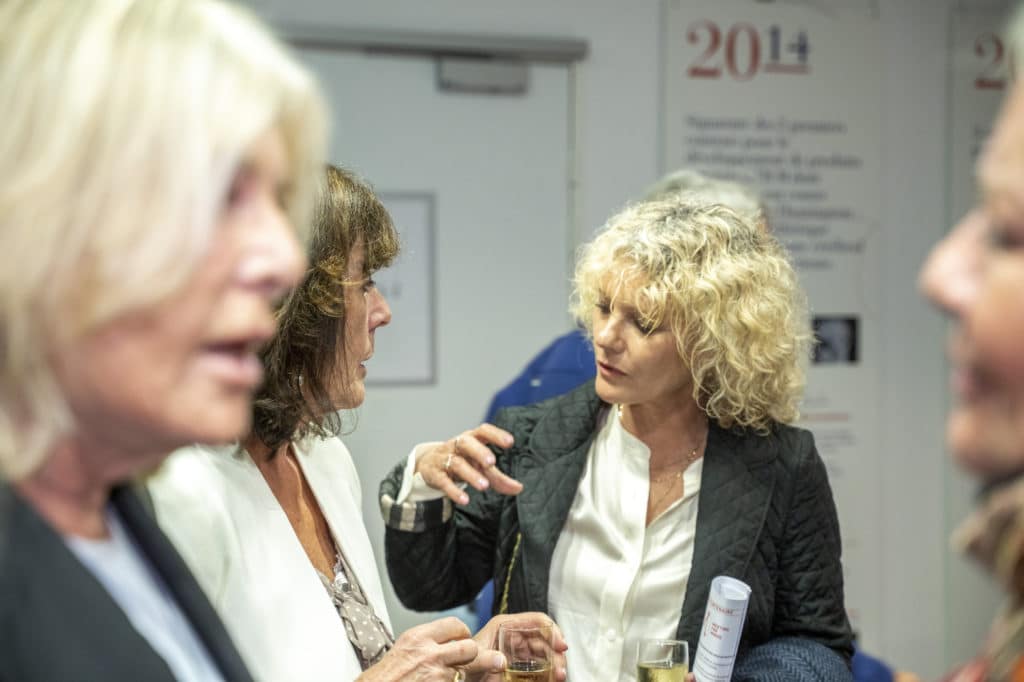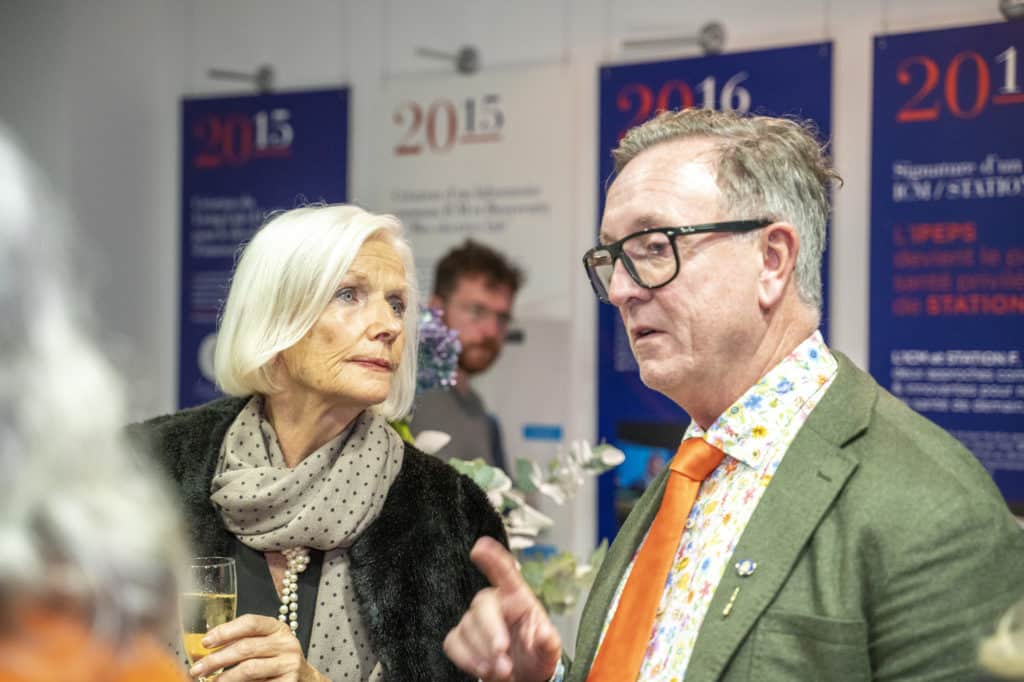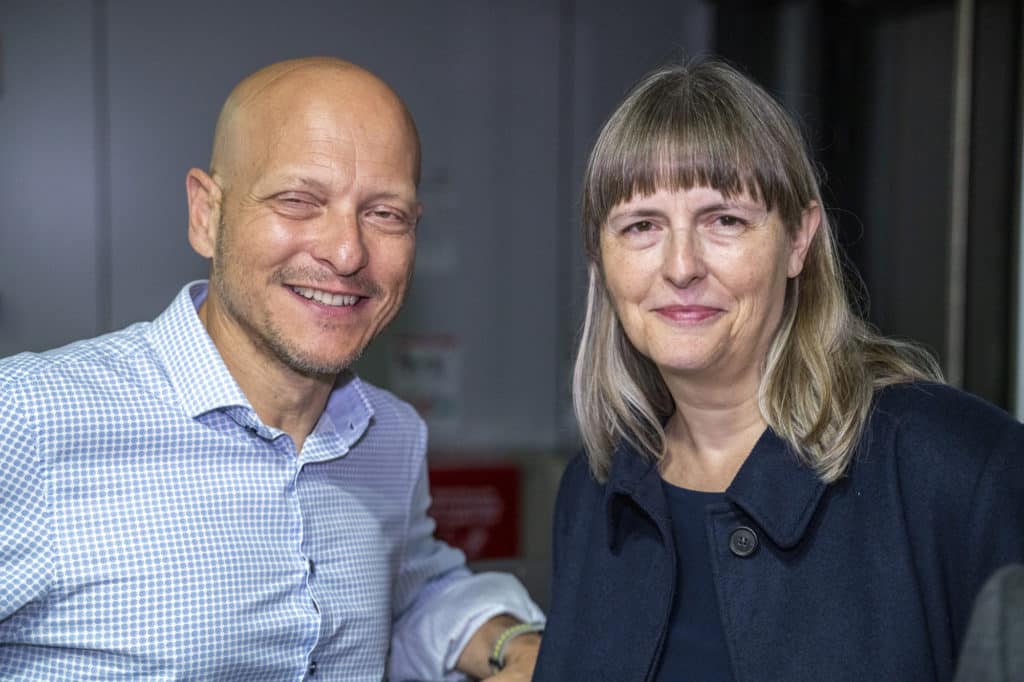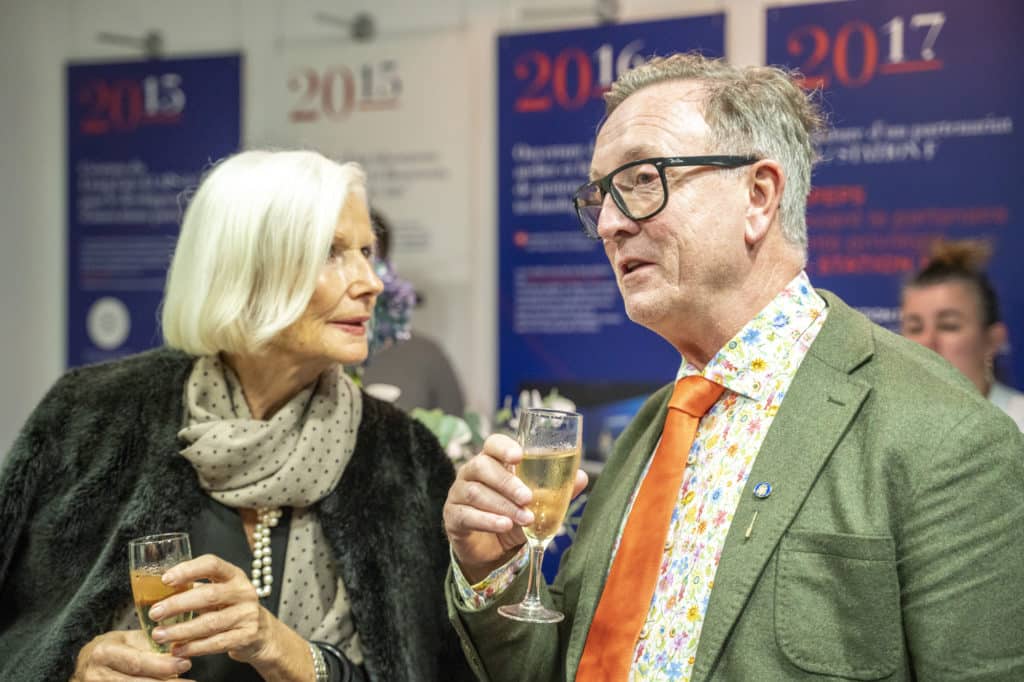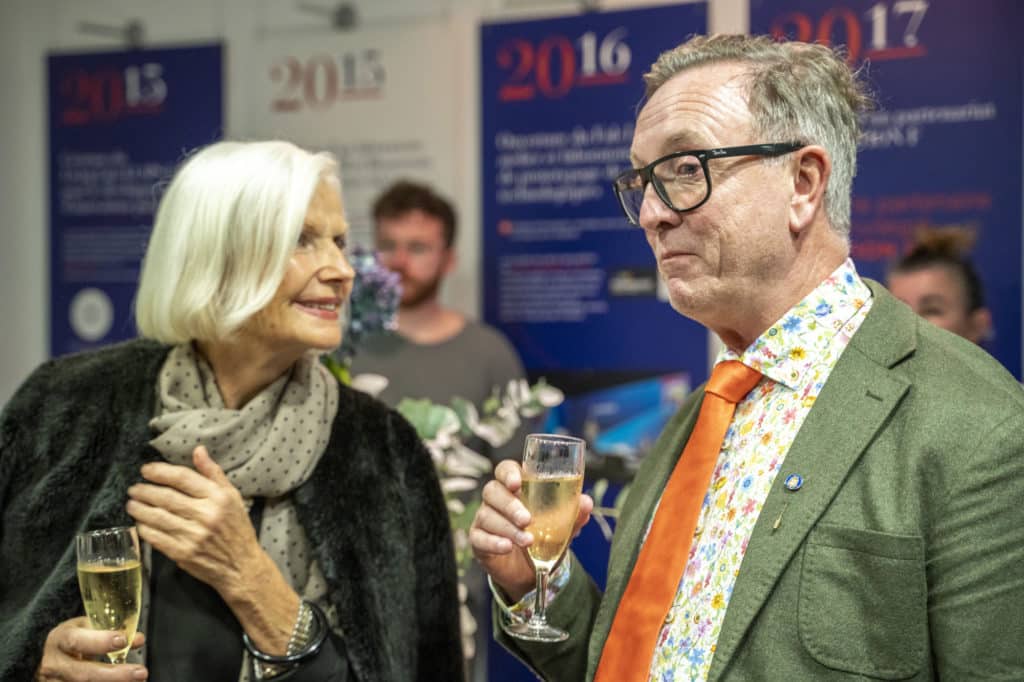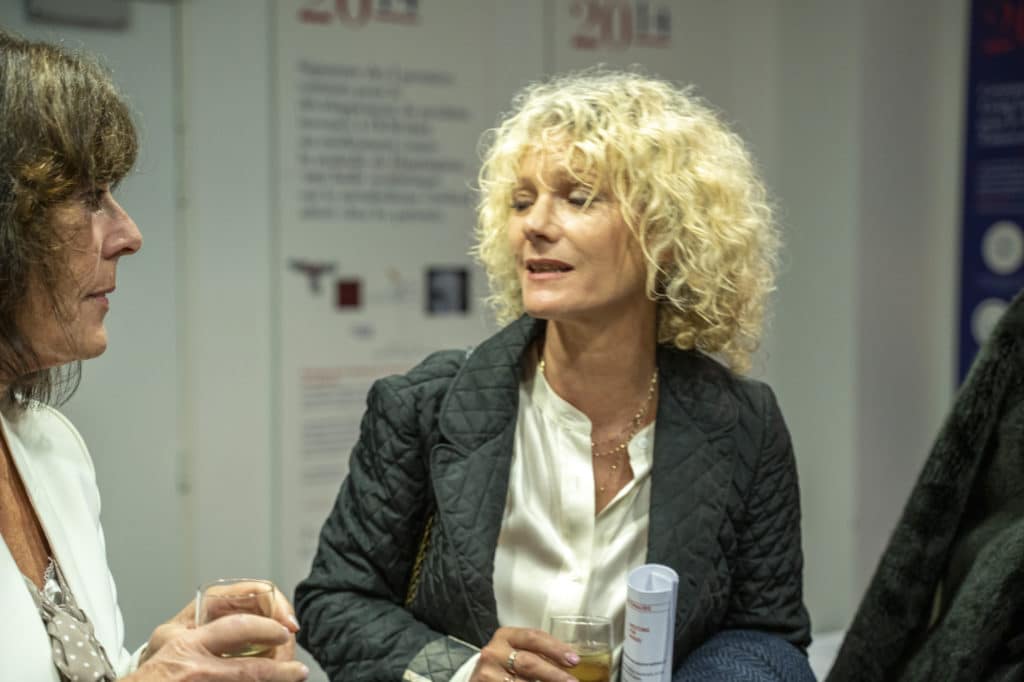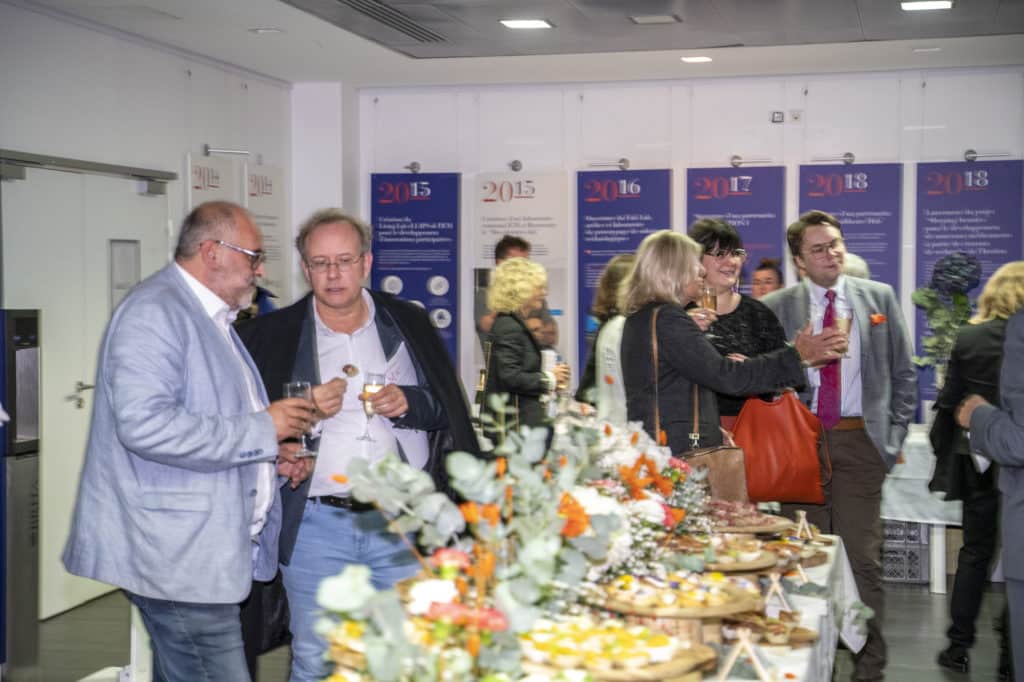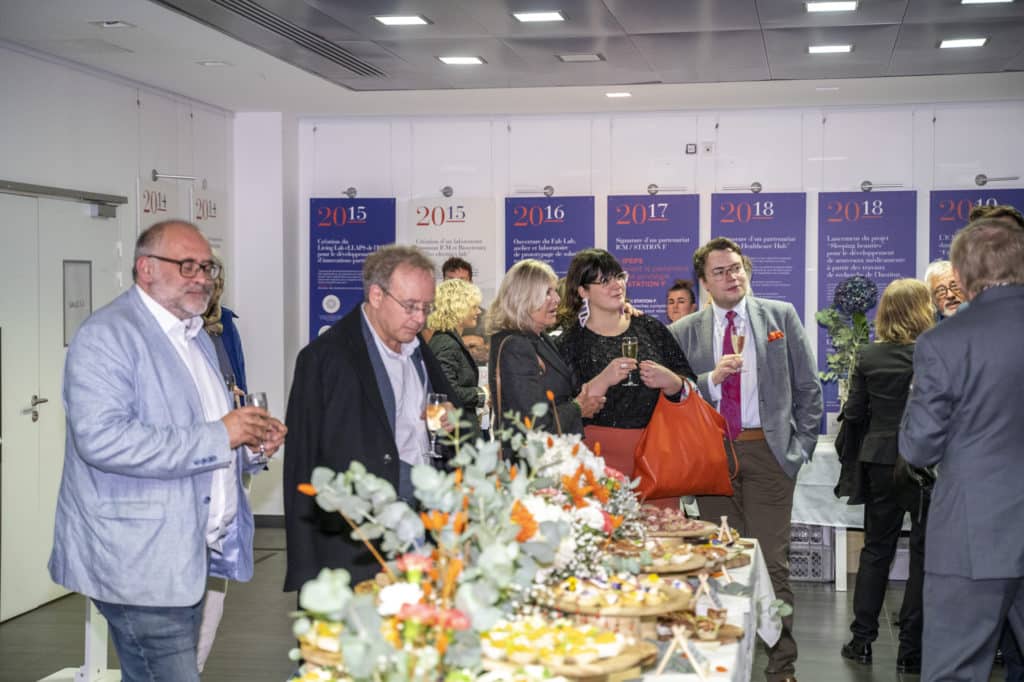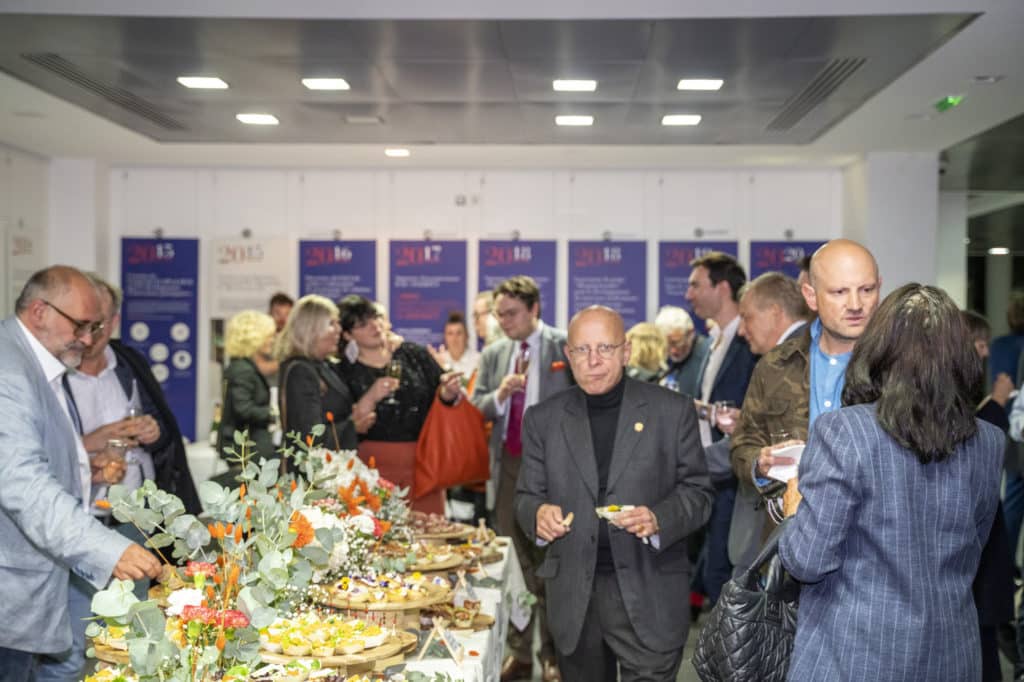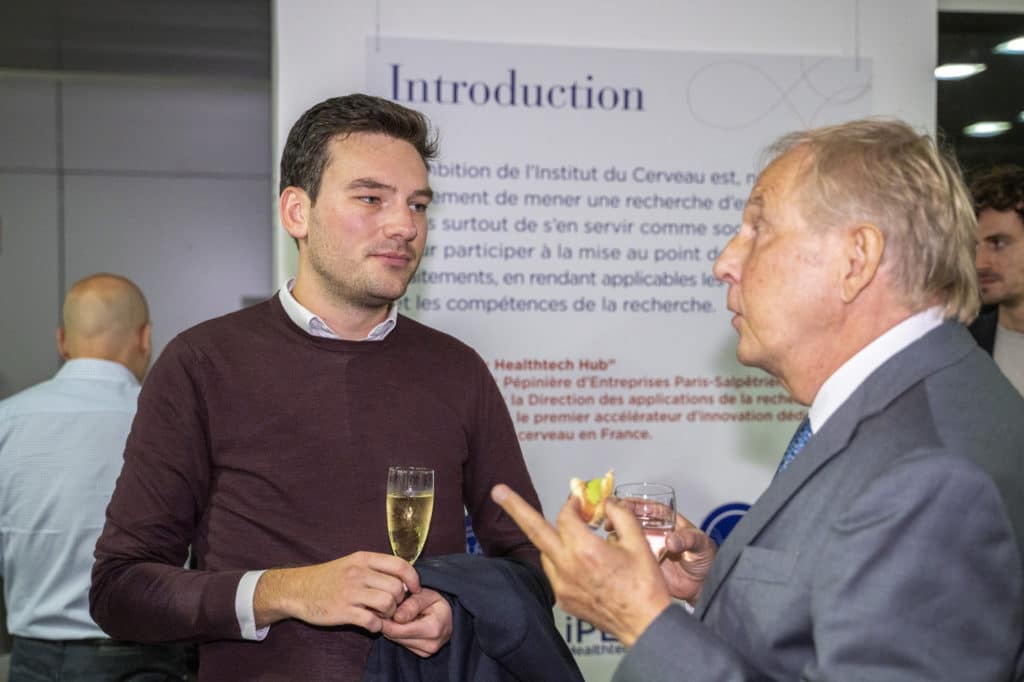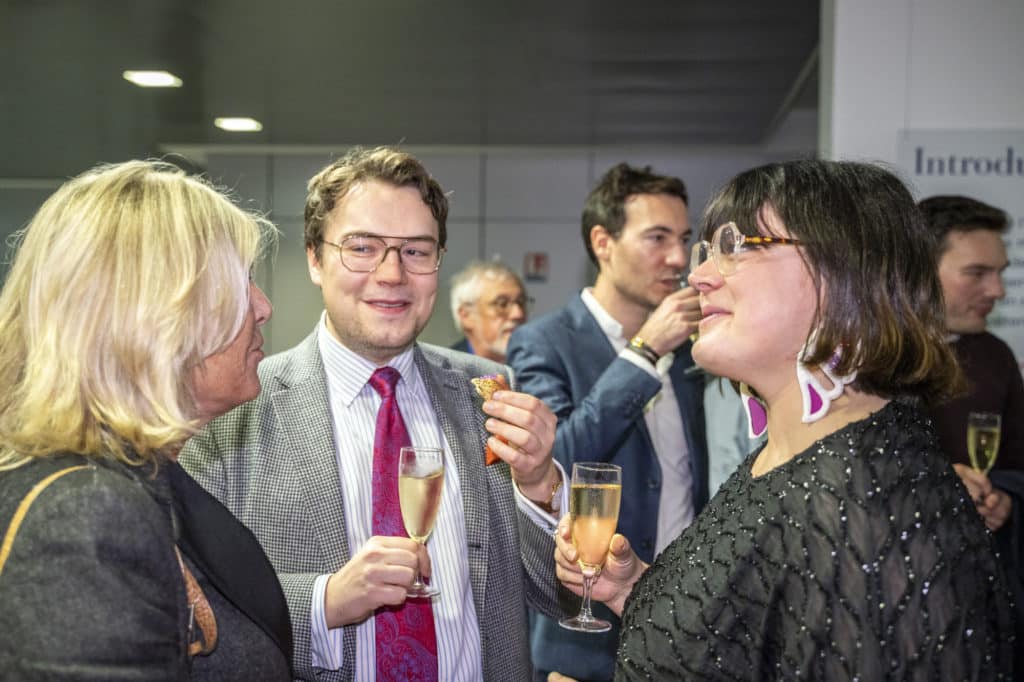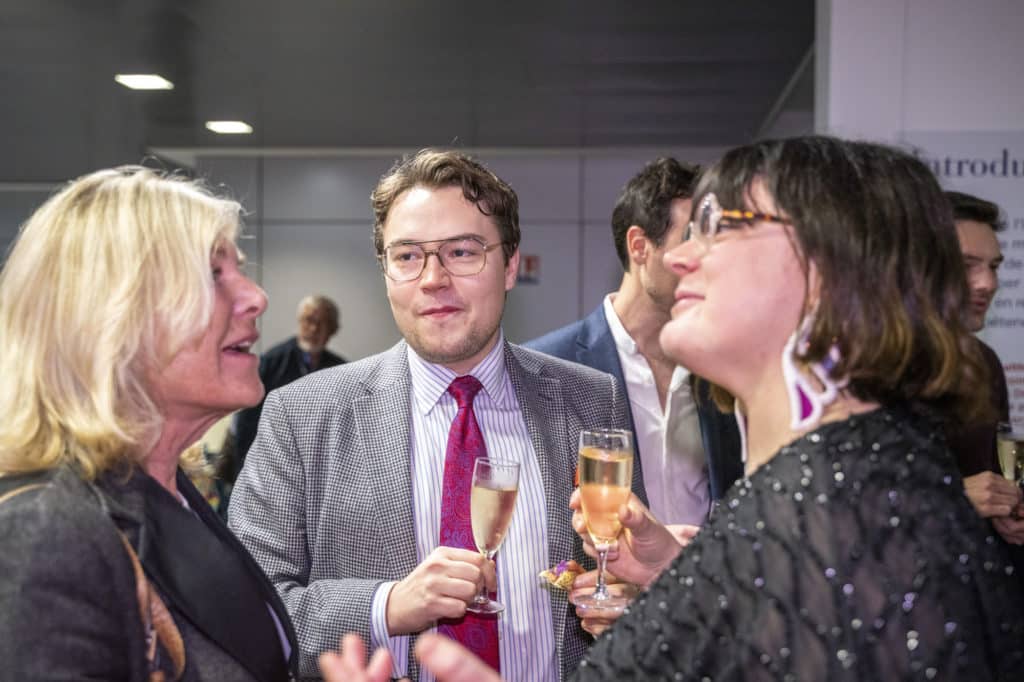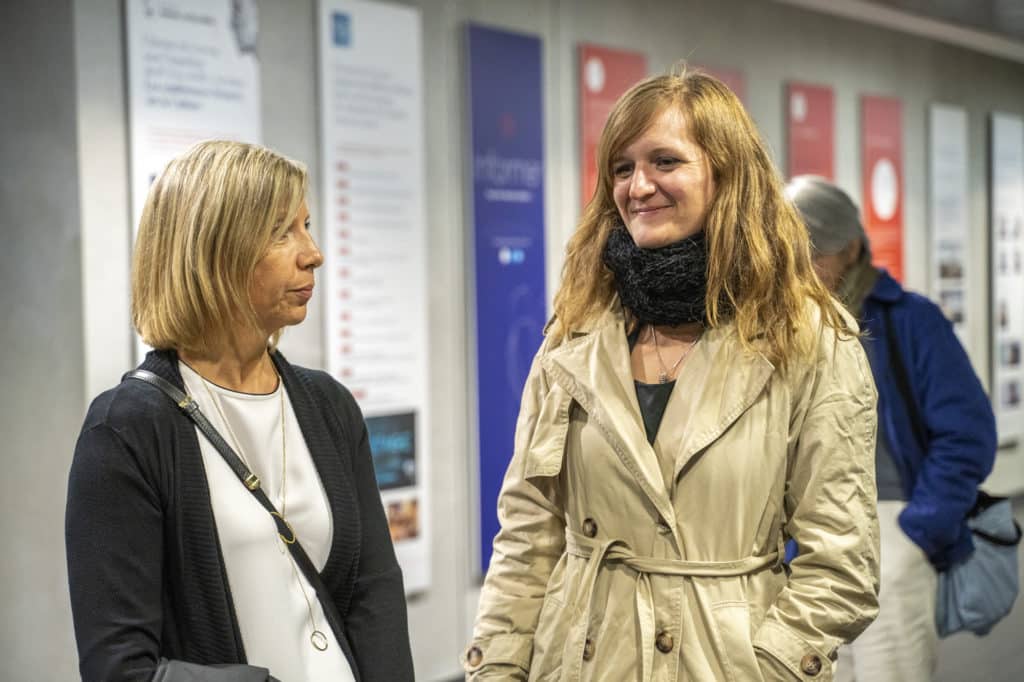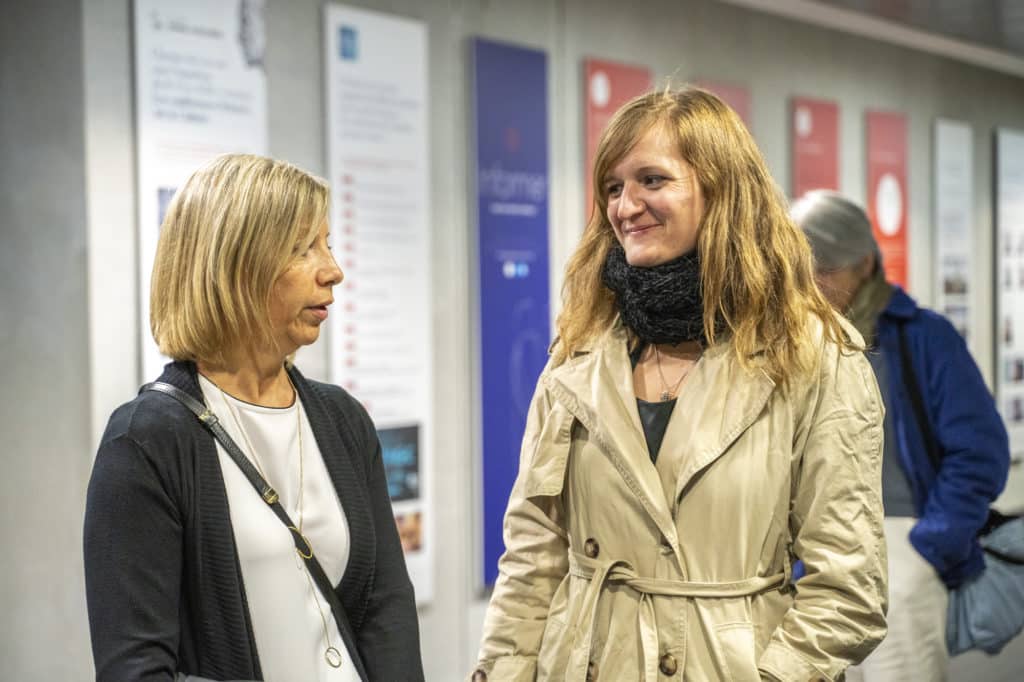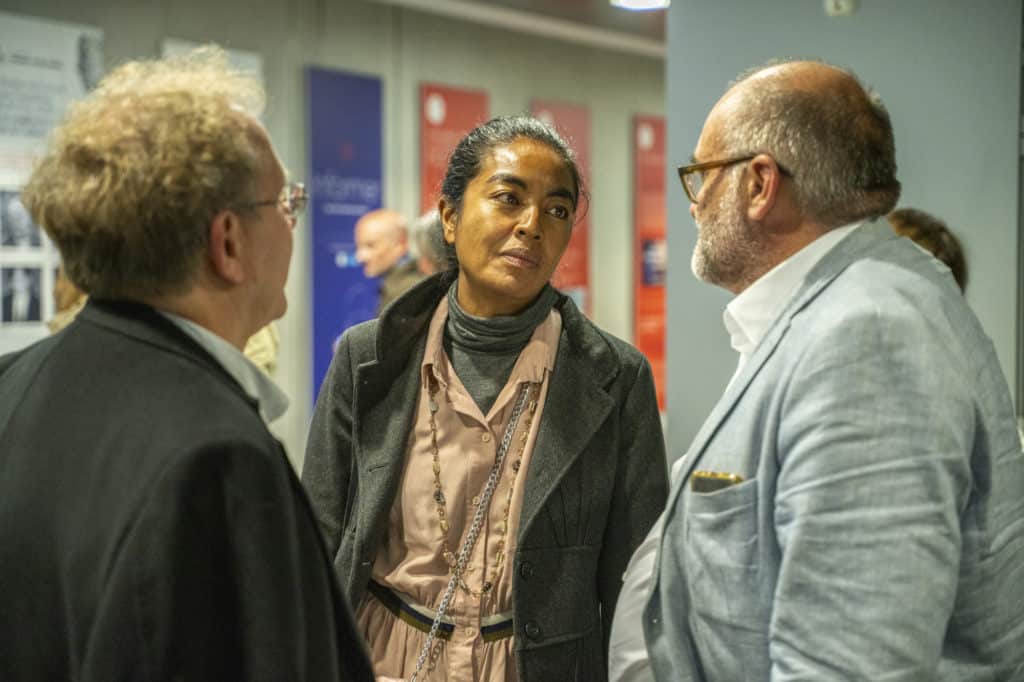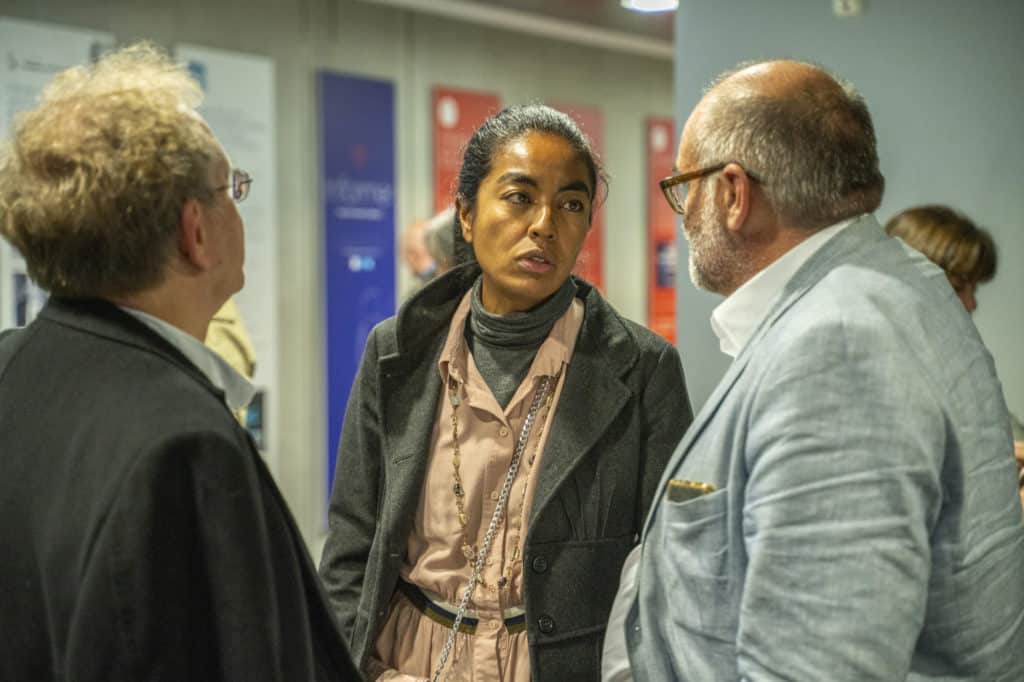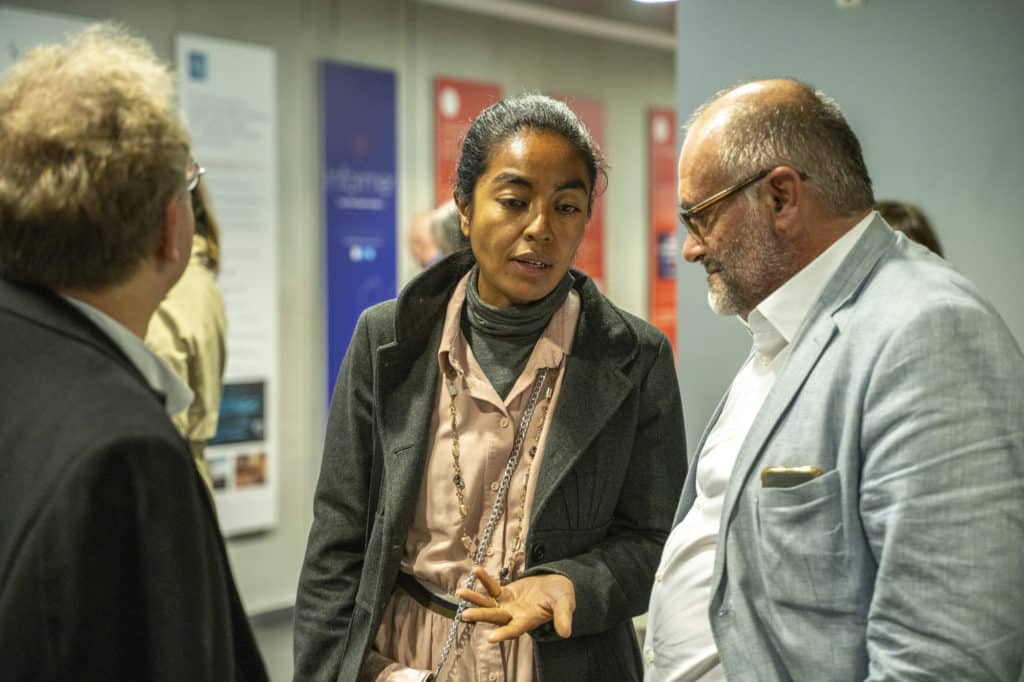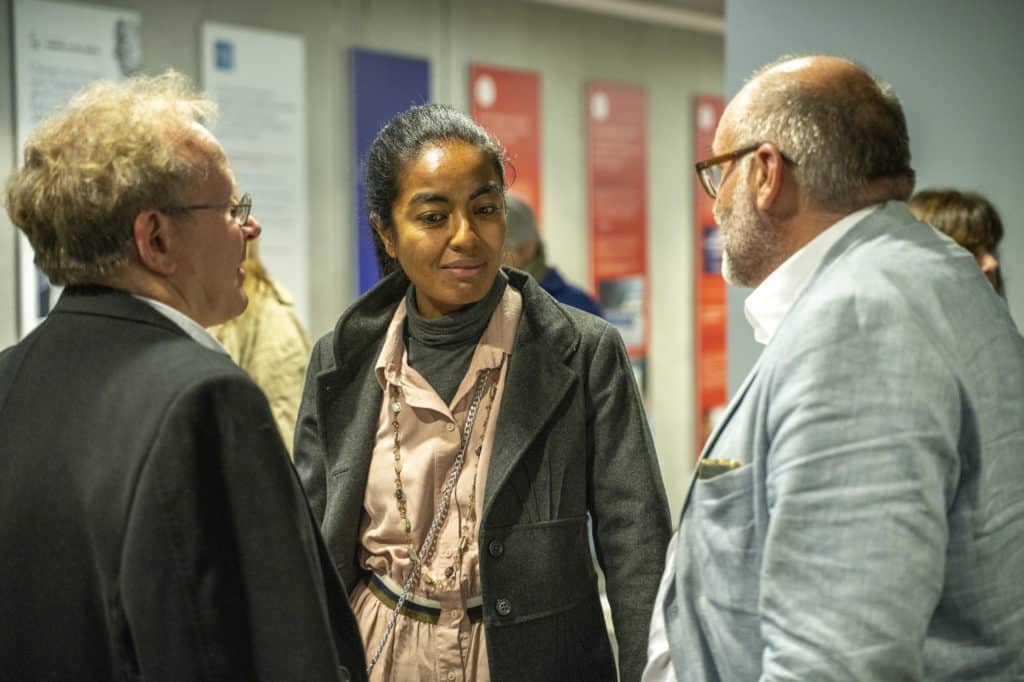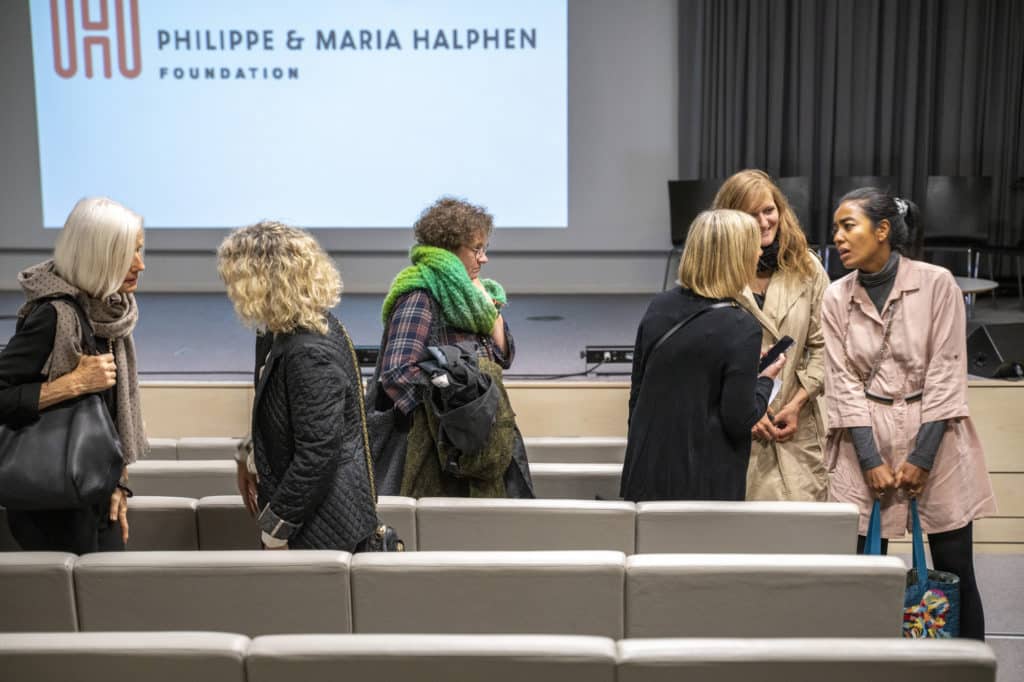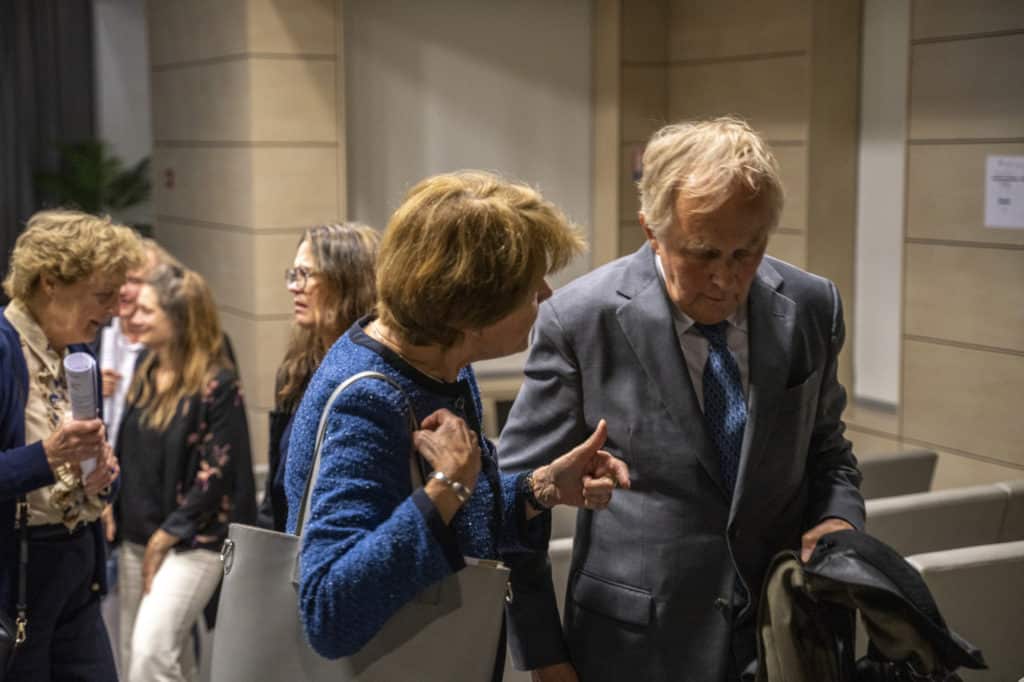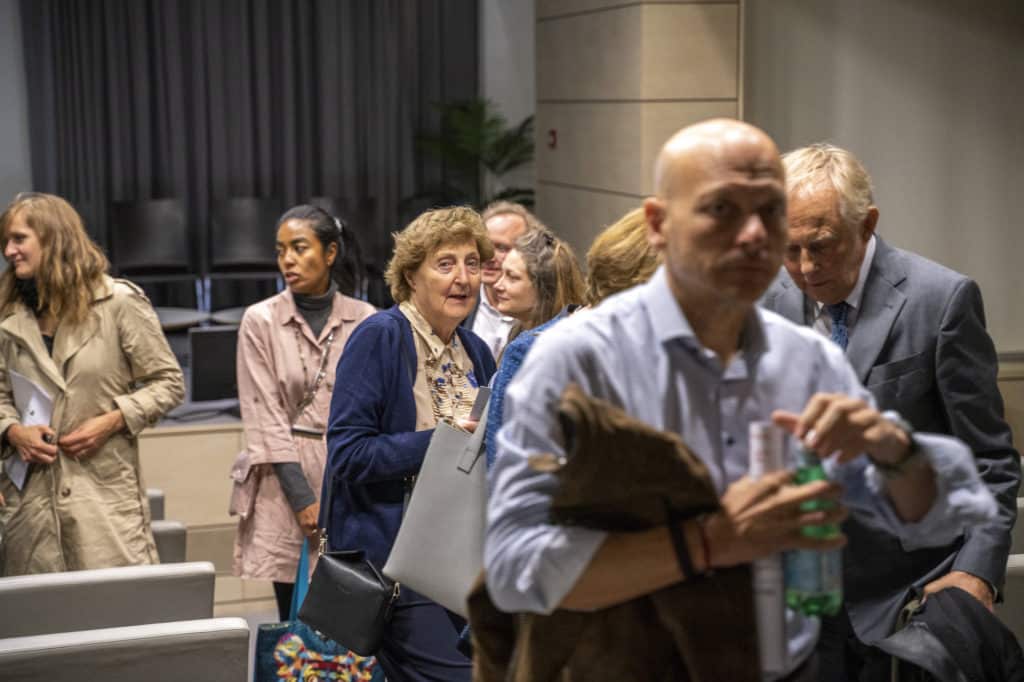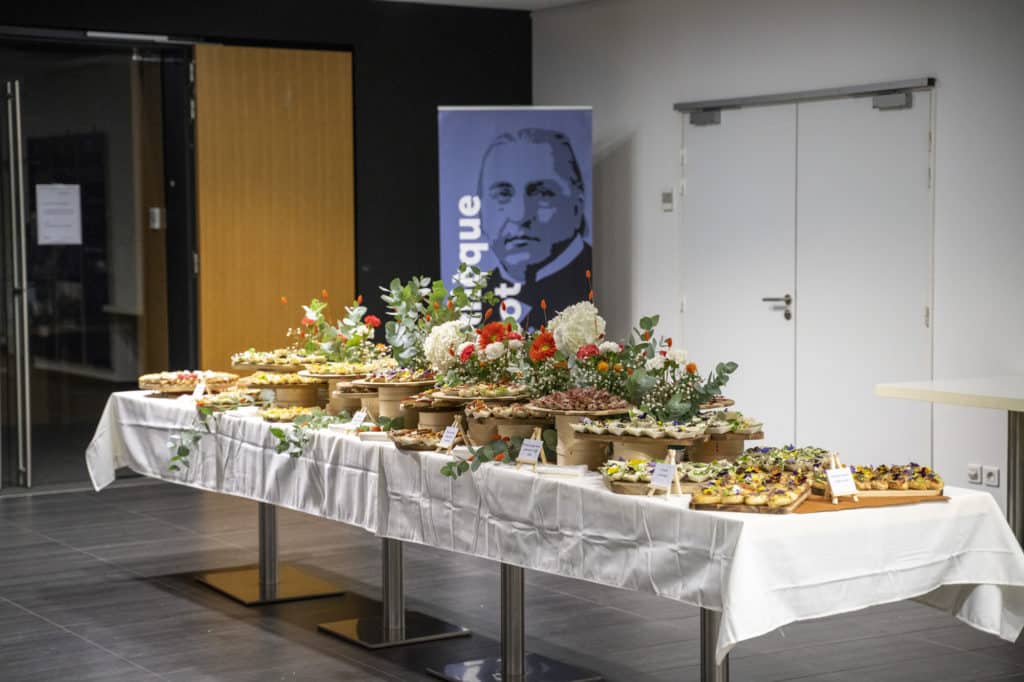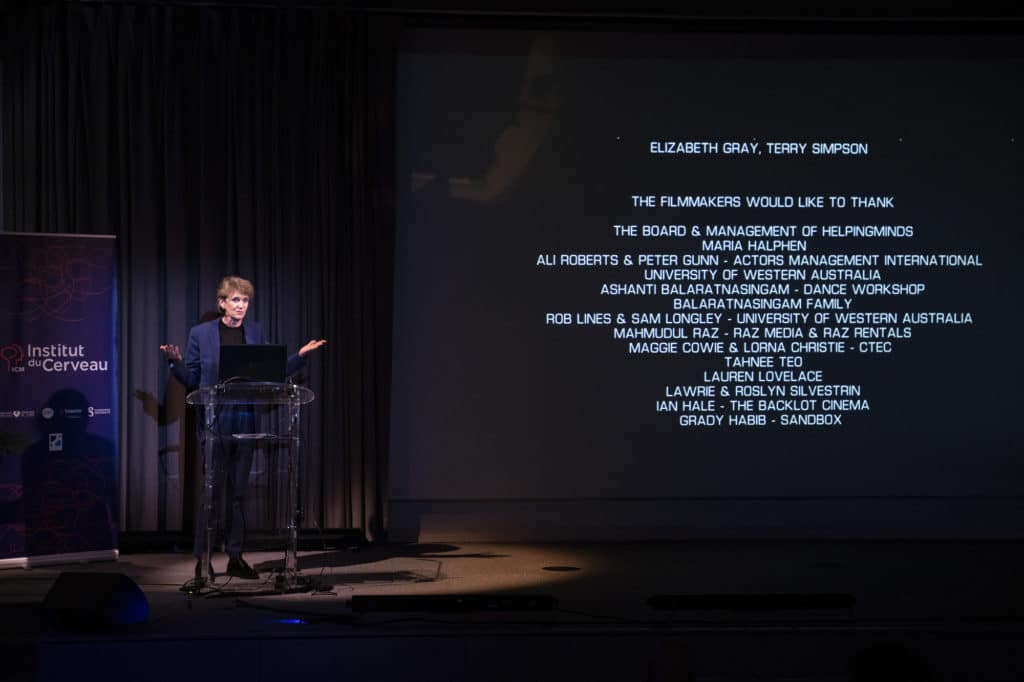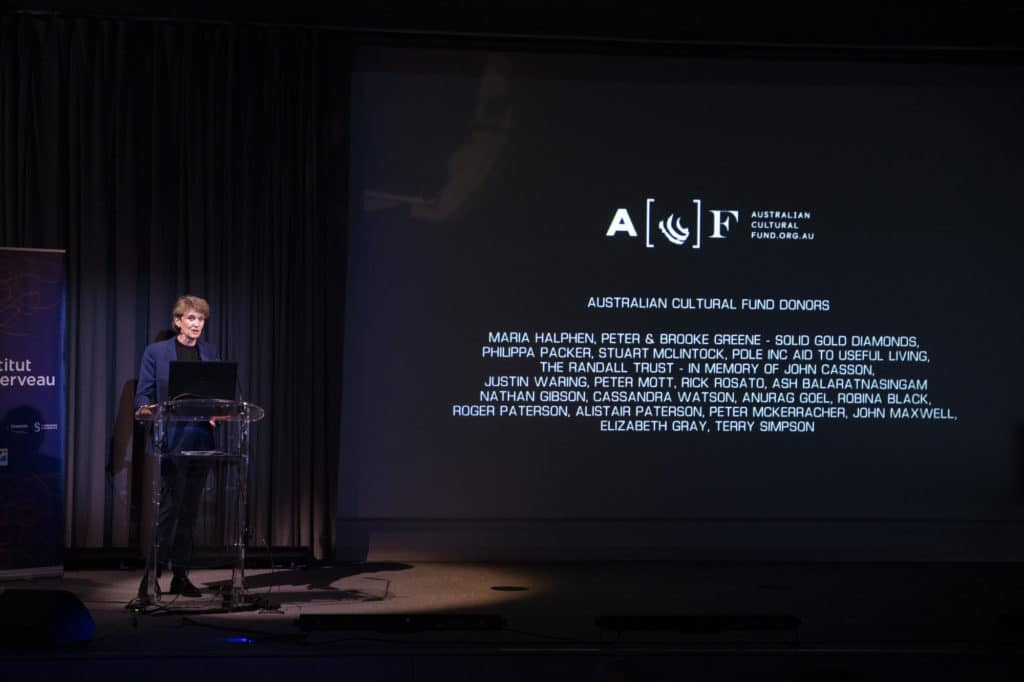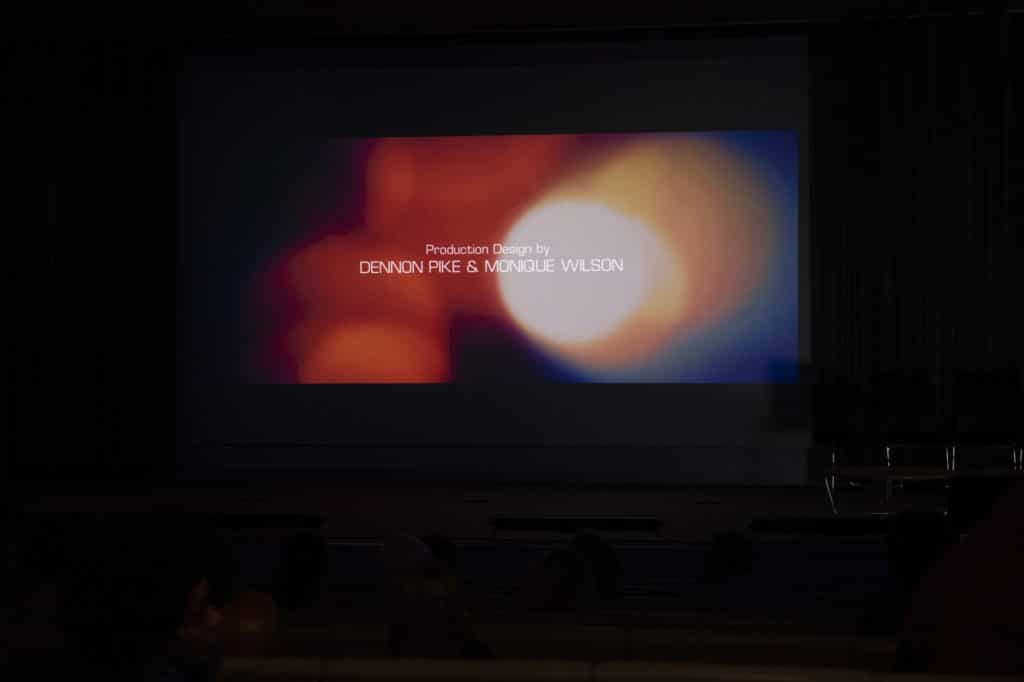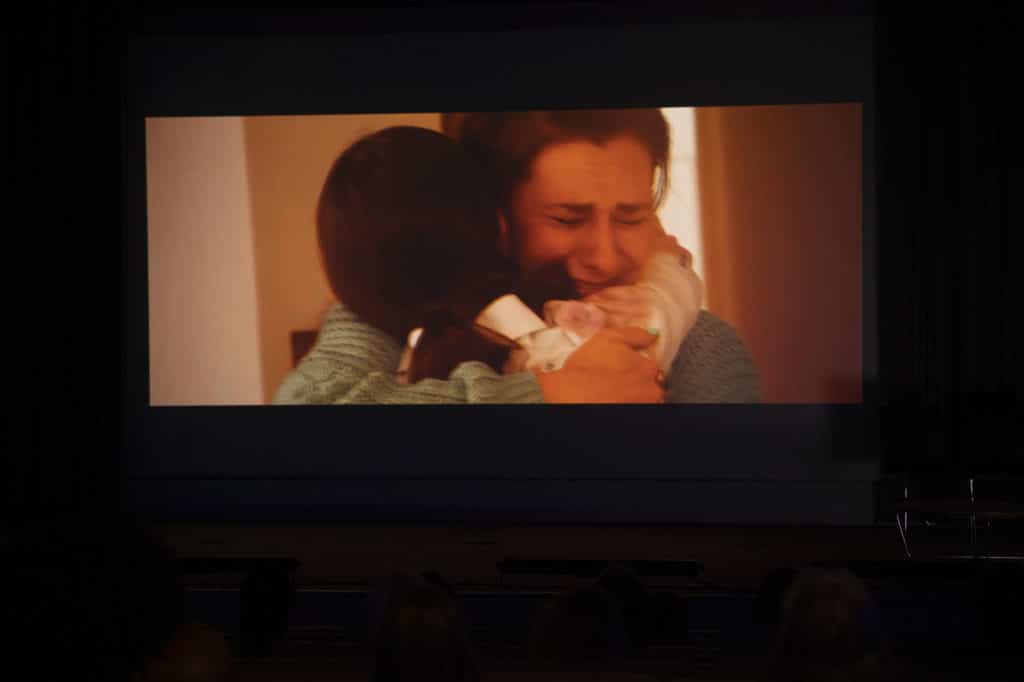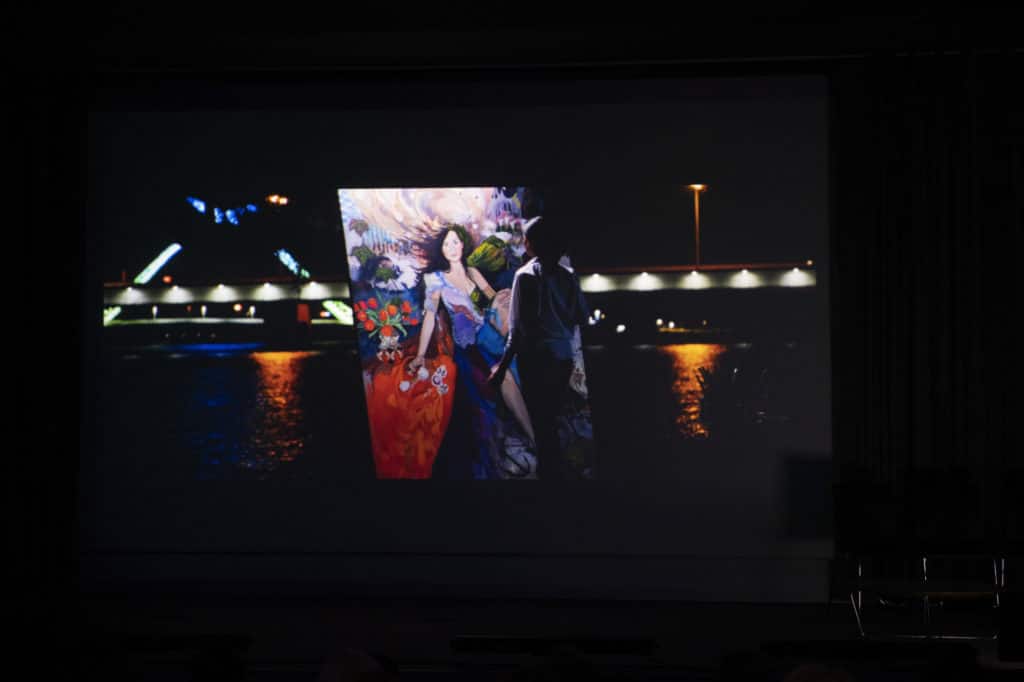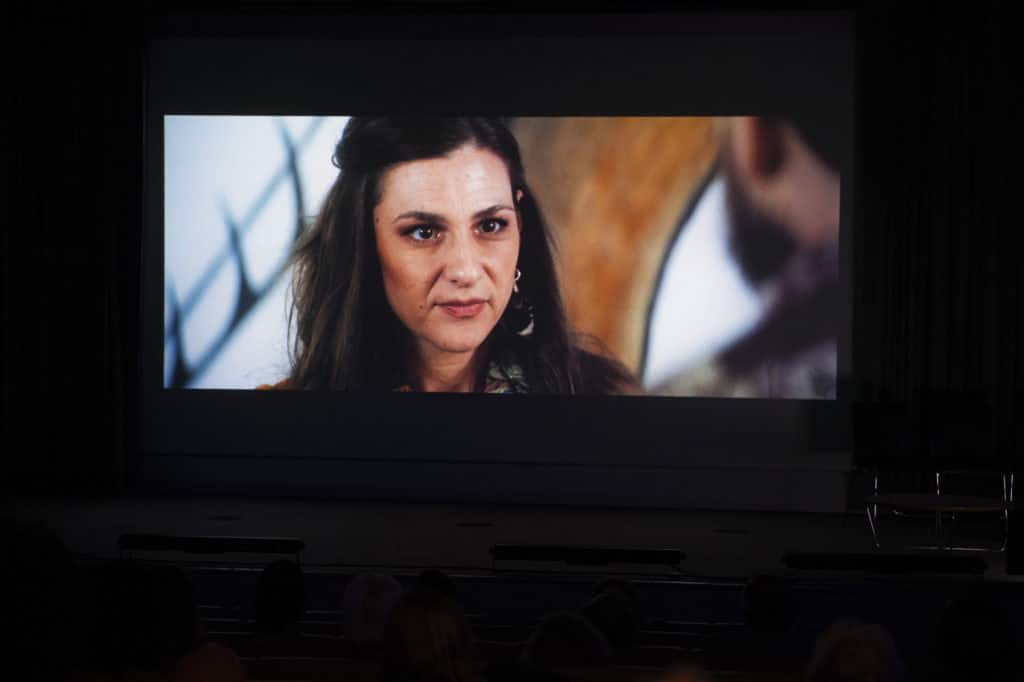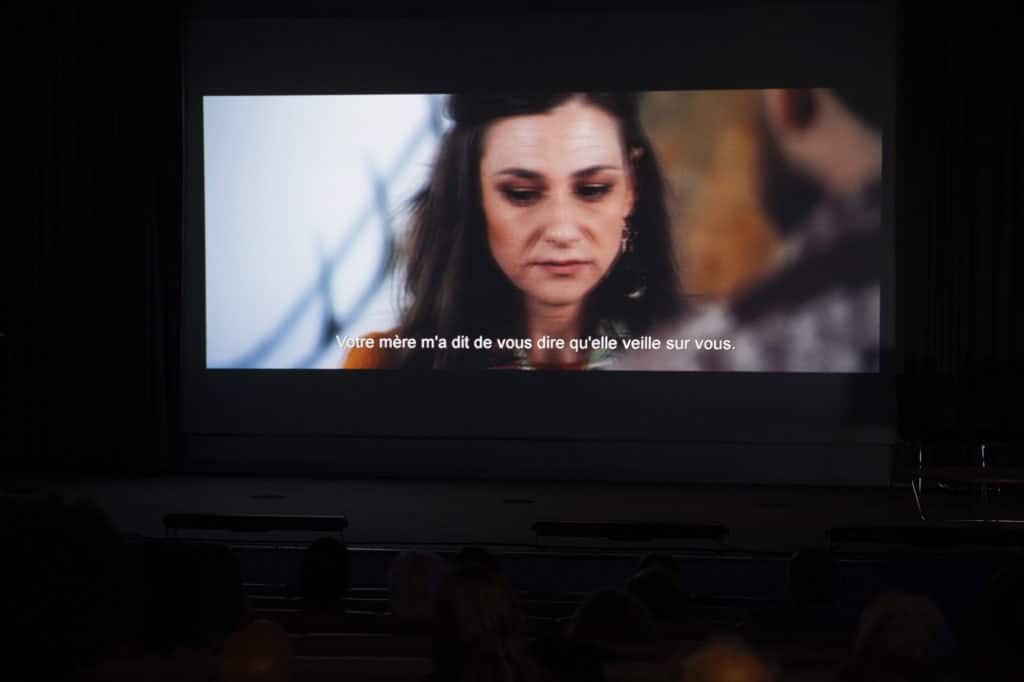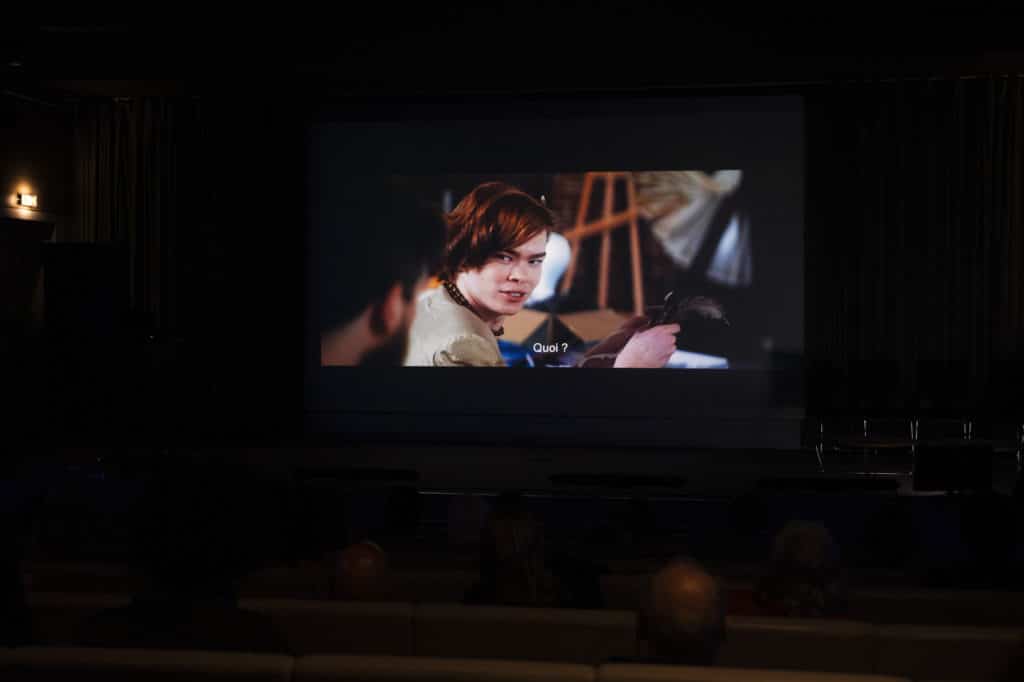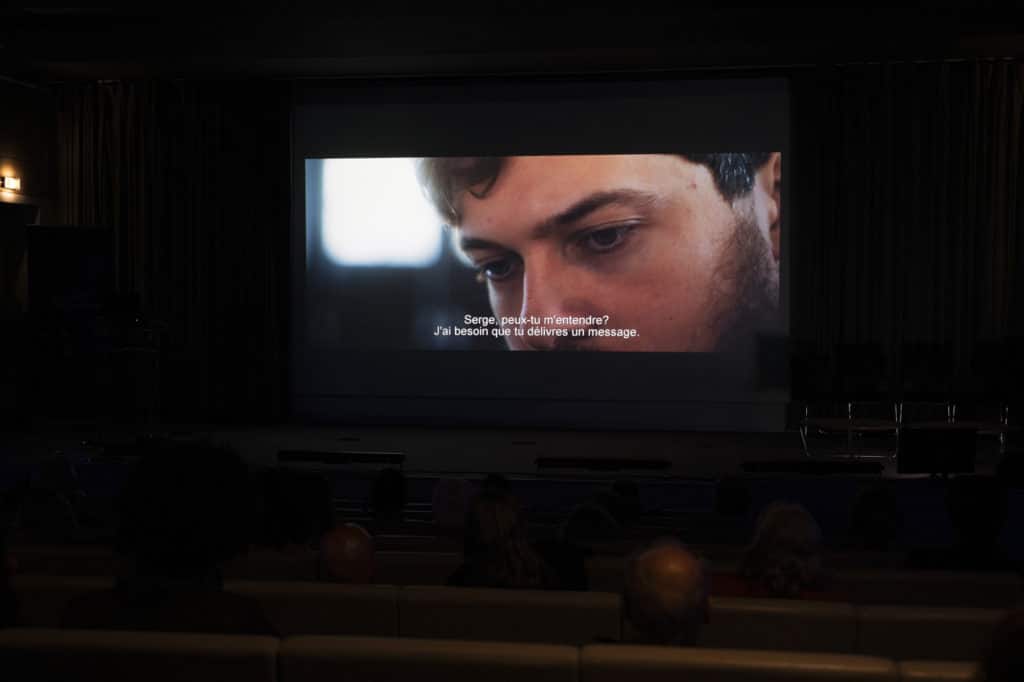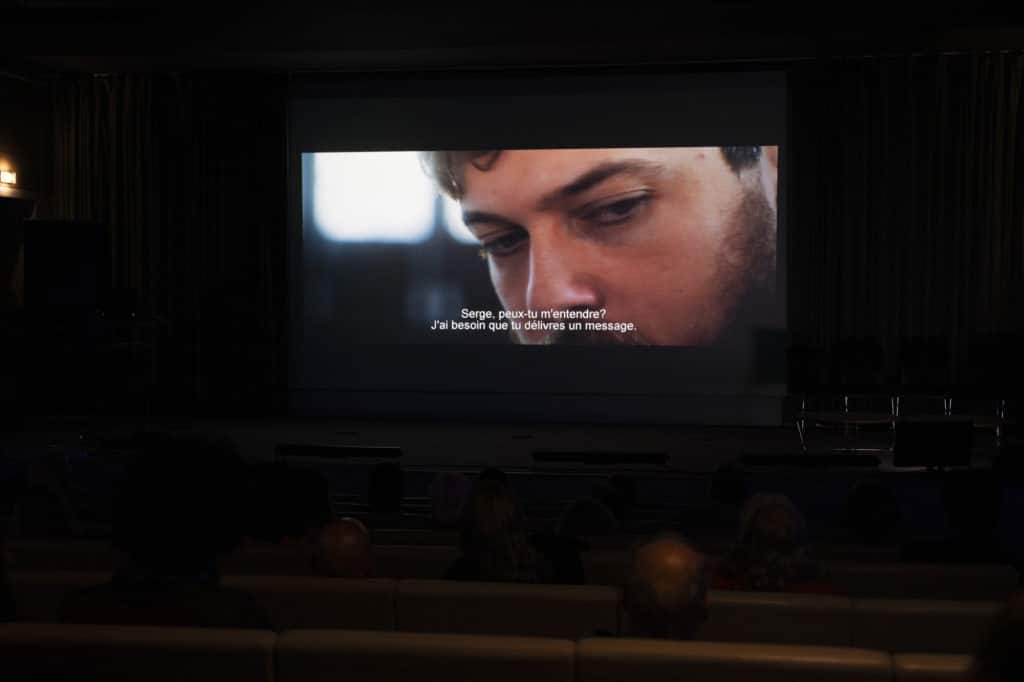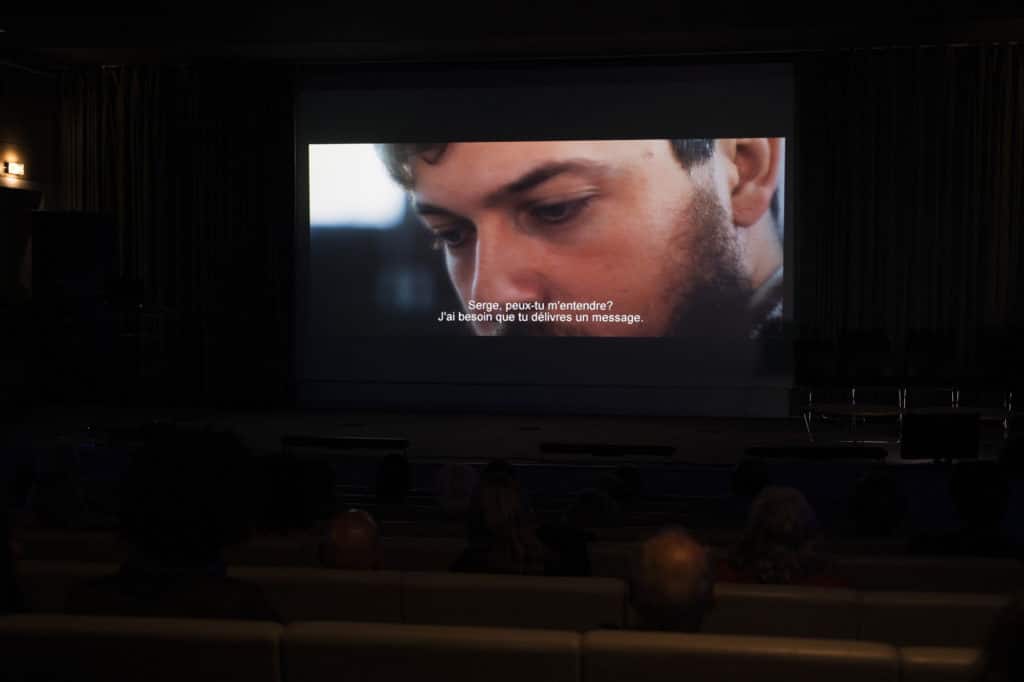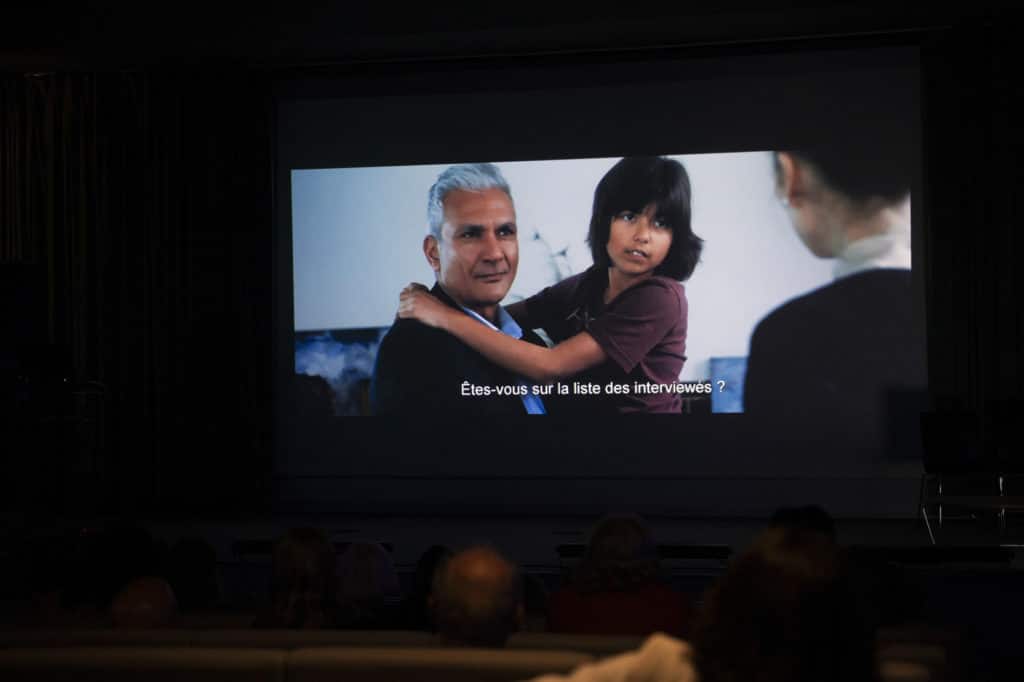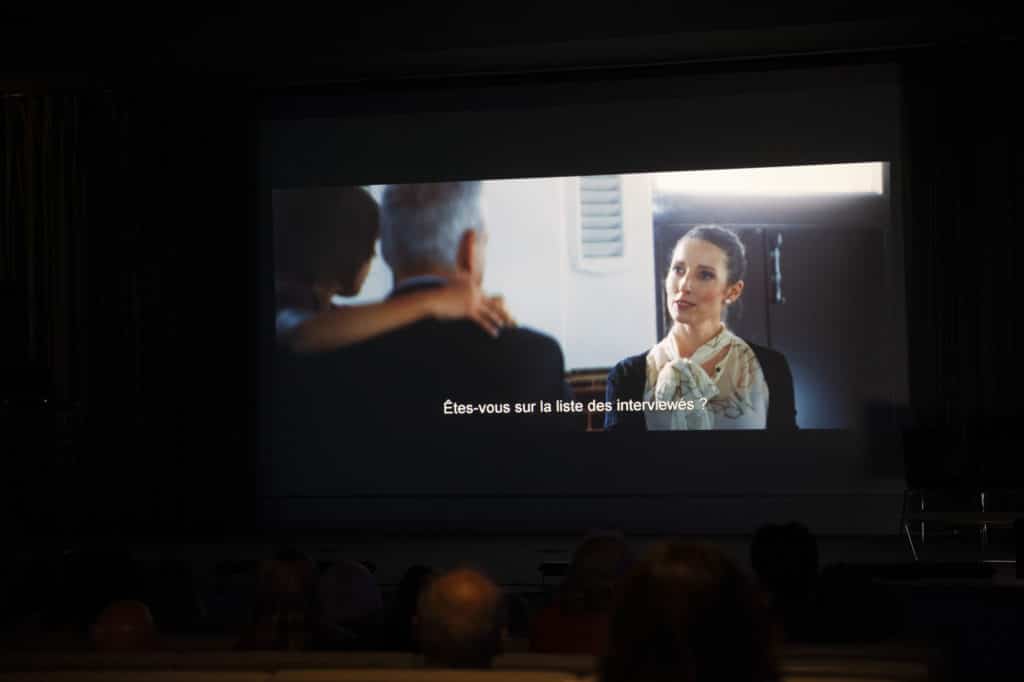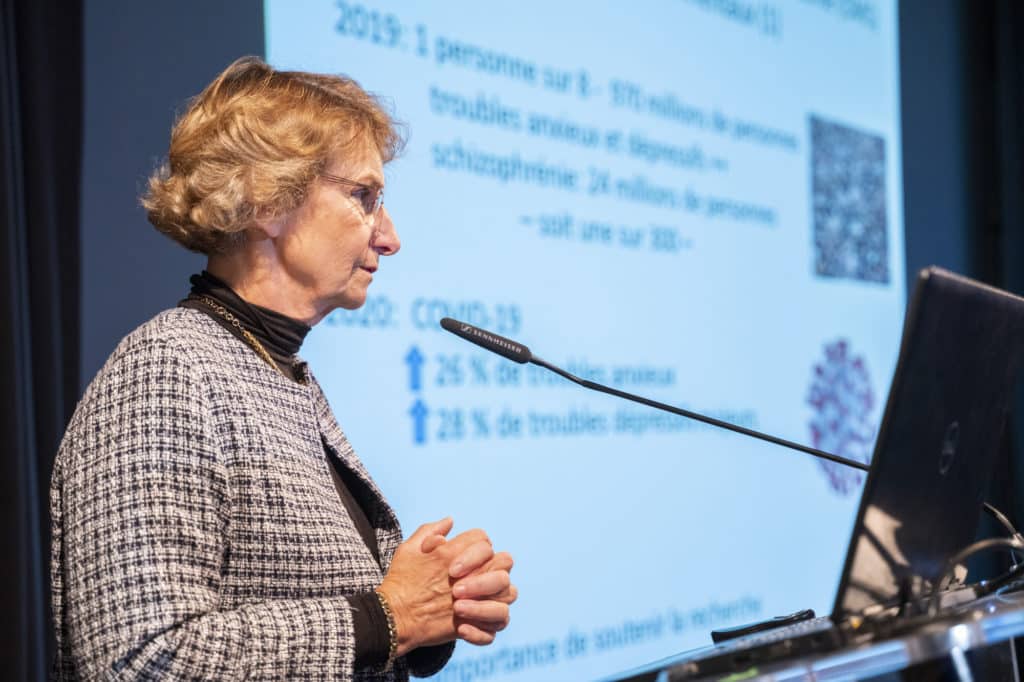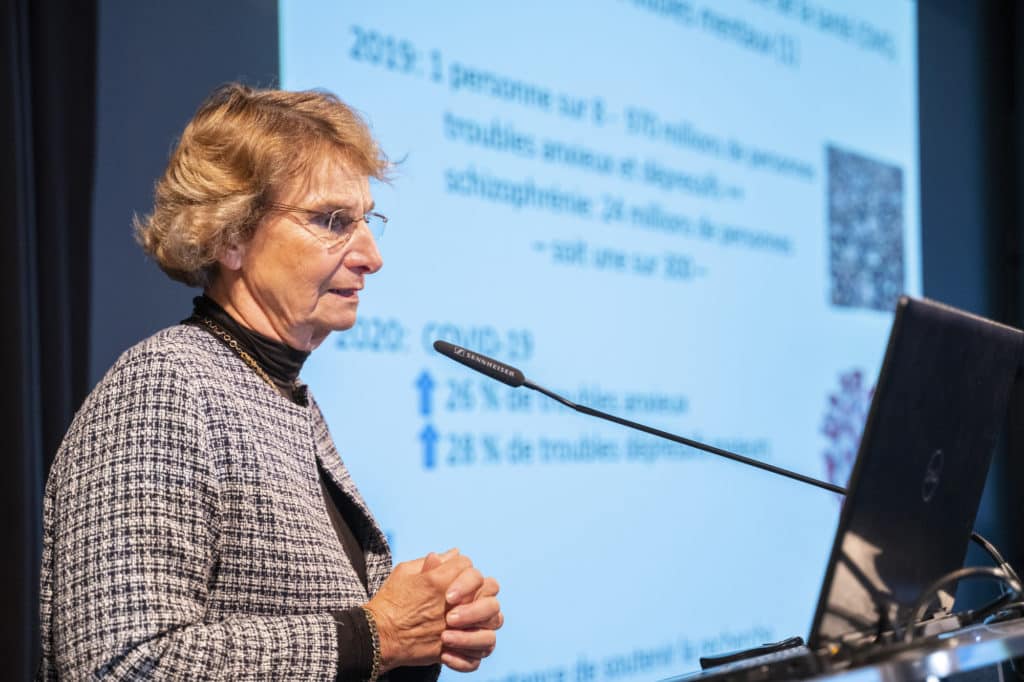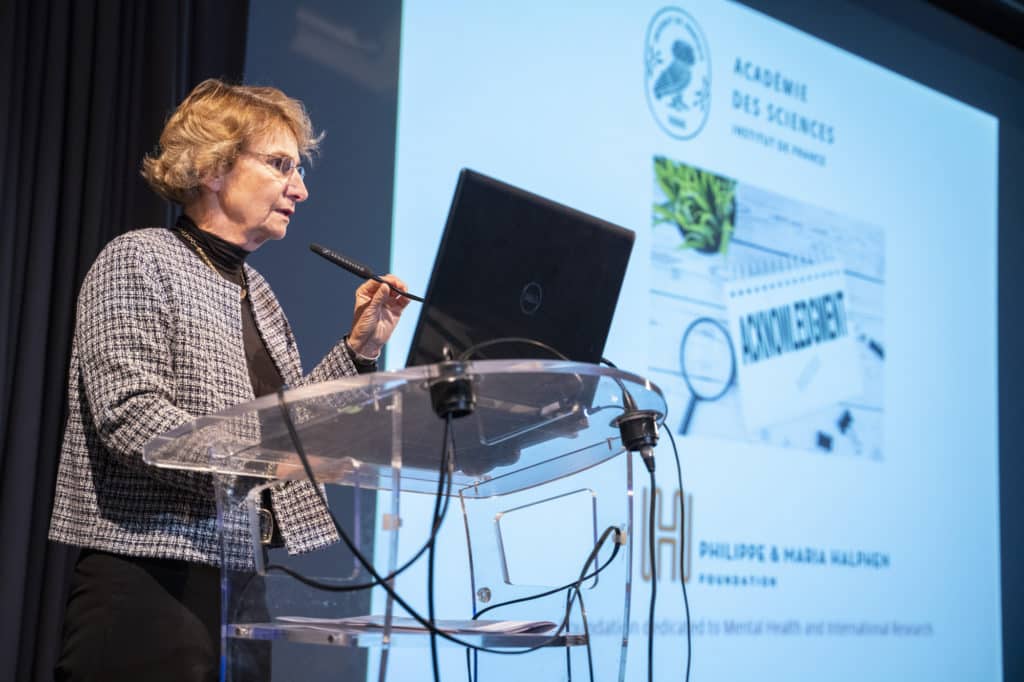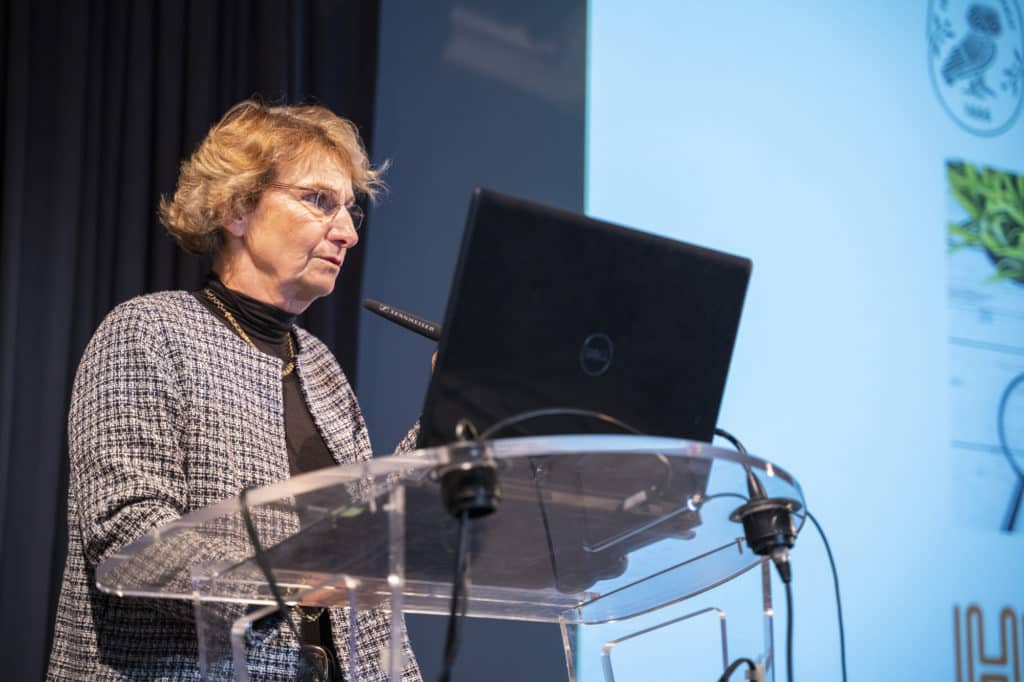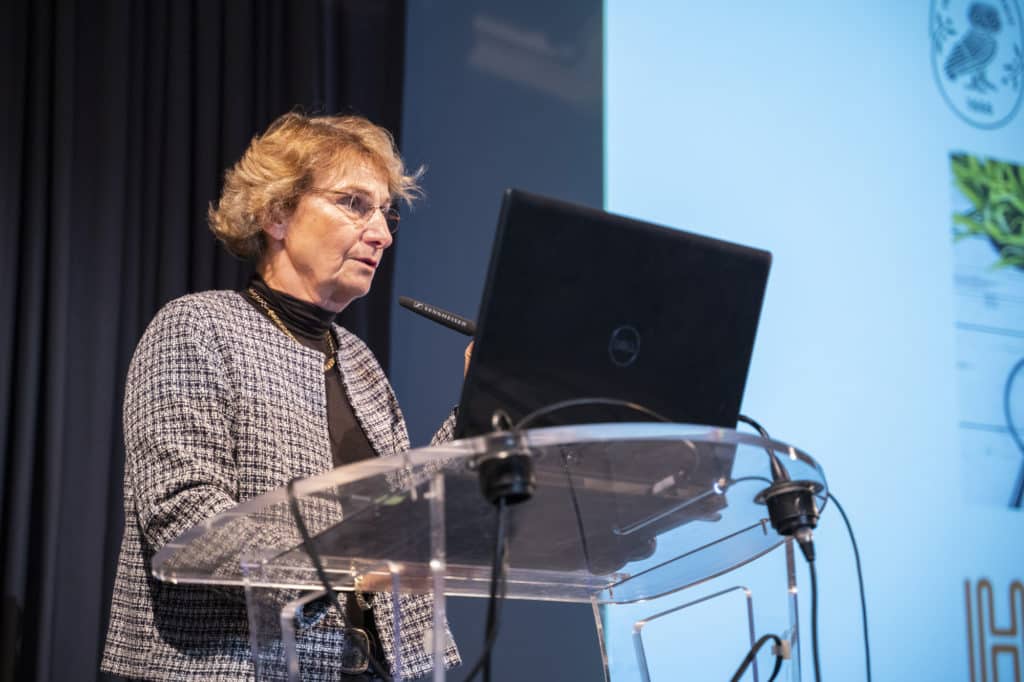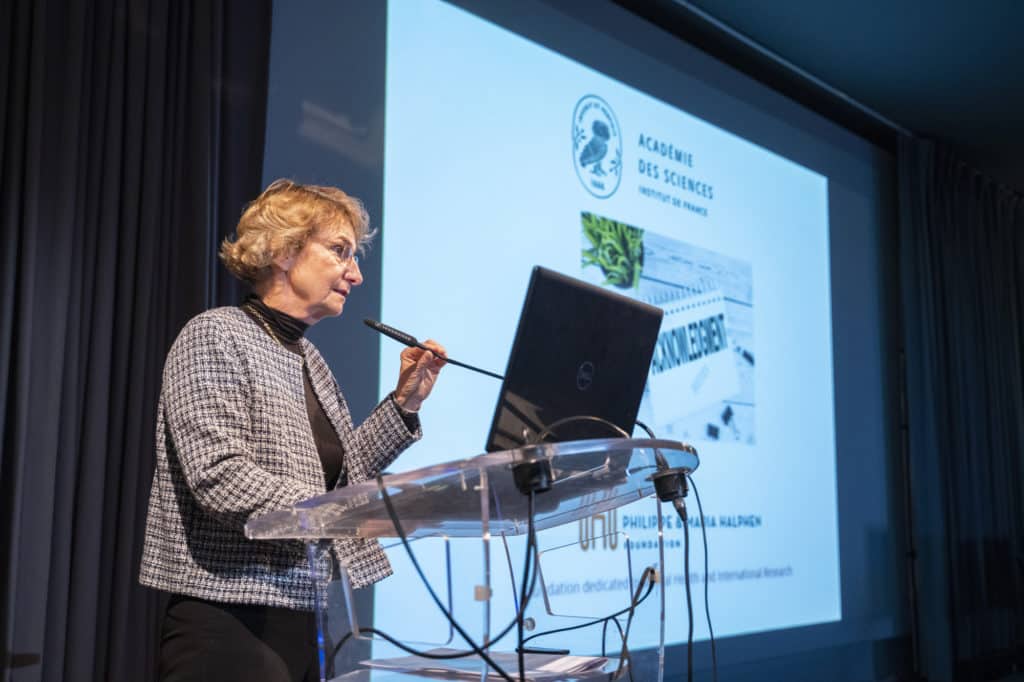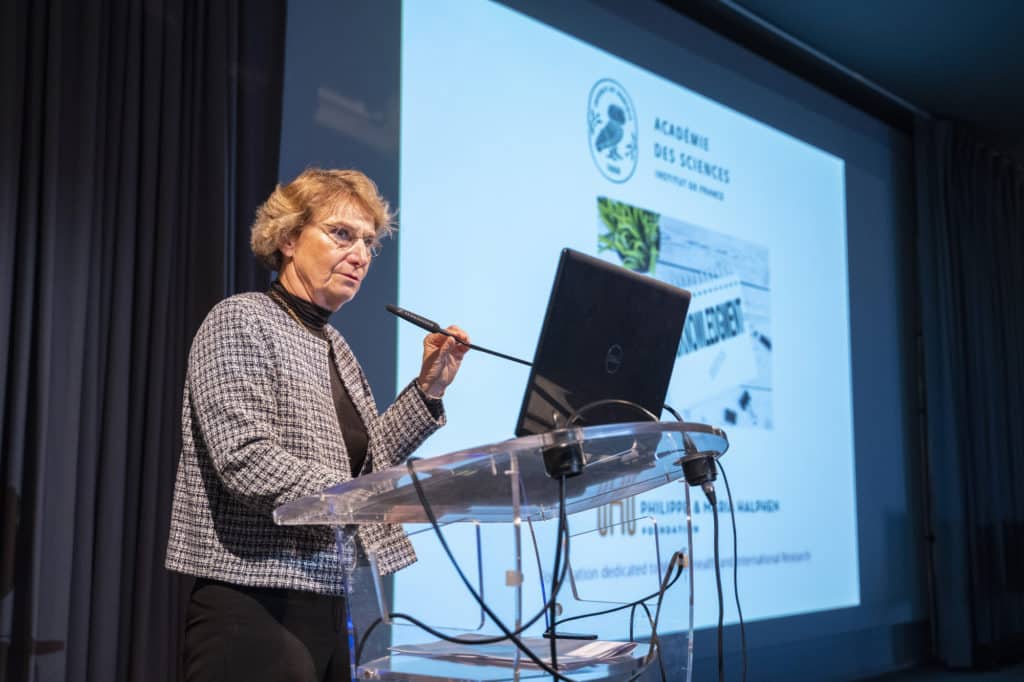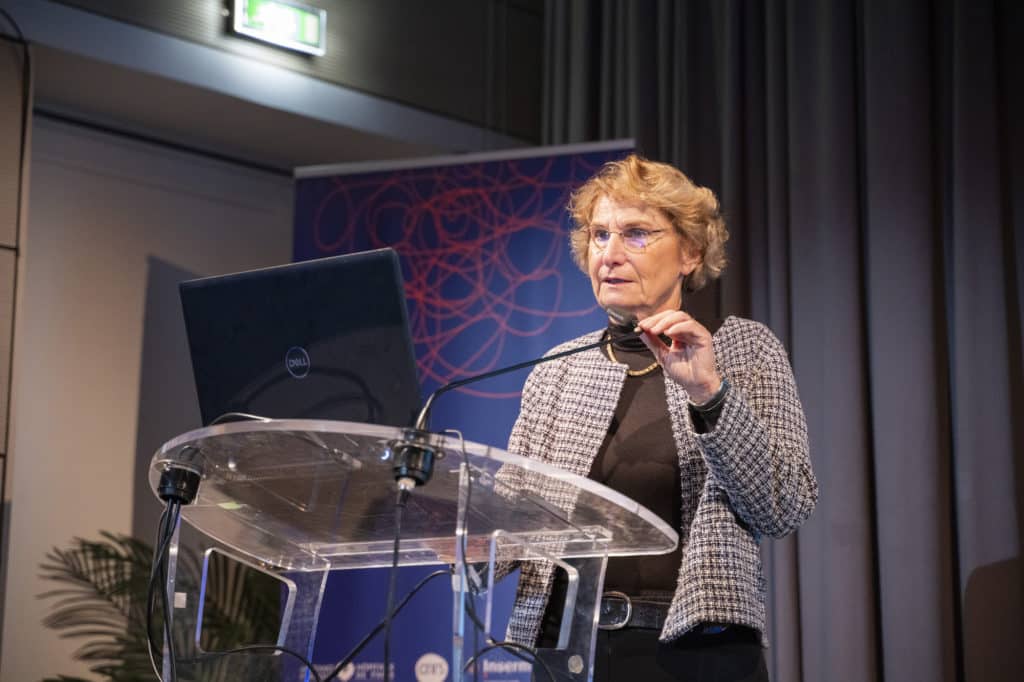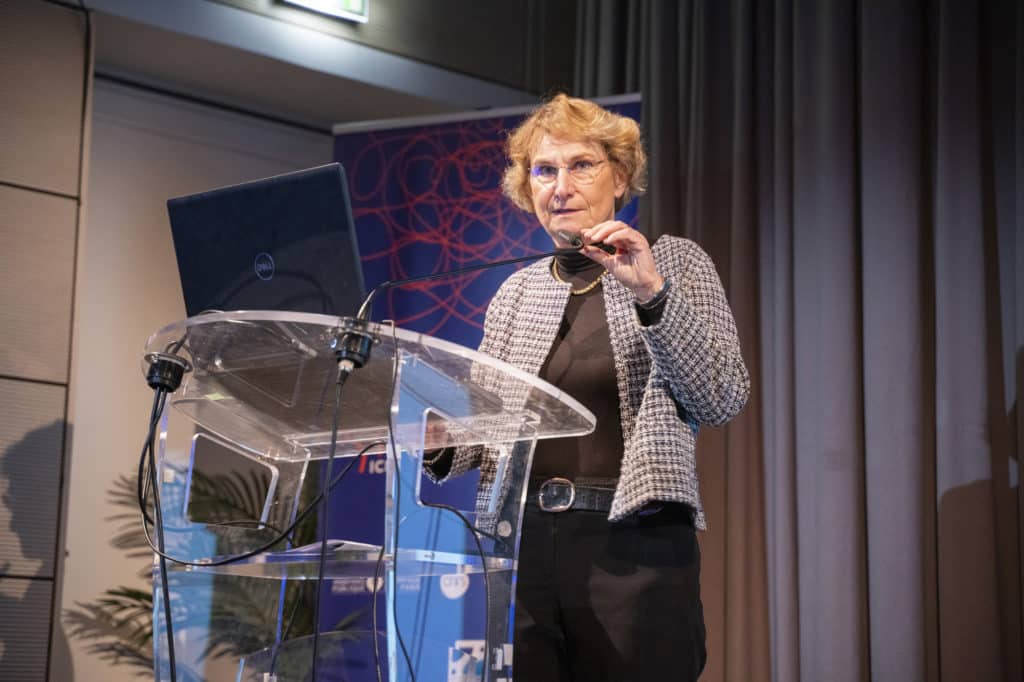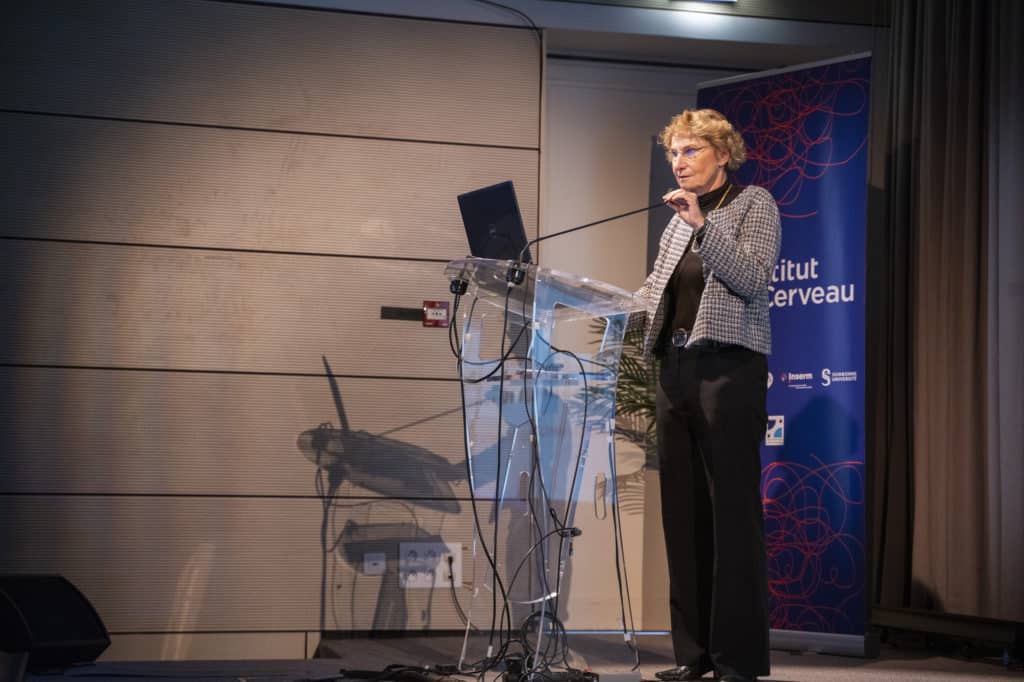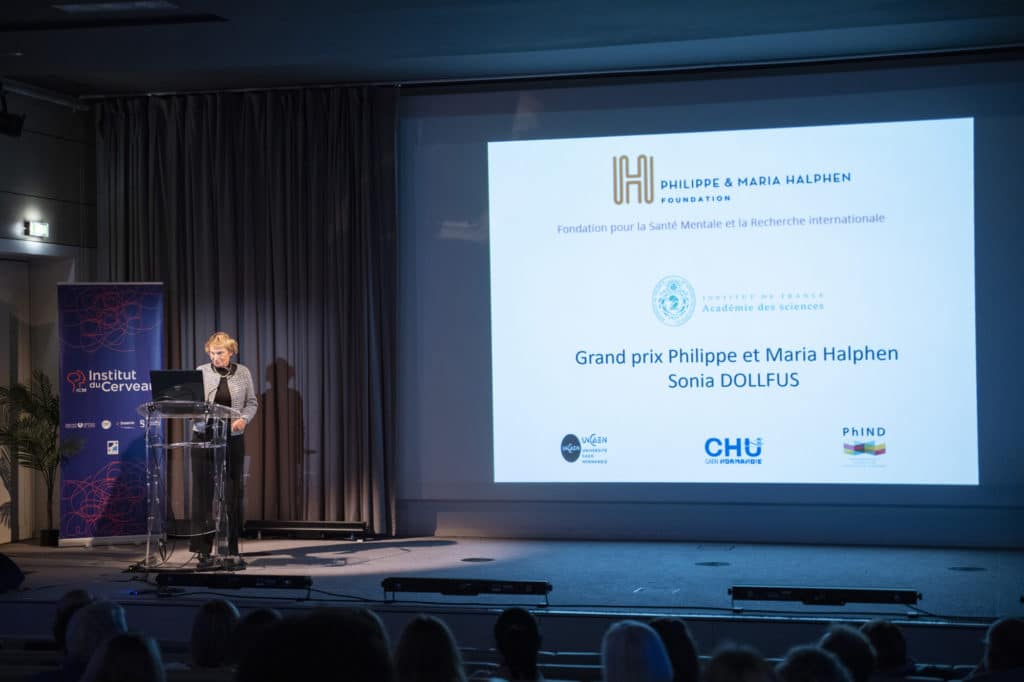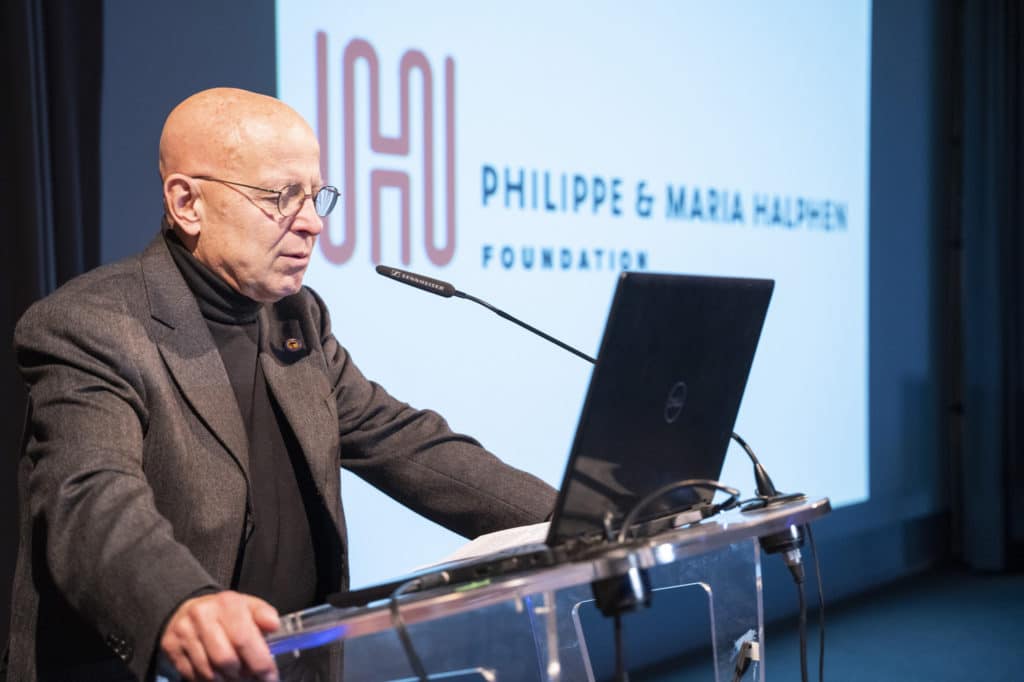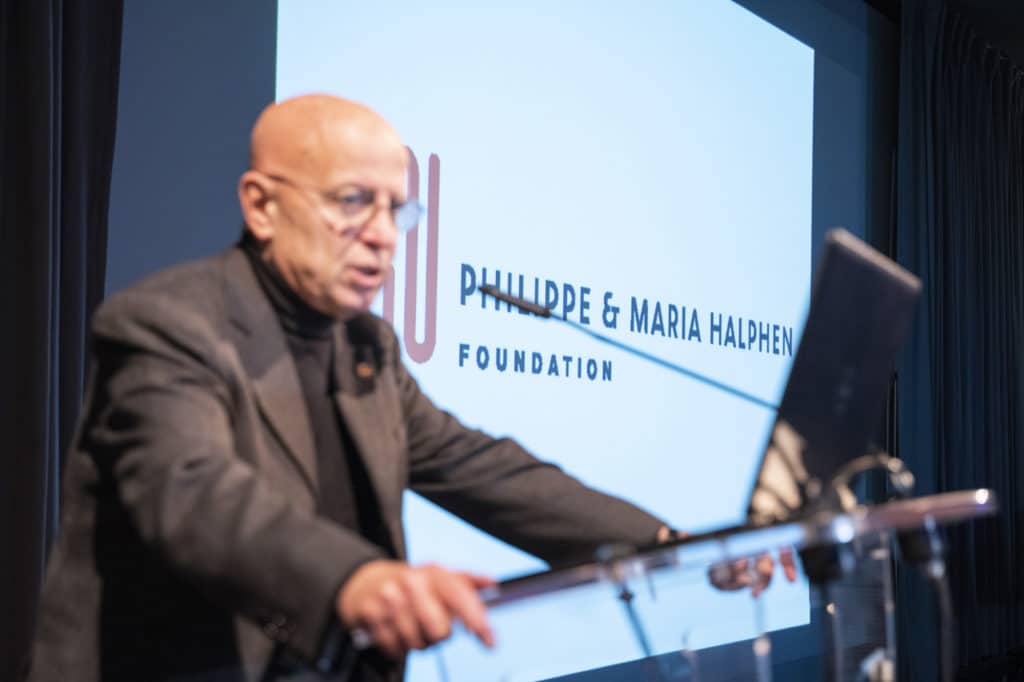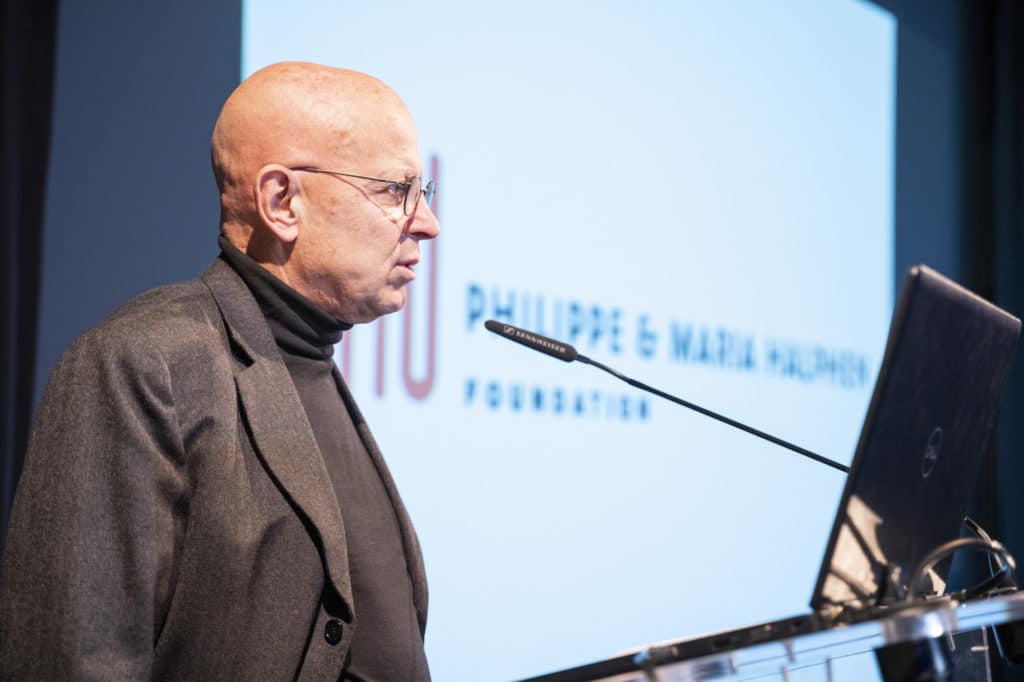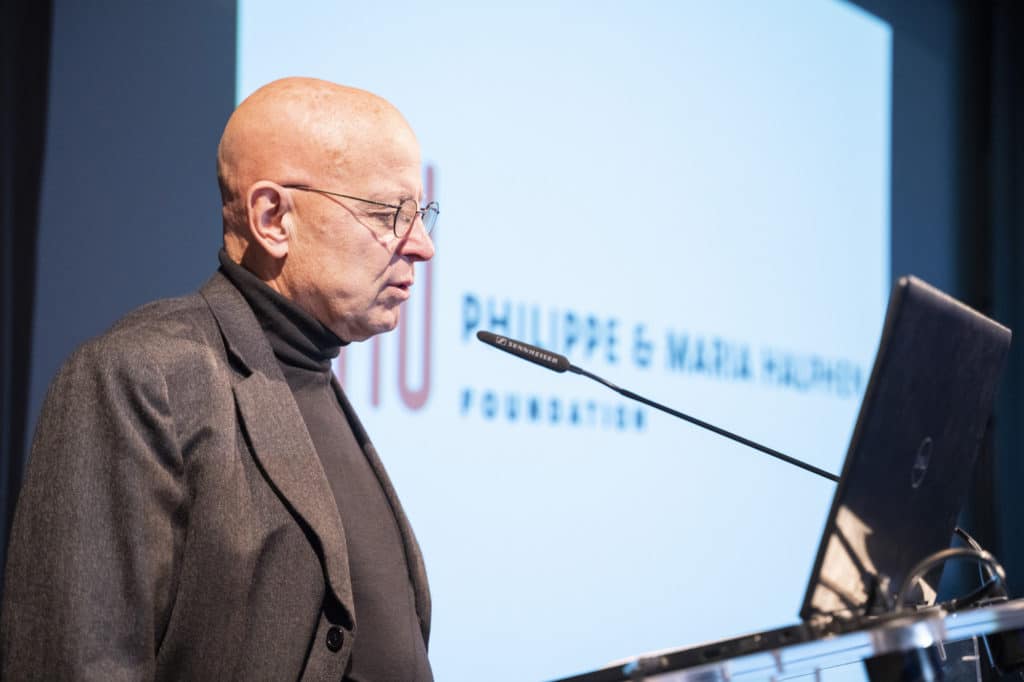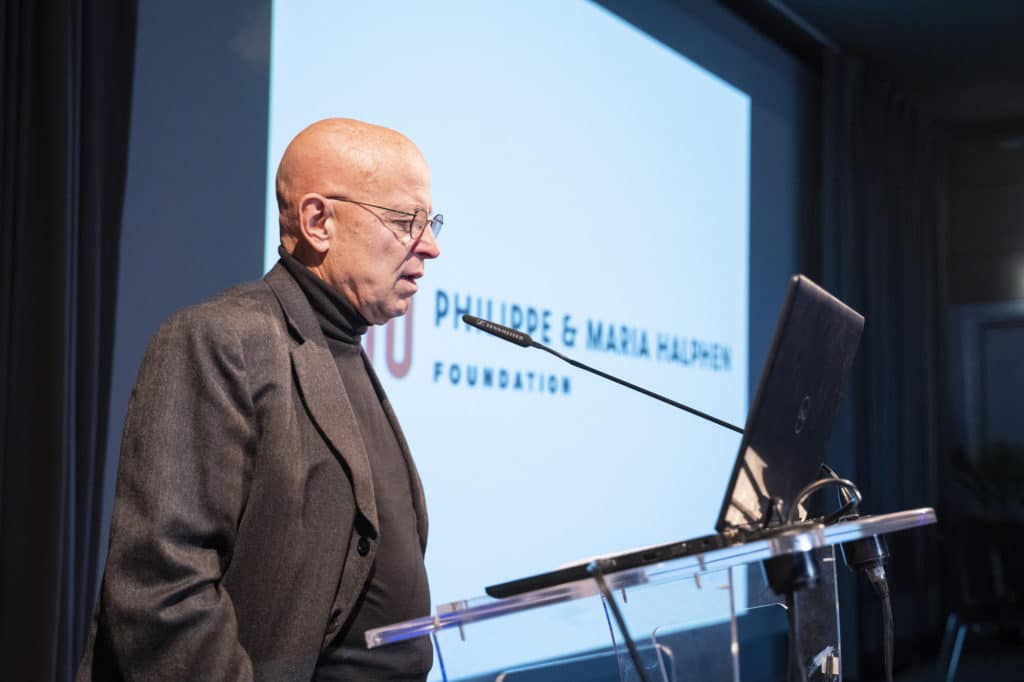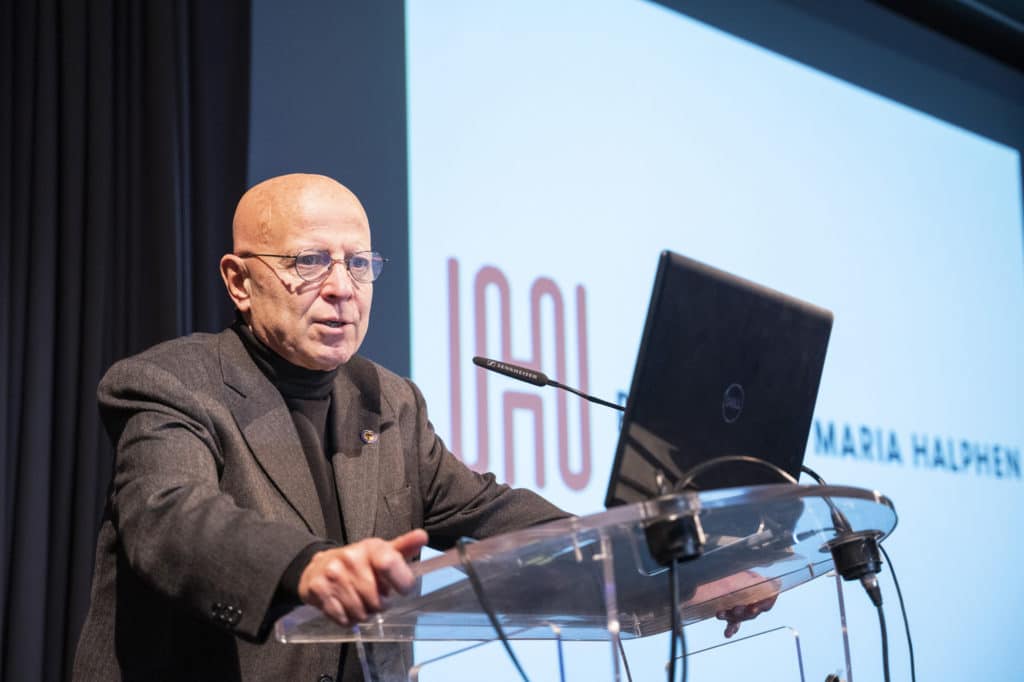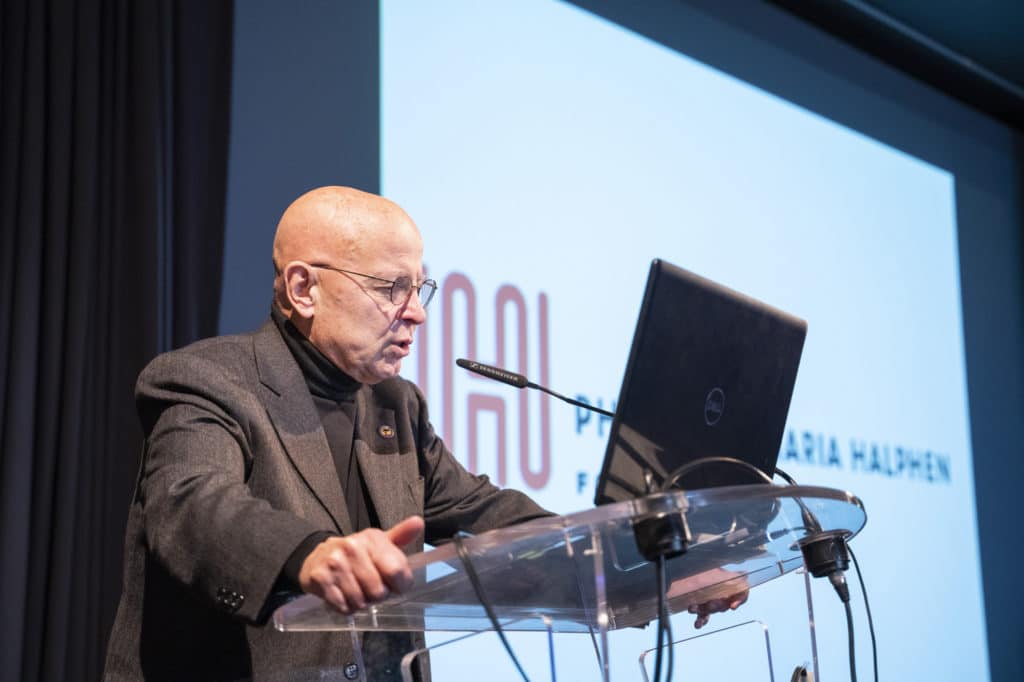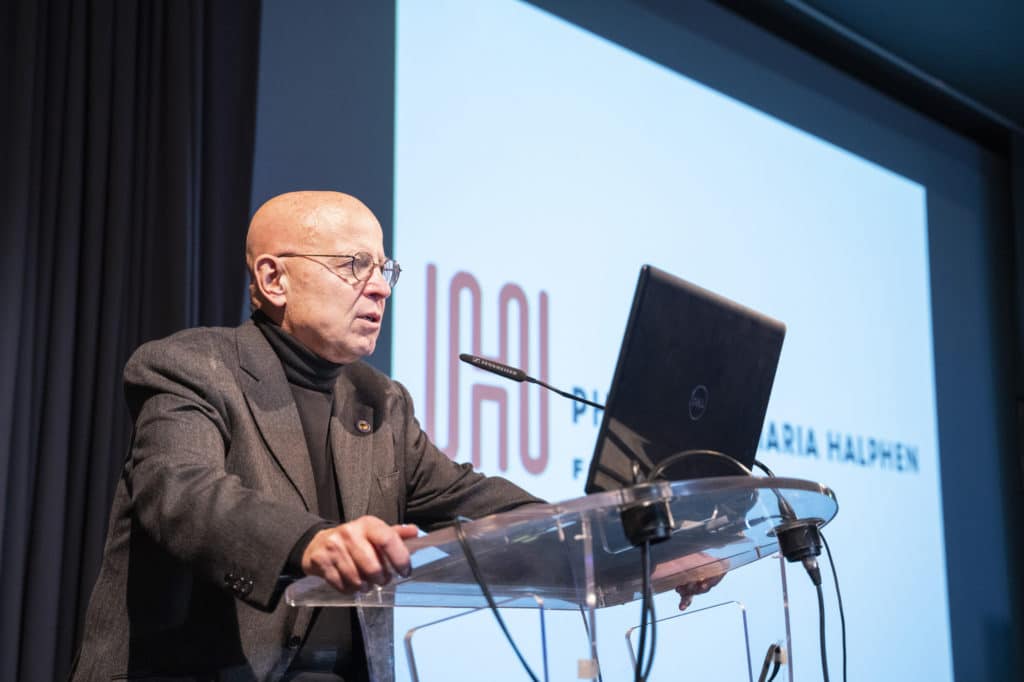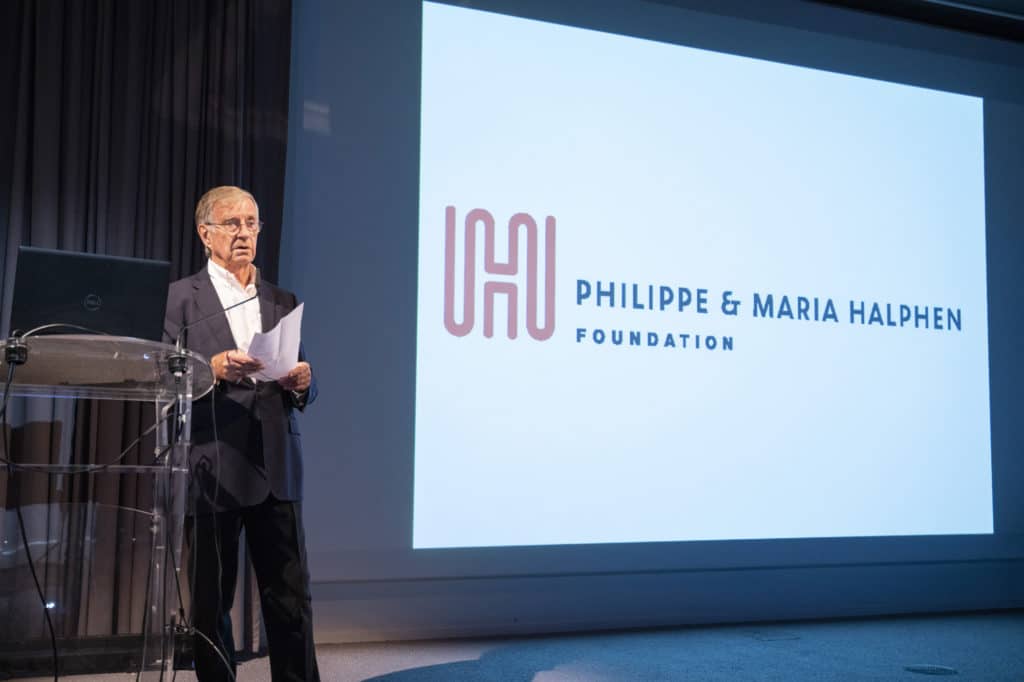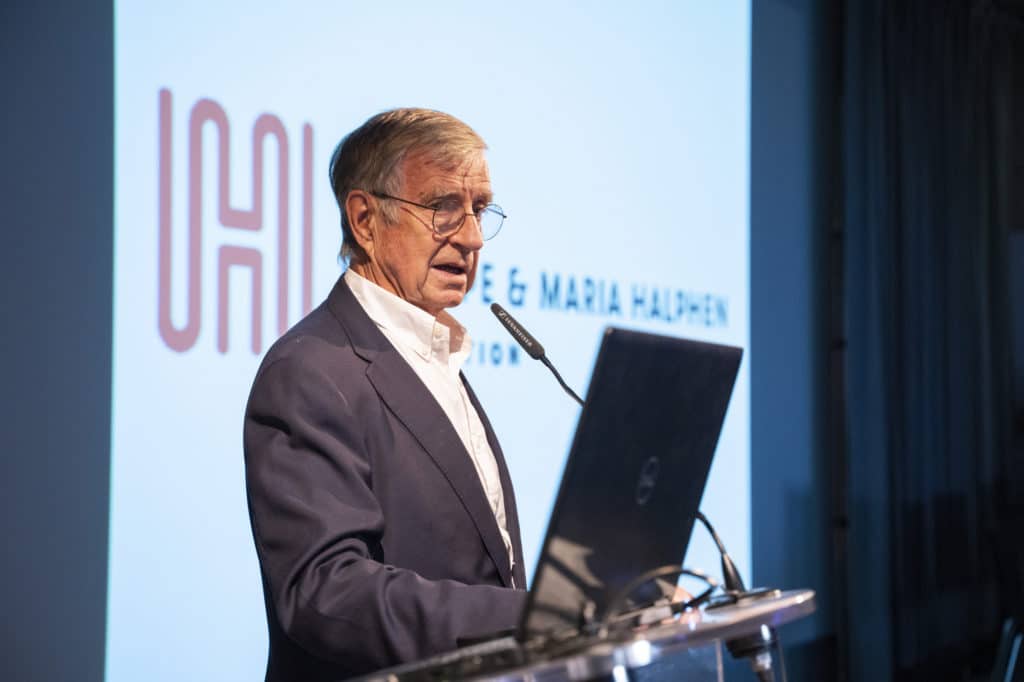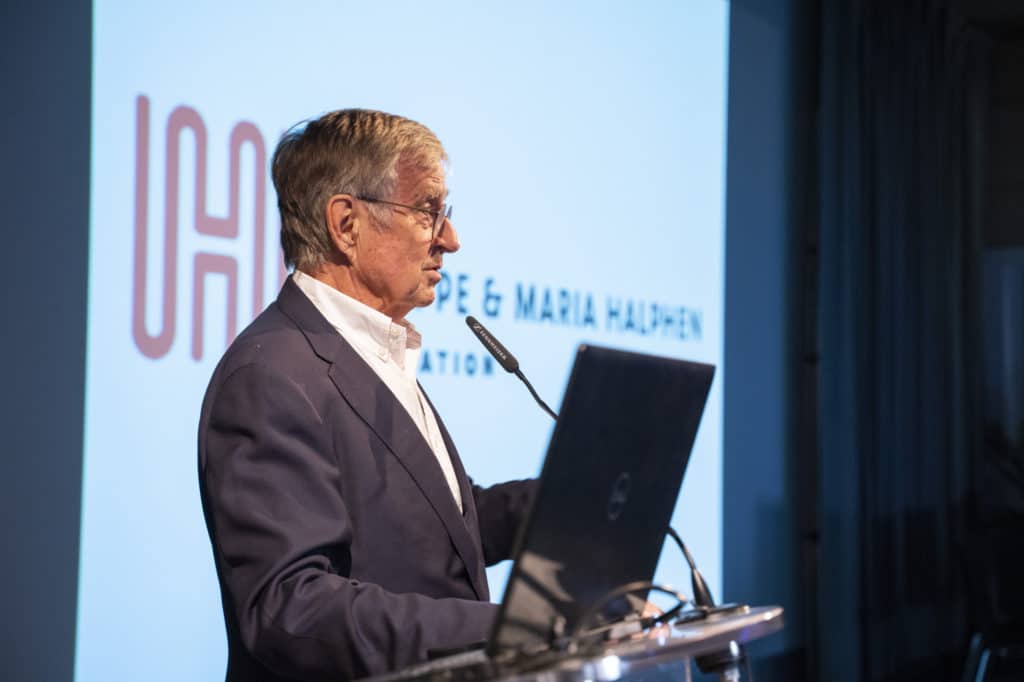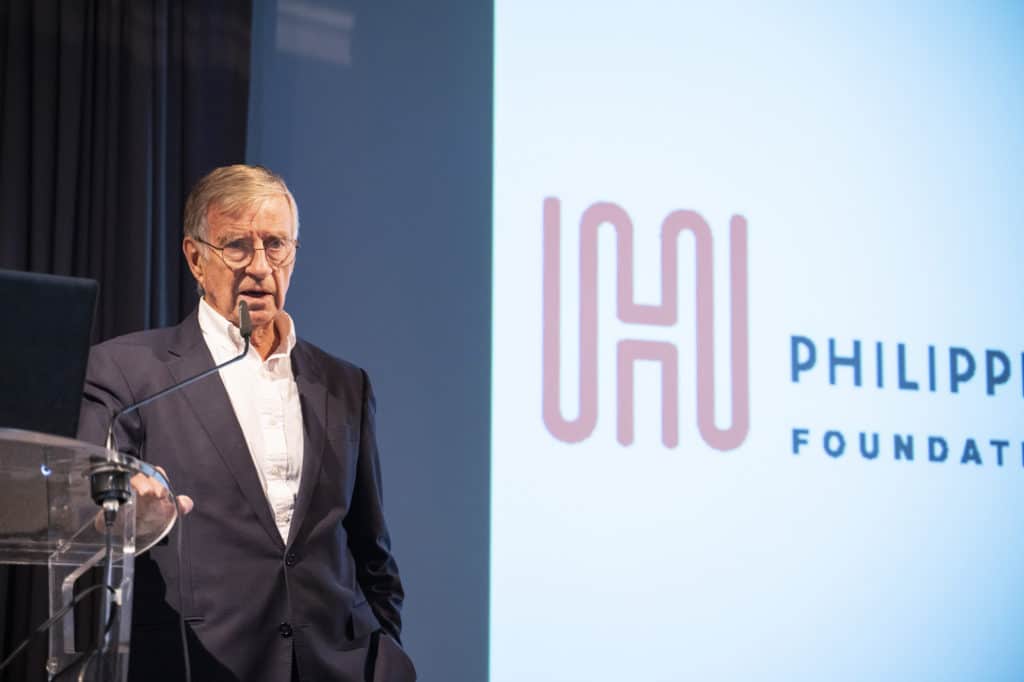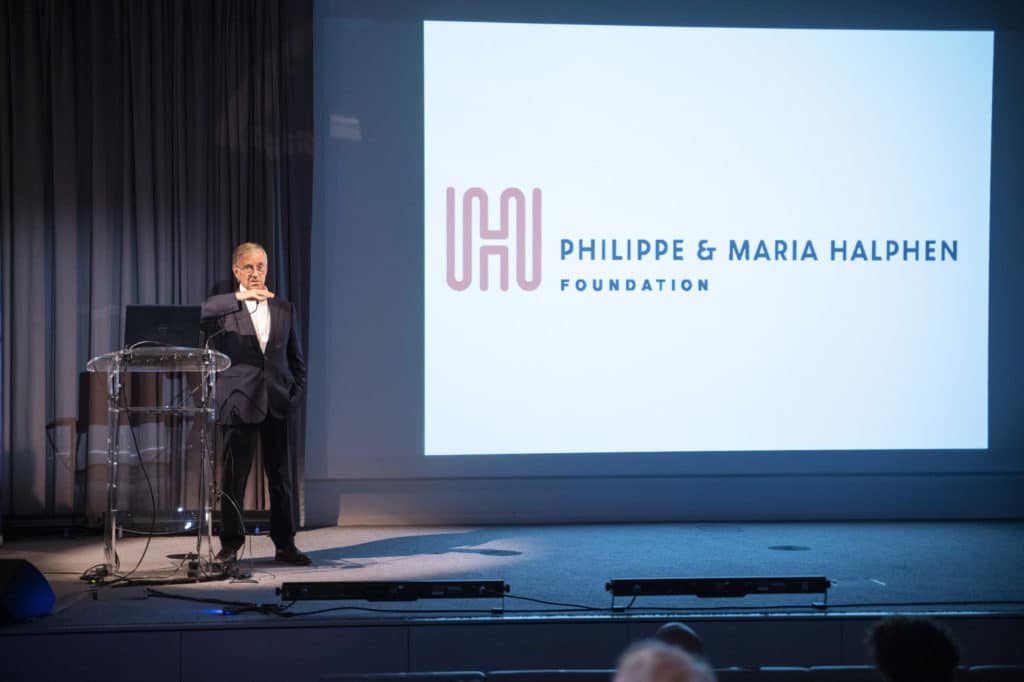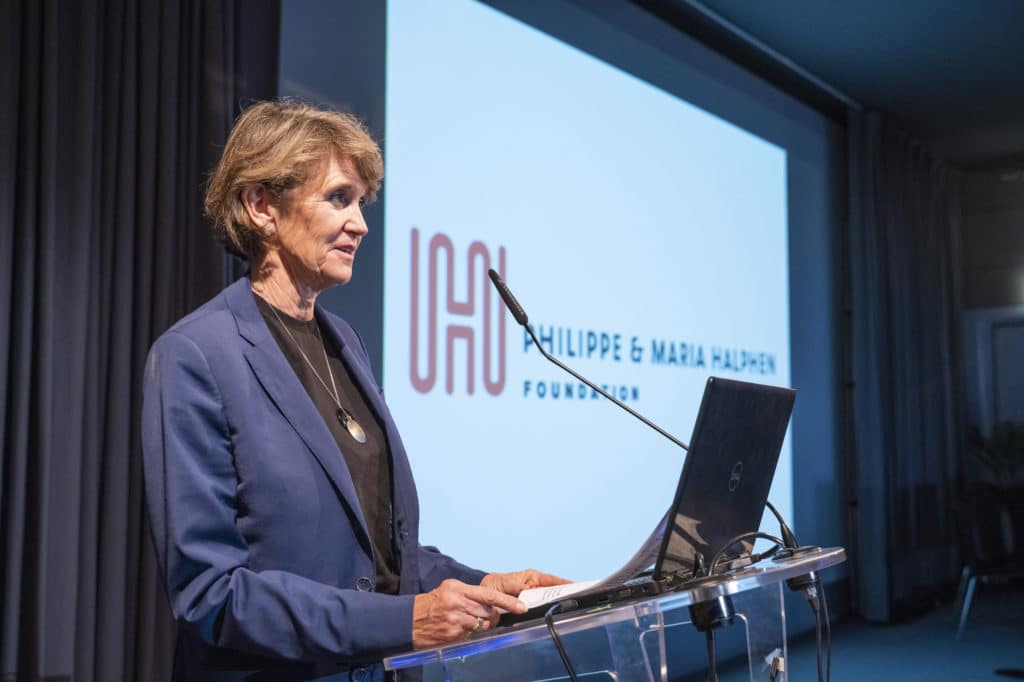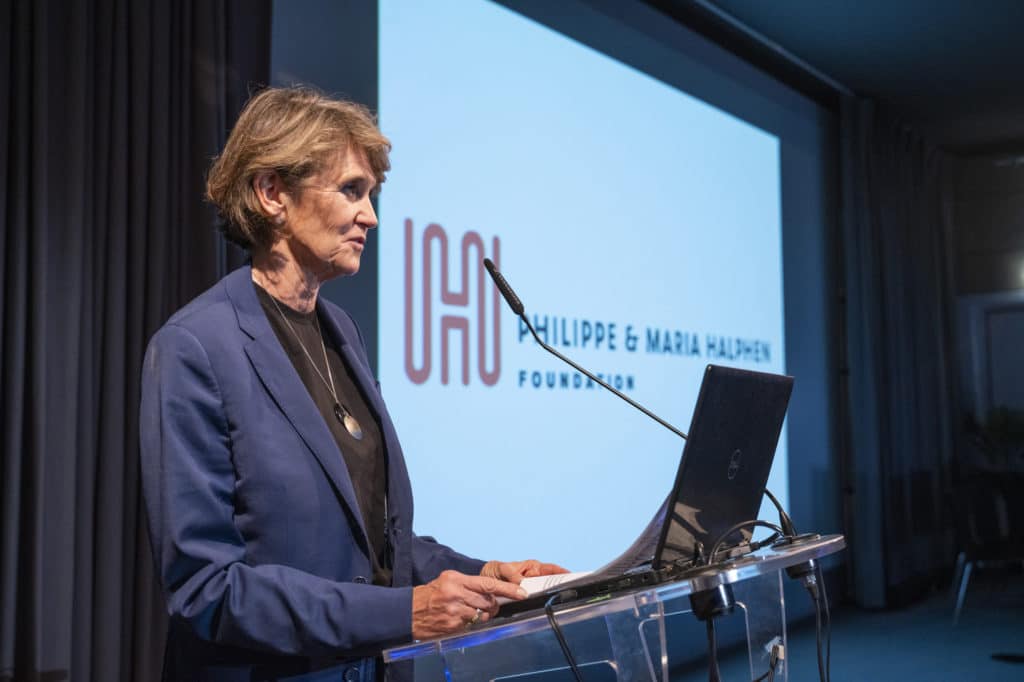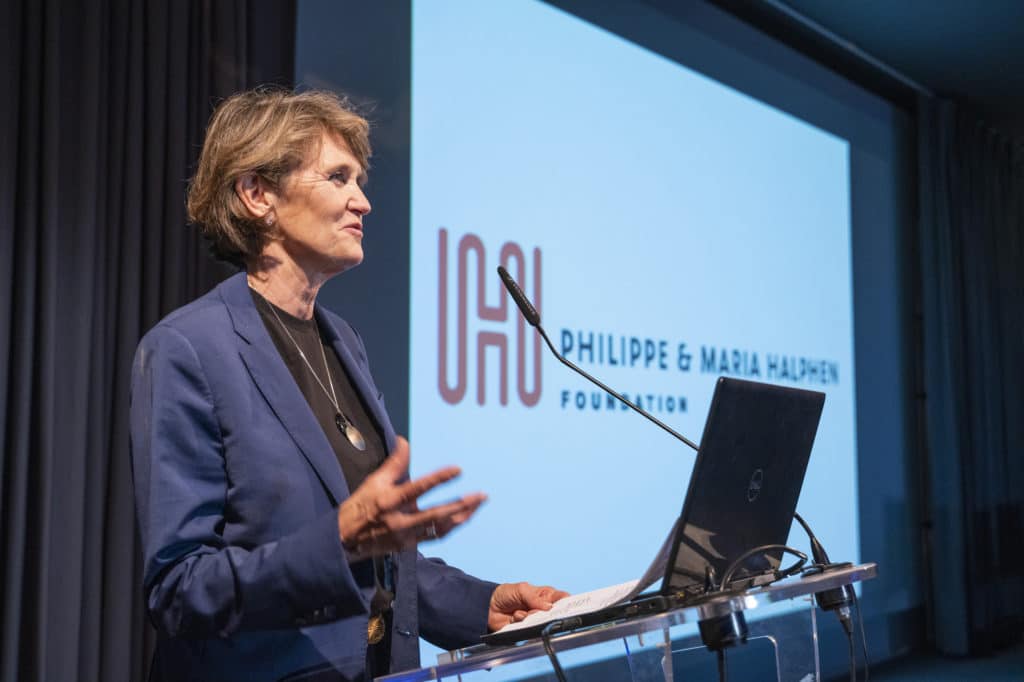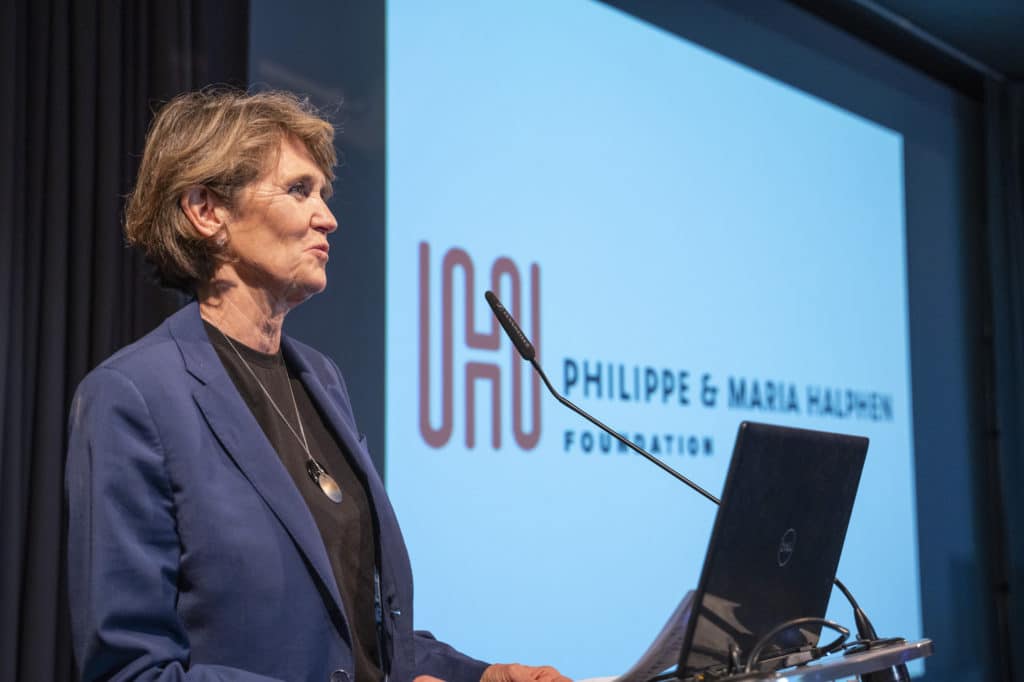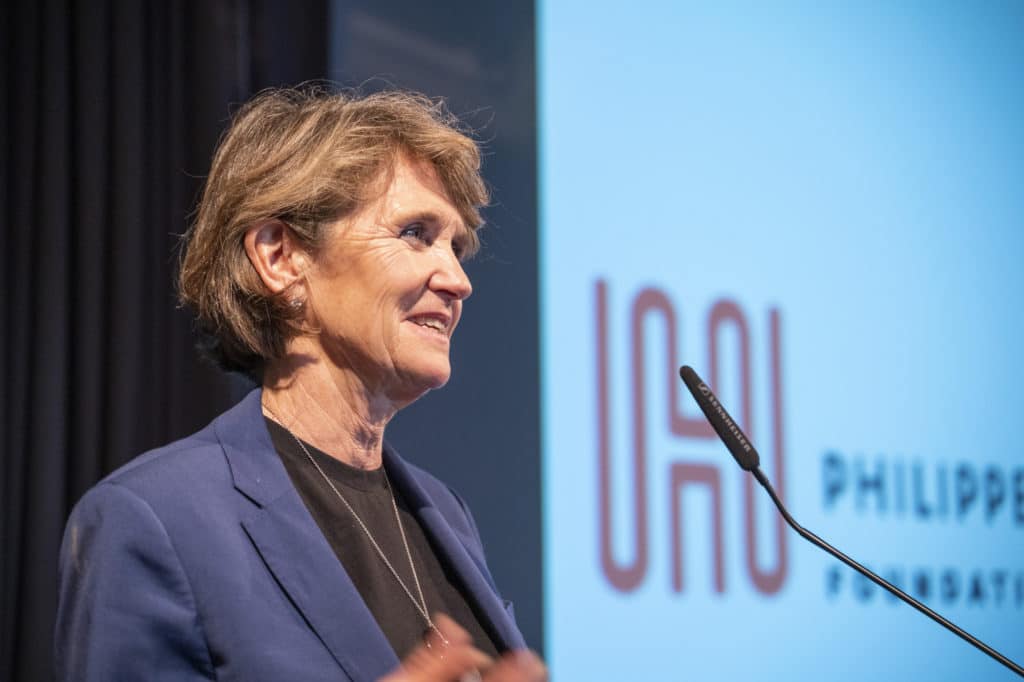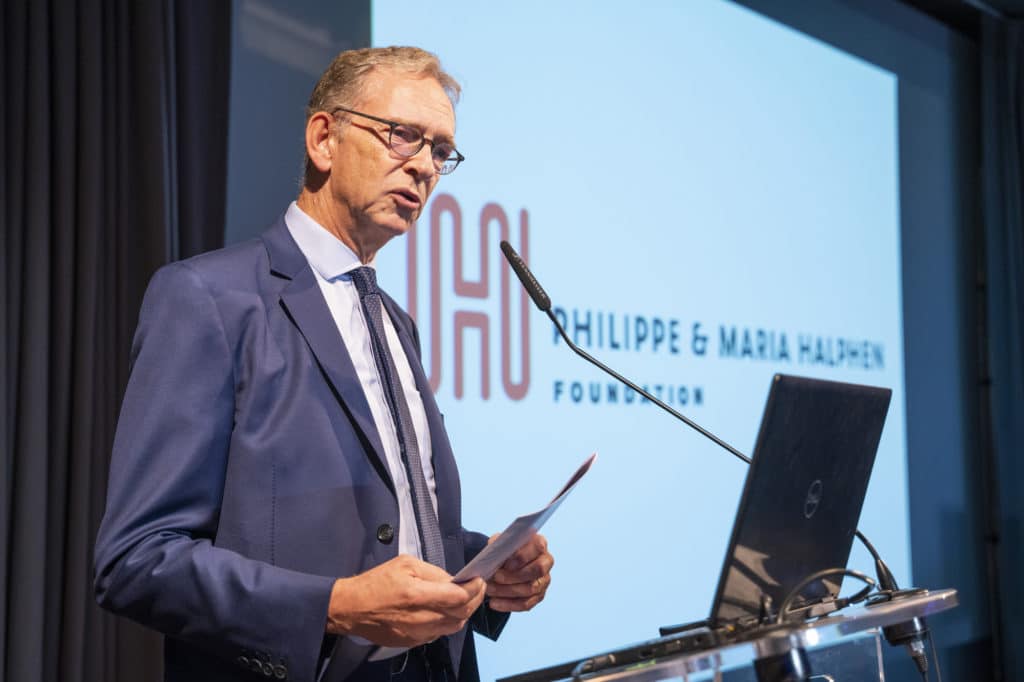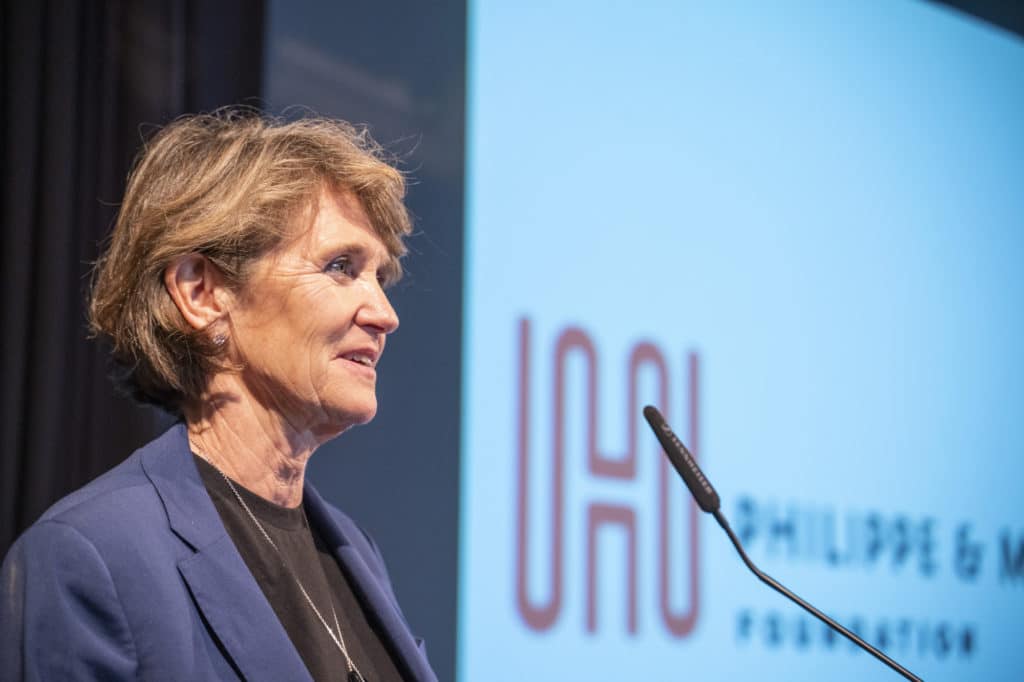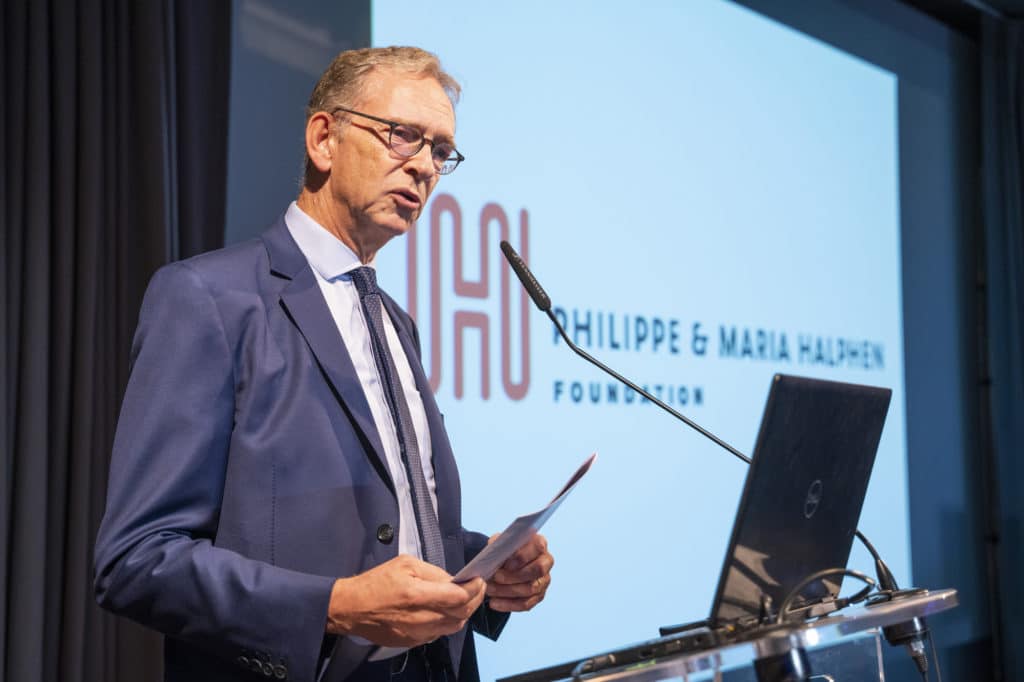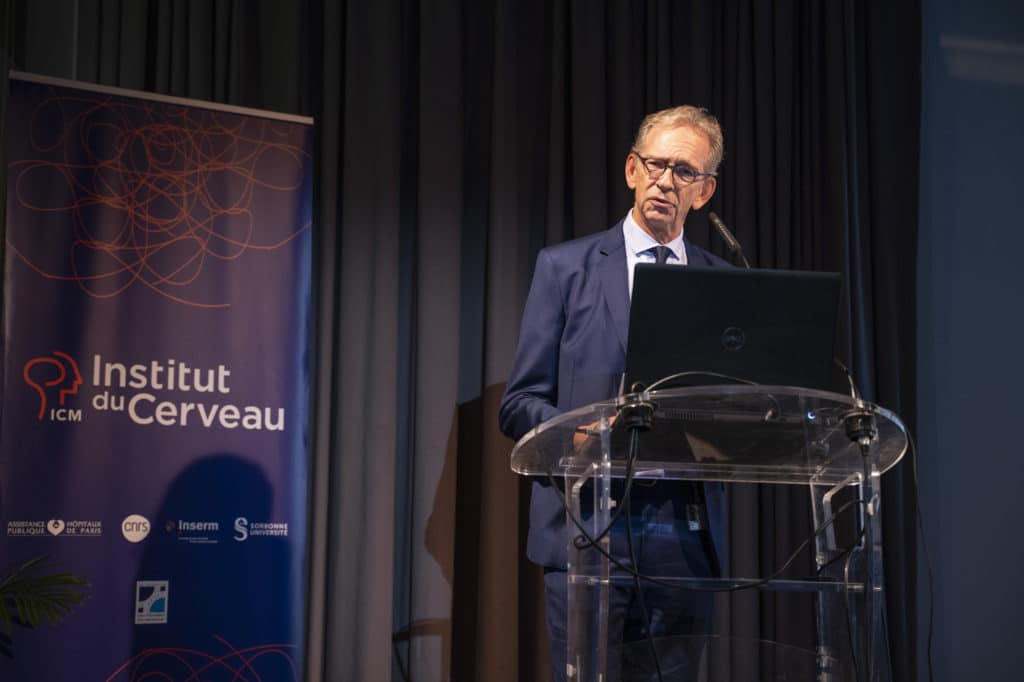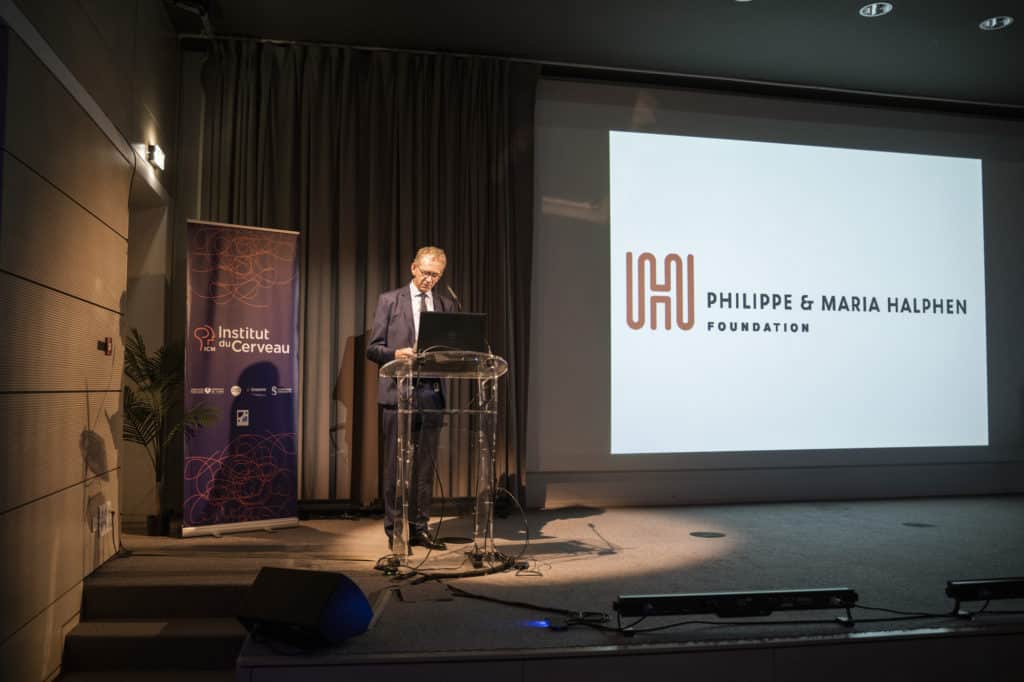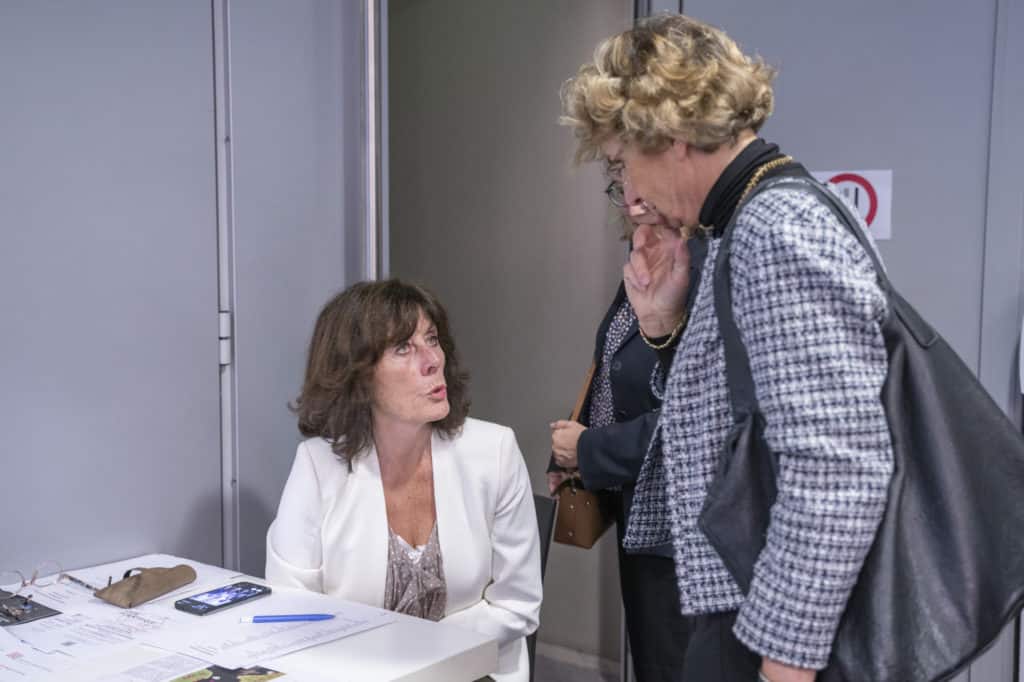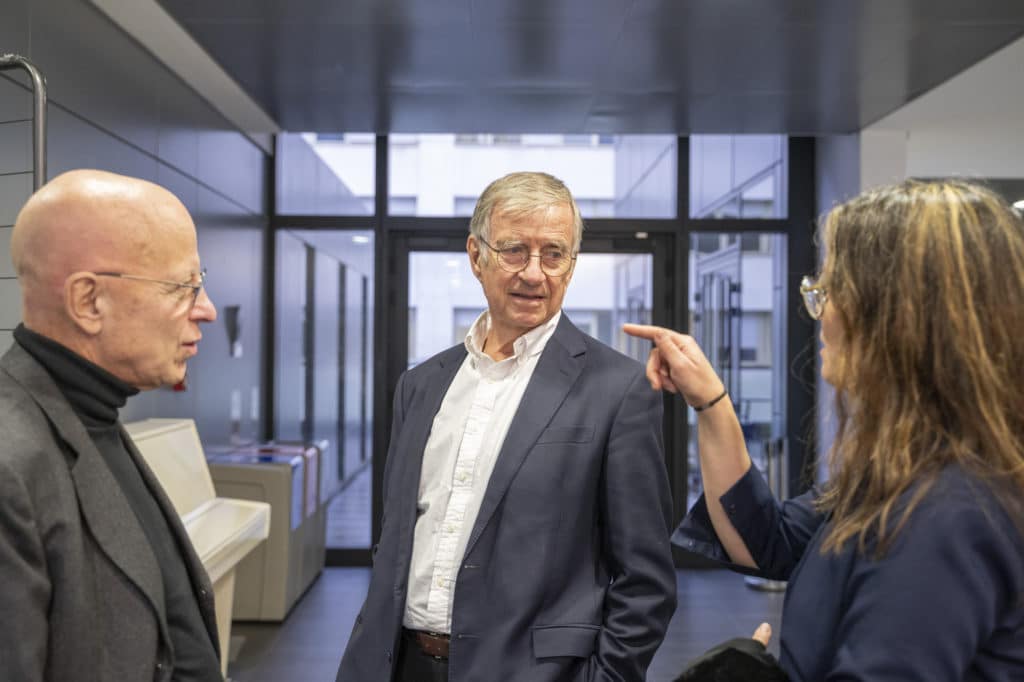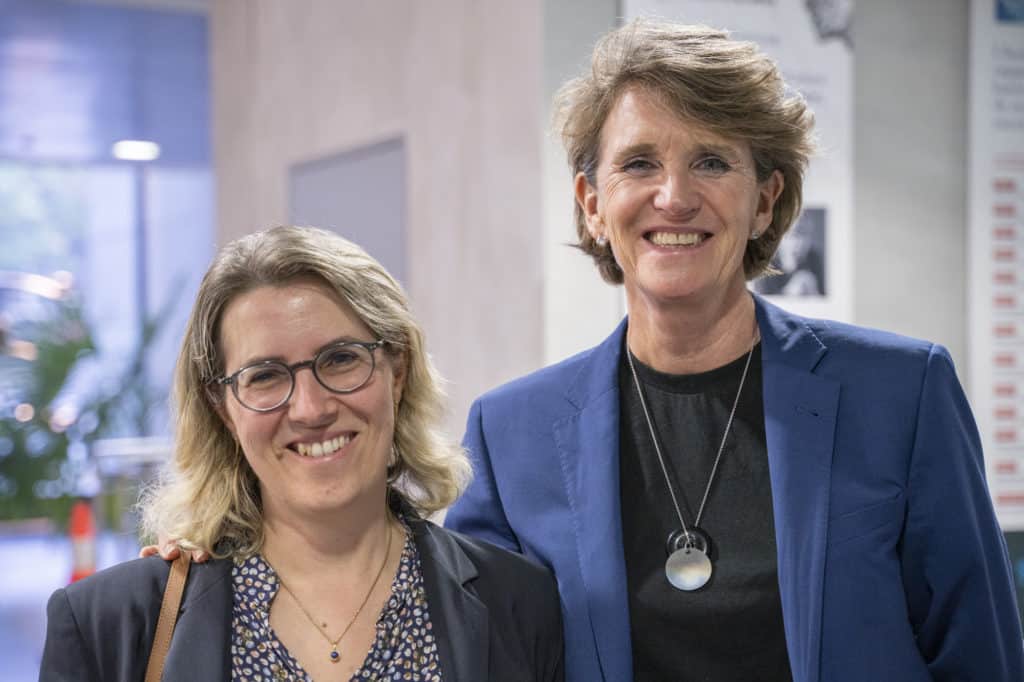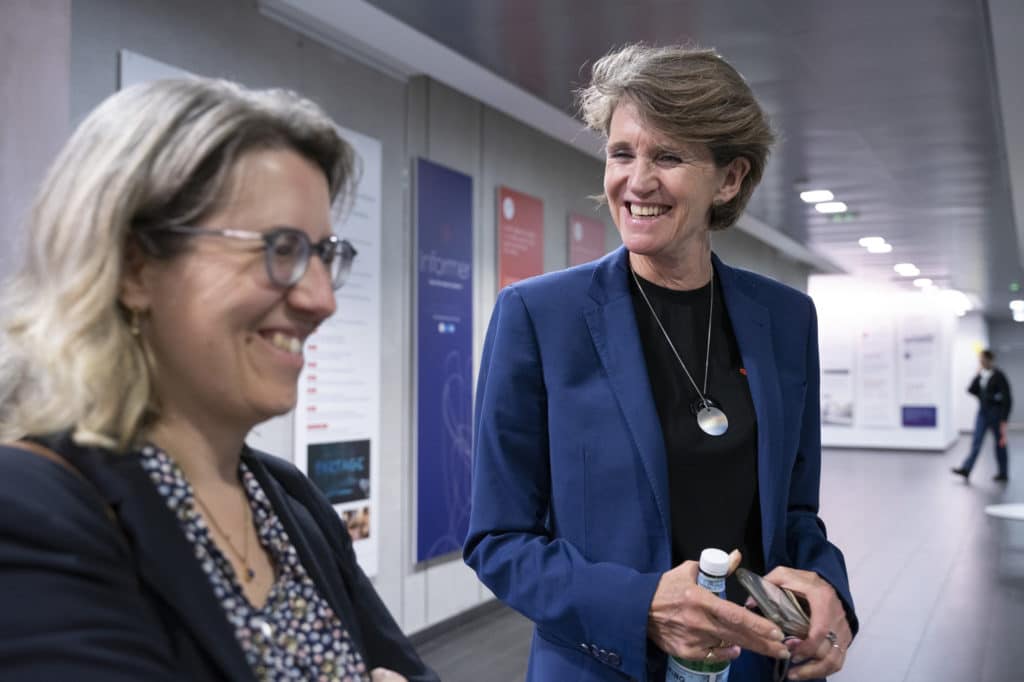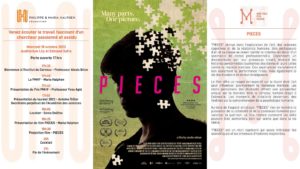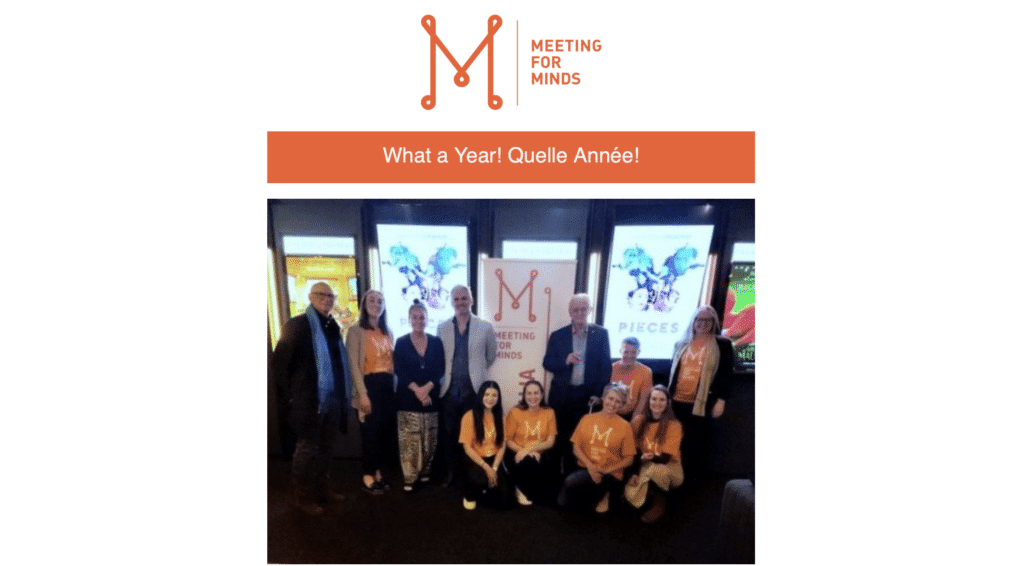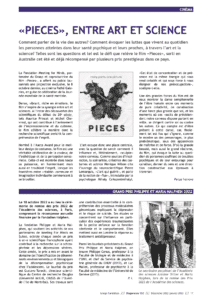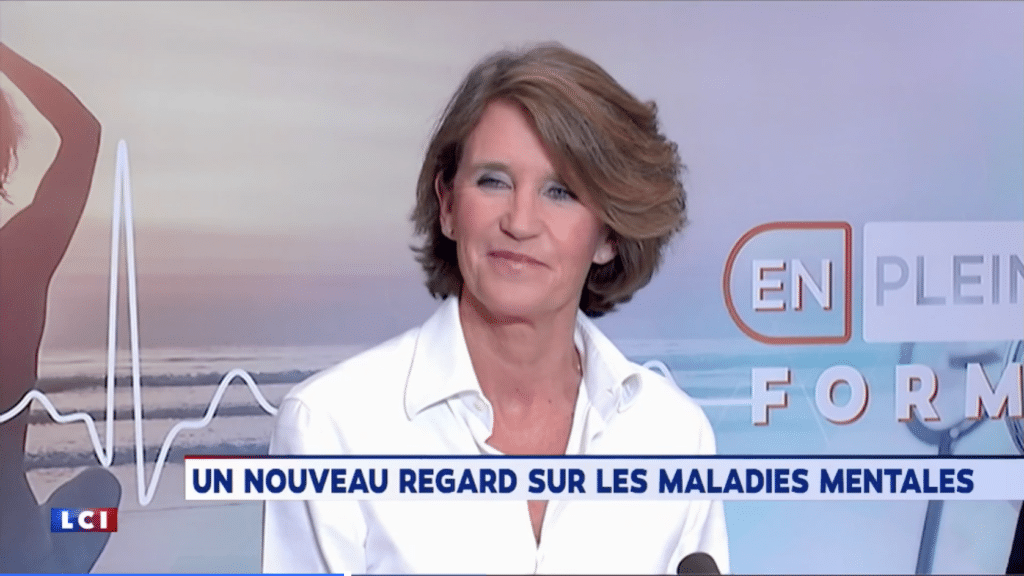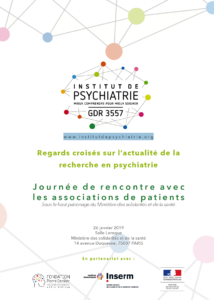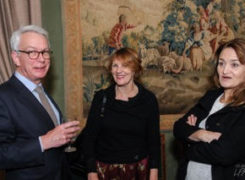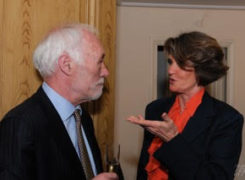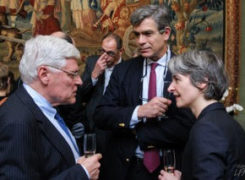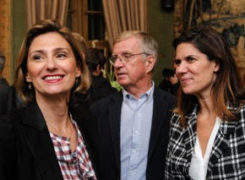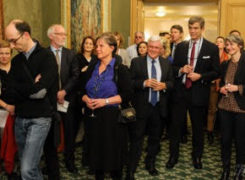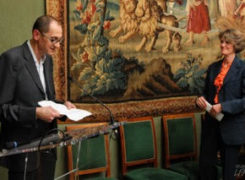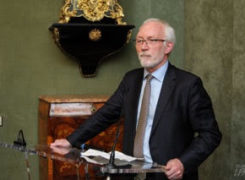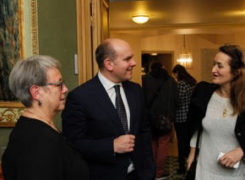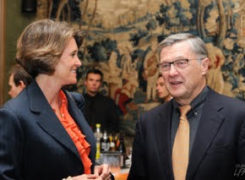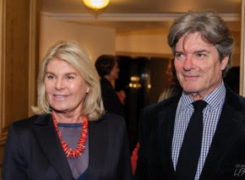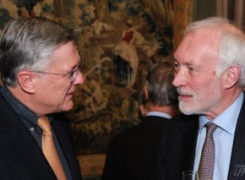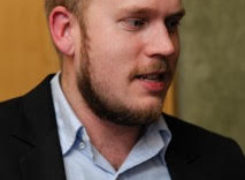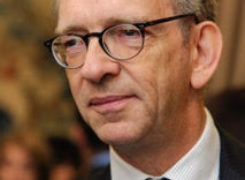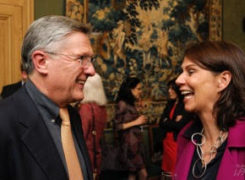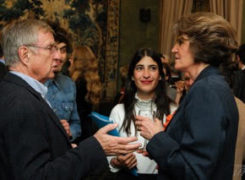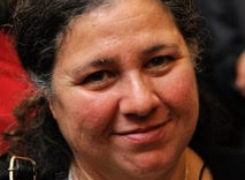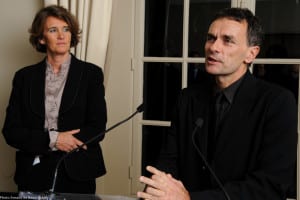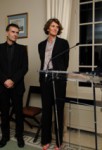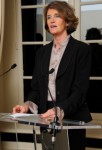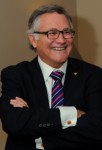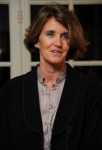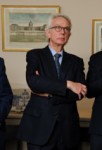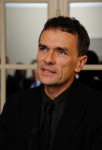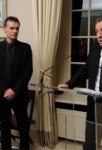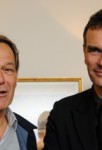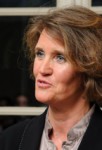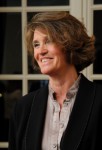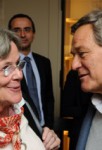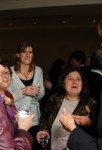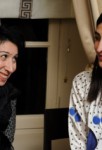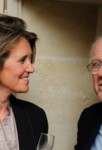News
Screening of Pieces – 6:30PM
Limited seating, free entry upon registration mbleuse@pmhalphenfoundation.org
The 2022 Halphen Prize ceremony took place at the Elysée Lincoln cinema in Paris during the screening of the film PIECES. On this occasion Mathias Pessiglione, 2020 laureate, presented his work on motivational disorders and Gustavo Turecki, 2022 laureate, on clinical and epidemiological research.
The evening brought together research and People with Lived EXperience of mental illness (PLEX) through art.
Journal Diagonales December 2022-January 2023, Graap-Foundation
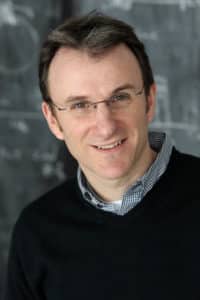
2022 – Gustavo TURECKI
Professor at McGill University in Montreal. Scientific Director, Douglas Institute Research Centre, Chief of Psychiatry, CIUSSS de l’Ouest-de-l’Île-de- Montréal
Canada Research Chair in Major Depressive Disorder and Suicide
Dr. Turecki’s work integrates diverse approaches, including basic research, clinical research and epidemiological research to help us better understand suicide risk and its severe psychopathologies in children and adolescents, such as psychosis or severe depression.
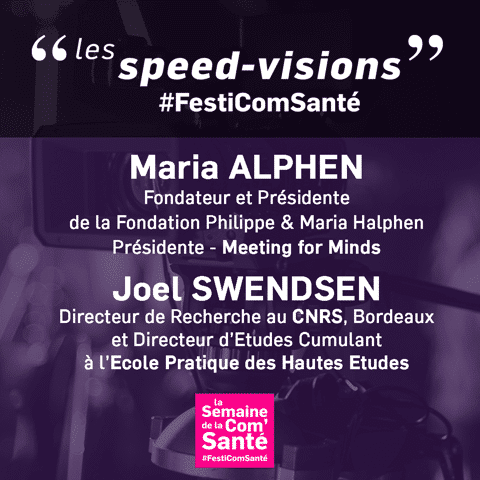
Friday at 11:15 am (French time) la Semaine de la Com’ Santé en direct will open the day by Eric Phélippeau, Vice-President of the Festival, and Dominique NOEL, introducing the presentation by Maria Halphen and Joel Swendsen..
Here is the complete program of the week which is taking place since Monday in remote : https://festivalcommunicationsante.fr/programme-2021/
To connect use the link below, everything is broadcast live, directly on the platform, with free access.
From next week, the replays will be available on our platform for one year. The speeches will also be broadcast on our social networks several times in the coming weeks, especially on twitter. We have two accounts in the top 10 of health e-influencers @noeldominique and @festicomsante
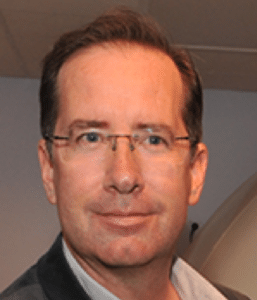
Professor Joel Swendsen, winner of the Maria and Philippe Halphen Prize 2019
“The last three decades have witnessed dramatic changes in the way human beings communicate and access knowledge. Thanks to advances in mobile technologies, a significant portion of the world’s population can now be contacted at any time, anywhere, and instantly acquire information on almost any topic imaginable. This revolution has offered the promise of new services and ways to improve our health and quality of life; it is an opportunity that has also been fully understood by smartphone application developers. A recent study reveals that over 300,000 health-related apps are currently available on the Apple App Store and Google Play platforms, and over 10,000 have been developed specifically to address mental health issues (Marshall et al., 2019). Faced with such a vast supply, the question is no longer whether mobile technologies will have an impact on the field of mental health, but rather to what extent this inexorable advance will be for the better or worse. As my research is largely based on the development and use of these new technologies, I would like to offer my own personal list of “Top 5″ benefits and risks regarding mental health mobile apps…” To read more, click here.
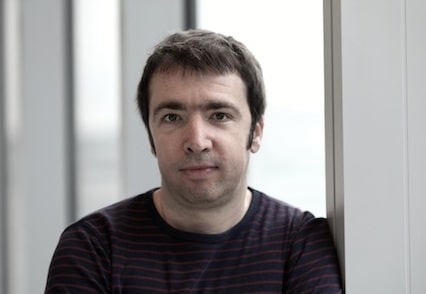
Among the many scientific projects proposed this year, Mathias Pessiglione’s dossier absolutely deserved the Philippe and Maria Halphen 2020 Award. The work of this researcher has brought important results for the future of the care of patients suffering from psychiatric disorders. Using neuroimaging techniques combined with mathematical models, this researcher has shown how the different elements of motivation (the value of goals, confidence in success, the need for effort, etc.) are integrated in the brain in order to guide the person’s behavior. These fundamental advances have led him to develop tests that make it possible to better characterize the motivational disorders present in patients, and therefore to personalize their management with better adapted treatments, particularly in depression and schizophrenia.
This video comes from the program “En Pleine Forme” of Sunday, January 19, 2020 presented by Sylvia Amicone and Dr. Gérald Kierzek.
On this health and wellness show, major medical discoveries that improve daily life are discussed as well as topics around nutrition and sports.
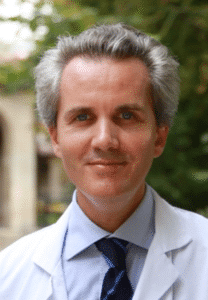

2019 – Raphaël GAILLARD
Normalien et médecin, professeur de psychiatrie à l’Université Paris Descartes et chef de pôle à l’hôpital Sainte Anne
Pour ses travaux sur les perturbations de la conscience dans la schizophrénie ainsi que le développement des ponts entre recherche fondamentale et clinique en psychiatrie.
2019 – Joel SWENDSEN
Directeur de recherche au CNRS / Professeur de psychologie Clinique et Psychopathologie à l’Université Victor Segalen Bordeaux 2 Directeur du laboratoire “Neuroimagerie et Vie quotidienne” Ecole Pratique des Hautes Etudes
Pour ses travaux sur l’analyse de collecte de données en continu permettant de reconstituer la vie quotidienne des patients. Son programme de recherche a été centré sur la compréhension des mécanismes intra-individuels et directement impliqués dans l’étiologie et la prise en charge des troubles mentaux.
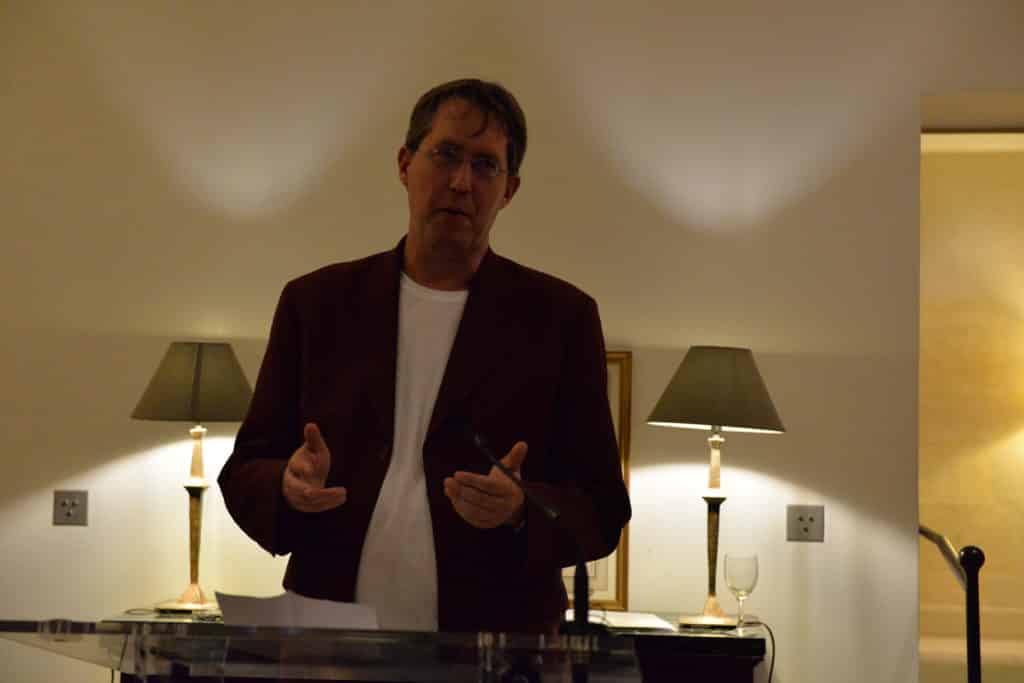
Journalist and social network specialist Alexandre Mariéthoz experienced two severe depressions in 2013 and 2014. Now in recovery, he has been able to resume his activity as a part-time journalist for the mental health magazine “Diagonales”.
As a PLEX (Person with Lived EXperience of mental illness), Alexandre Mariéthoz has been a regular participant in the Swiss chapter of Meeting for Minds – SYNERGIES since the programme launch in Lausanne in 2018.
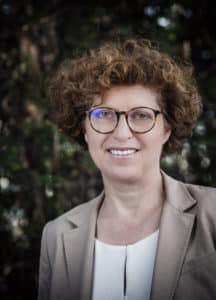 The Philippe & Maria Halphen Foundation is pleased to announce that the 2018 Philippe and Maria Halphen Grand Prix is awarded to Professor Marion Leboyer, University Professor / Hospital Practitioner (PUPH) of Psychiatry at Paris Est Créteil University (UPEC).
The Philippe & Maria Halphen Foundation is pleased to announce that the 2018 Philippe and Maria Halphen Grand Prix is awarded to Professor Marion Leboyer, University Professor / Hospital Practitioner (PUPH) of Psychiatry at Paris Est Créteil University (UPEC).
The Académie des Sciences will pay tribute to our winner at the Prize ceremony at the Institut de France, on November 20, 2018.
An interview with Cynthia Joyce – former CEO of MQ Transforming Mental Health (UK)
“At MQ we are very much interested in working with (the Philippe and Maria Halphen) Foundation to actually raise awareness of the importance of involving patients and people affected by illness in the research process.”
Interview with Professor Philippe Conus, winner of the Philippe & Maria Halphen 2017 Prize and Director of the Department of psychiatry, Université de Lausanne, Switzerland.
“The fact that you get the Prize and it makes (our work) more visible. Research in psychiatry is not the most visible domain of research, and we need to destigmatize all of this and keep doing this work which is very promising.”
 The Philippe & Maria Halphen Grand Prize, amounting to € 20,000, was awarded on November 21, 2017, on the occasion of the official ceremony under the umbrella of l’Académie des sciences, to Professor Philippe Conus.
The Philippe & Maria Halphen Grand Prize, amounting to € 20,000, was awarded on November 21, 2017, on the occasion of the official ceremony under the umbrella of l’Académie des sciences, to Professor Philippe Conus.
Professor Philippe Conus heads the psychiatric department of the CHU Vaudois in Switzerland. Aged 56, this psychiatrist spent three years in Australia, which allowed him to gain experience in the field of early care of patients with psychiatric illnesses.
With an excellent scientific record, his research activity focuses on the development of early intervention strategies for the management of patients with severe depression and schizophrenia. While the clinical pictures of these psychiatric diseases are known at the state stage, this is not so the case when the first symptoms (the prodromal aspect) appear insidiously. Recent advances in the intimate mechanisms of these conditions and the clinical examination of patients with an early phase of the disease have allowed this experienced psychiatrist to identify the clinical determinants of these conditions and to implement new therapeutic approaches. Thus, based on experimental observations, convincing results have been obtained in cases of emerging psychosis using an antioxidant molecule.
Philippe Conus is one of those who will advance the discipline of psychiatry on the basis of “translational” research.
Dr. Asya Rolls is Assistant Professor at Rappaport Medical School, Technion, Israel Institute of Technology, and the Howard Hughes International Research Institute (HHMI). She completed her Ph.D. at the Weizmann Institute in Israel, and completed her postdoctoral training at the Department of Psychiatry at Stanford University, California, as a Fulbright Scholar.
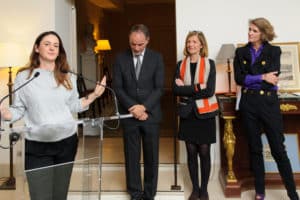
Dr Asya Rolls, guest of honour, Pr. Philippe Conus, lauréat 2017, Mme Pascale Cossart, Secrétaire perpétuel of the Académie des sciences, Mme Maria Halphen.
Dr. Rolls is studying the physiological mechanisms by which emotions and thoughts affect physical health. Her lab uses chemo-genetic, optical, and behavioural approaches to study how specific brain activity affects the immune response. By deciphering the neuronal pathways mediating brain signals, her work aims to exploit the therapeutic potential of the brain.
Dr. Rolls is an elected member of the FENS-KAVLI Network of Excellence (2015-2019). Her work has been recognised with numerous awards, including the NARSAD Young Investigator Award, the Krill Wolf Foundation Award, the Adelis Brain Research Award and the CER Opening Grant.
Professor Asya Rolls participated in the work on“L’activation du système de récompense stimule les défenses du système immunitaire”/“ “Activation of the reward system stimulates immune system defenses” / Received January 15; Accepted June 1; Posted online July 4, 2016.
The overall goal of this work is to study the effects of activation of the reward system and positive emotions on immune defenses. A first part of this work consisted of selecting a mouse model (using DREADD pharmacological techniques) for selective activation of dopaminergic neurons in the ventral tegmental area (VTA), a region of the reward system.
In a second step, the authors looked at the effects of this activation of the VTA on the immune defenses. A first series of experiments has shown that the activation of VTA increases the immune defenses (during a bacterial infection) by activating these defenses before any encounter with the pathogen. Thirdly, the authors demonstrate the effect on the immune response specific to bacterial agents.
Finally, the authors demonstrate that the immune effects of dopaminergic activation of VTA are mediated by the sympathetic nervous system.
The authors conclude that the effects of VTA activation on immunity may explain, beyond the psychological effects, the effects of placebo (conceived here as positive expectations) on the immune system.
Personal comment – It is a very beautiful work that can open perspectives at the same time:
- for the understanding of placebo effects (a topic of topical research)
- for psychiatric pathologies often related to dysfunctions of this reward system (eg symptom of loss of pleasure in schizophrenia and depression) and associated with disturbances of inflammation and immune defenses.
Finally, this work confirms the intuitions of Pharmacien Coué (the inventor of the Coué method) who asked his patients to repeat daily that everything is fine (positive thinking related to the likely activation of VTA) improved their overall health (immune).
This work highlights the fundamental links between brain function and the functioning of the rest of the body and the need to consider mental disorders as global pathologies, not limited to the brain.
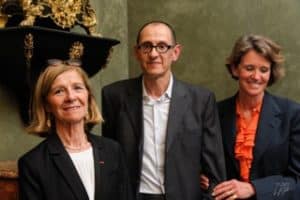
Mrs Pascale Cossart, Permanent Secretary of the Academy of Sciences, Prof. Philippe Fossati, 2016 laureate, Mrs Maria Halphen.
The 2016 Halphen Prize of the Academy of Sciences goes to Prof. Philippe Fossati for his works on cognitive and emotional disorders linked to depression.
The Philippe and Maria Halphen Prize, amounting to €20 000, was awarded on 22 November 2016 during the official ceremony under the dome of the Academy of Sciences to Prof. Philippe Fossati.
University lecturer and hospital practitioner (PU-PH) at the hospital group Pitié Salpêtrière in Paris, Philippe Fossati has been constantly rewarded for more than fifteen years for his works on cognitive and emotional depressive disorders.
The general goal of his researches is to define the mental disorders at the biological level to facilitate diagnosis and provide new targets and therapies adapted to the biological and physiological needs of the patients. His works mainly consist in using brain imaging (specifically functional MRI) to diagnose, monitor the effects of the treatments and spot vulnerability factors. His scientific endeavour fits into the effort of making psychiatry a predictive and bespoke medicine by rapidly transferring data from neuroscience to the patients.
Throughout his research career, Philippe Fossati has contributed to the discovery of the importance of cognitive disorders, and especially those related to executive functions, in the context of depression; of attentional resource allocation on internal and external world; of the paramount role of the medial and prefrontal structures in the focus on self-identity, and therefore in vulnerability to depression, onset of depressive symptoms and response to antidepressant therapies.
The Philippe and Maria Halphen Foundation promotes international research

Professeur Patrick Dennistoun MacGorry, guest of honor of the Philippe and Maria Halphen Foundation,
(Professor of Youth Mental Health at the University of Melbourne and executive director of Orygen, The National Centre of Excellence in Youth Mental Health in Australia).
On the 21st and 22nd of November 2016 the 2016 Halphen Prize was awarded by the Philippe and Maria Halphen Foundation and Meeting for Minds. The Prize promotes the excellence of French research and fosters international collaboration between researchers and key actors of the mental health world.
On this occasion, the Philippe and Maria Halphen Foundation and Meeting for Minds organised on Monday 21st November a French-Australian one-day event at Sainte-Anne Hospital in Paris.
Prof. Marie-Odile Krebs, Halphen Prize 2014 laureate, as well as Dr. Isabelle Amado introduced two inspiring French initiatives, the “springboard” model of C3RP (Dr. I. Amado, MD, PhD) and the prevention experiment – early intervention, the C’JAAD (Prof. M.-O. Krebs). At the research level, Dr. F. Vinckier presented his work on the computational model for psychosis and Dr. M. Plaze her project “Personna” TMS for depersonalization.
All these initiatives and works have sparked rich discussions and experience sharing between French, Australian and Swiss researchers, more specifically on the strategic theme of early intervention.
The inauguration evening for the Halphen Prize was then hosted at Salon Bonnefous in the Academy of Sciences in the presence of the guest of honor of the Foundation, Australian Prof. Patrick McGorry, to celebrate the 2016 laureate, French Prof. Philippe Fossati.
This event brought together both renowned and young researchers, psychiatrists, representatives of French, Swiss, British and Australian Mental Health associations and international representatives of French Institutions (Sainte-Anne Hospital, Pitié Salpétrière, Cochin…), as well as leading international research institutes (ICM, EPFL in Lausanne, Orygen…). On the day following the Prize, the laureate was officially awarded the Halphen Prize under the dome of the French Institute.
During these two intense days, not only did the Philippe and Maria Halphen Foundation and Meeting for Minds recognise the excellence of French research by notably attributing the Halphen Prize to Prof. Fossati, but they also contributed to international collaborations and exchanges between researchers and clinicians, associations and people with a lived experience of mental disorders, leading to the study of new axes of cooperation between France and Australia.
 The Philippe and Maria Halphen Foundation and Meeting For Minds support the ICM and the “Mental Disorder” exhibition organised by Universcience to be held in la Cité des sciences et de l’Industrie in Paris on 5 April 2016 to 6 November 2016.
The Philippe and Maria Halphen Foundation and Meeting For Minds support the ICM and the “Mental Disorder” exhibition organised by Universcience to be held in la Cité des sciences et de l’Industrie in Paris on 5 April 2016 to 6 November 2016.
After Helsinki and Lisbon, the European exhibition on mental health, known ‘Goes Crazy’, occurred at la Cité des sciences et de l’Industrie in Paris. For the first time in France, a national exhibition aims to raise awareness and educate the public to:
- reduce the stigma associated with mental health dysfunction;
- provide knowledge about different mental disorders; and
- encourage visitors to take care of their own mental health.
In order to promote the event and to affirm its support for young researchers involved in the field of mental health, the Philip and Maria Halphen Foundation and Meeting for Minds have decided to conclude a unique partnership in France with the public institution Universcience (the Palais de la Découverte and la Cité des sciences et de l’Industrie) and l’Institut du Cerveau de la Moelle Epiniere (ICM).
In providing support to Universicence and ICM, the Philippe and Maria Halphen Foundation and Meeting for Minds allowed the development and implementation of the Smartphone Crazy’App by a team of young researchers of the Institute. For the duration of the event, the application invites visitors to the exhibition to participate in an original investigation based on the analysis of videos and interviews. The data will be collected from users via the application and related back to the website to help to better inform the public about mental illness but also to improve the knowledge of researchers on the public perception of mental illness.
For futher information :
Press Release on GoesCrazy Exhibition
On 24 November 2015, the Philippe and Maria Halphen Foundation and the Academy of Sciences chose to reward Professor Luc Mallet for his outstanding work developed in the field of neuroscience research linked to Obsessive Compulsive Disorders (OCD).
Professor of Psychiatry at University Hospital Henri Mondor in Créteil and Hospital Albert Chenevier, Associate Professor at the University of Geneva, Luc Mallet has lead a research team since 2008 at the Brain and Spine Institute (ICM Inserm U1127) to the Pitié-Salpêtrière Hospital in Paris. This team coordinates a range of translational research projects aimed at characterizing the pathophysiology of pathological repetitive behaviors in humans with obsessive-compulsive disorder.
By awarding the Halphen Prize 2015, the PMHF confirms its main objective of supporting innovative scientific research in mental health. Working to continue the advancement and extension of partnerships amongst the mental health community, joining researchers, clinicians and those living with mental health disorders.
For futher information : contact@pmhalphenfoundation.org
See also :
The Philippe and Maria Halphen Foundation is dedicated to the innovation and advancement of knowledge and scientific research in the field of mental illness; especially regarding bipolar disorder, schizophrenia and treatment resistant depression. The Foundation decided to establish in association with the Academy of Sciences, the Grand Prix Halphen.
The Foundation will award the Philippe and Maria Halphen Prize for neuropsychiatric research on mental illness at the Academy of Sciences on 25th November, 2014. This award will honour research on the pathophysiology of psychiatric disorders, with particular reference to the psychobiology of emotions and mental development with an amount of 15,000 euros this year.
Members of the scientific committee are: Yves Agid, Jean-François Bach, Raphaël Gaillard, Michel Le Moal, Yanne Norup, Jean Rossier and Norman Sartorius.
http://www.academie-sciences.fr/activite/prix/gp_halphen.htm
The first international Forum dedicated to meetings between researchers, clinicians, patients and their families, Meeting for Minds aims to promote genuine human understanding of mental illness and to develop multidisciplinary and innovative projects. The Forum was designed to encourage understanding of the current state of neuroscience and clinical approaches to the treatment of mental illness, balanced with real life experience.
On May 14th and 15th of this year, at the Western Australian Maritime Museum in Fremantle, international, national and local researchers and clinicians met with people who brought to the inaugural Meeting for Minds, the lived experience of mental illness.
Meeting for Minds opened up a very real and transparent international dialogue between key stakeholders from the mental health community. The Forum broadened the horizons of each of the three stakeholder groups. In time, Meeting for Minds will germinate an international public debate as this will be a biennial event.
Scientists, doctors, and specialists from Australia, Europe and Israel have deepened their links.
The three main objectives of the Forum “Meeting for Minds” were:
- to promote a genuine human understanding of mental illness
- to reduce the stigmatization of people with mental disorders
- to study tracks multidisciplinary and innovative through linking research centers located in Australia, Europe and Israel
During this real “meeting of minds”, a unique and transparent dialogue emerged and international collaborative projects are under development. For example, international student exchanges between different partners research institutes are being set up.
http://www.meetingforminds.com.au/
http://www.meetingforminds.com.au/media/

